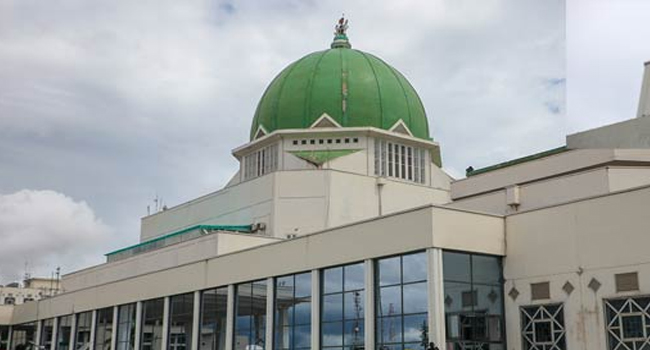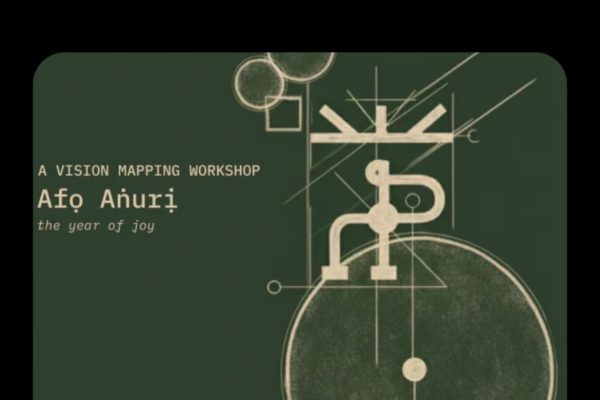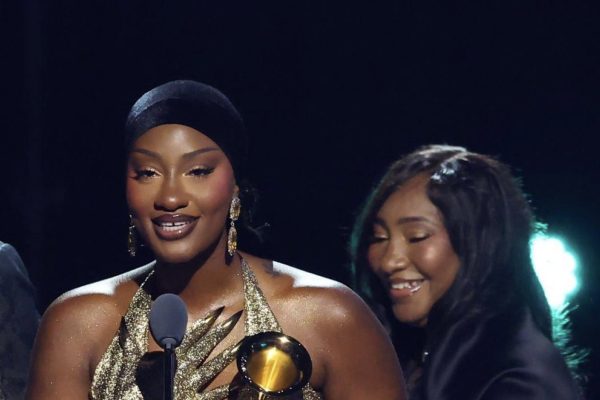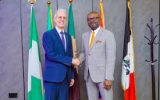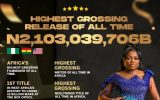In a nation like Nigeria, diverse in its culture and history, and complicated in its formation and lifetime, excellence is an existence against many odds. Trimming down the abundance of excellence to just ten names was no small feat but we were dedicated to celebrating ten Nigerians who have done amazing work in the past ten years across ten major sectors in the tenth month of the year.
The 10/10 Powerlist is an exercise in remembrance and recognition, a reminder that despite its unease, Nigerians manage to find success within and outside the nation’s borders. We are the manifestation of diamonds being made under pressure, necessity pushing us to innovation and these people and institutions have defined their industries in the past decade.
It’s a list of influence, power, success and tenacity.
Film
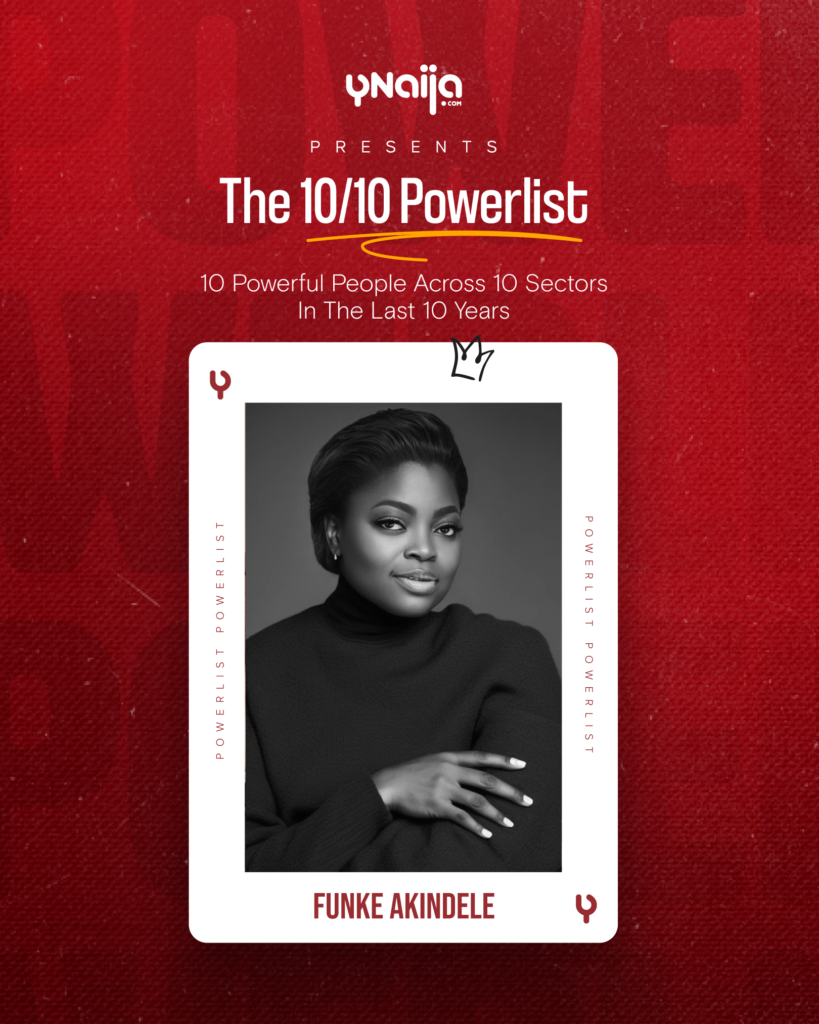
Funke Akindele: Akindele has played many roles in the film industry but the moment Jenifa showed up on our screens in 2009, it’s been one record after another. She has gone from a singular role as an actress to occupying all levels of production. Working her way through many roles in the Yoruba film industry, successful reiterations of the Jenifa character and a growing control of the box office, Akindele has established herself as the most successful filmmaker currently working in Nollywood. That’s a title she’s not giving up anytime soon.
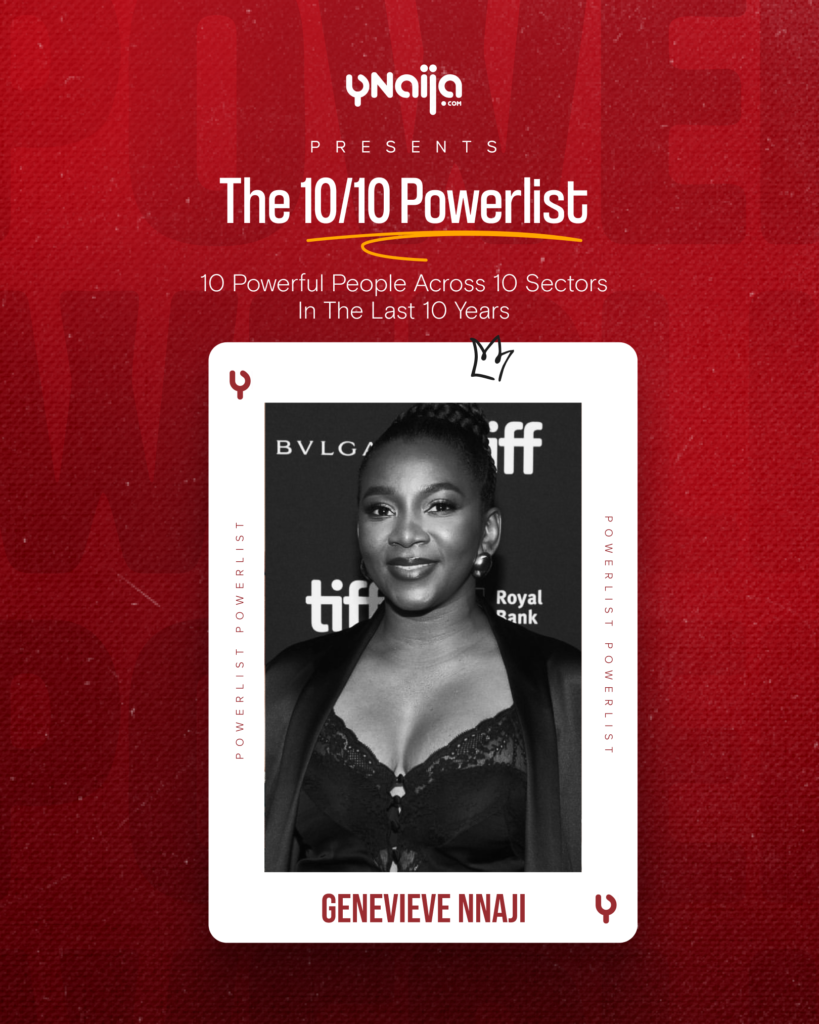
Genevieve Nnaji: There’s a calculated silence that has come with Genevieve in recent times but that silence is never without something simmering underneath. One of our most prolific actresses with many pictures under her belt, she has slowly transitioned to a more behind-the-scenes role. Producing Road To Yesterday which won the Best Movie Overall -West Africa at the 2016 Africa Magic Viewers Choice Awards and then going on to direct Lionheart in 2018 which was then acquired by Netflix in a landmark deal for the Nigerian film industry. The later film became an important point of conversation about the role of language in international submissions to the Oscars. Genevieve continues to be interested in work that speaks to unique Nigerian experiences evident in her most recent production effort: an adaptation of I Do Not Come To You By Chance.
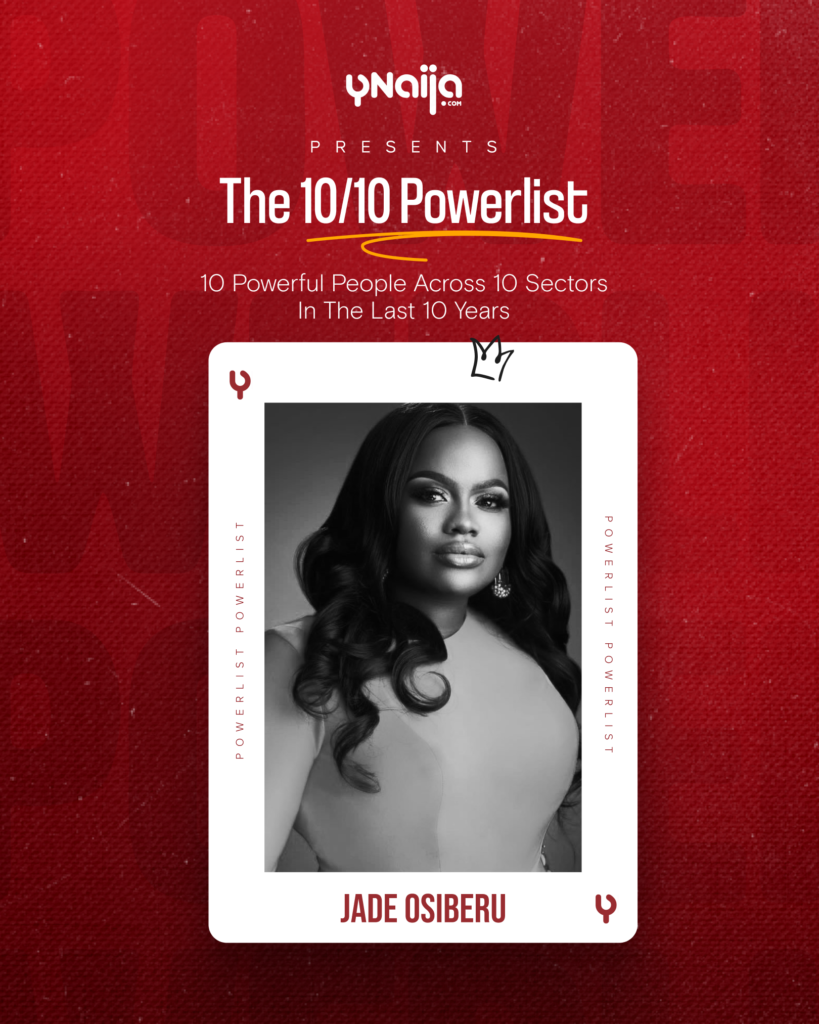
Jade Osiberu: One of the sacred texts of Nigerian romcom discourse is Isoken which was directed by Jade Osiberu in 2017. But before that Osiberu served as writer and producer of web series, Gidi Up for Ndani TV and from then on she has directed and produced films that have helped her carve a niche in the action genre of Nollywood with films Brotherhood and Gangs of Lagos. With a dedication to craft, a Prime Video deal and stories that cut through the political landscape of the country, Jade is taking Nollywood to new territory.
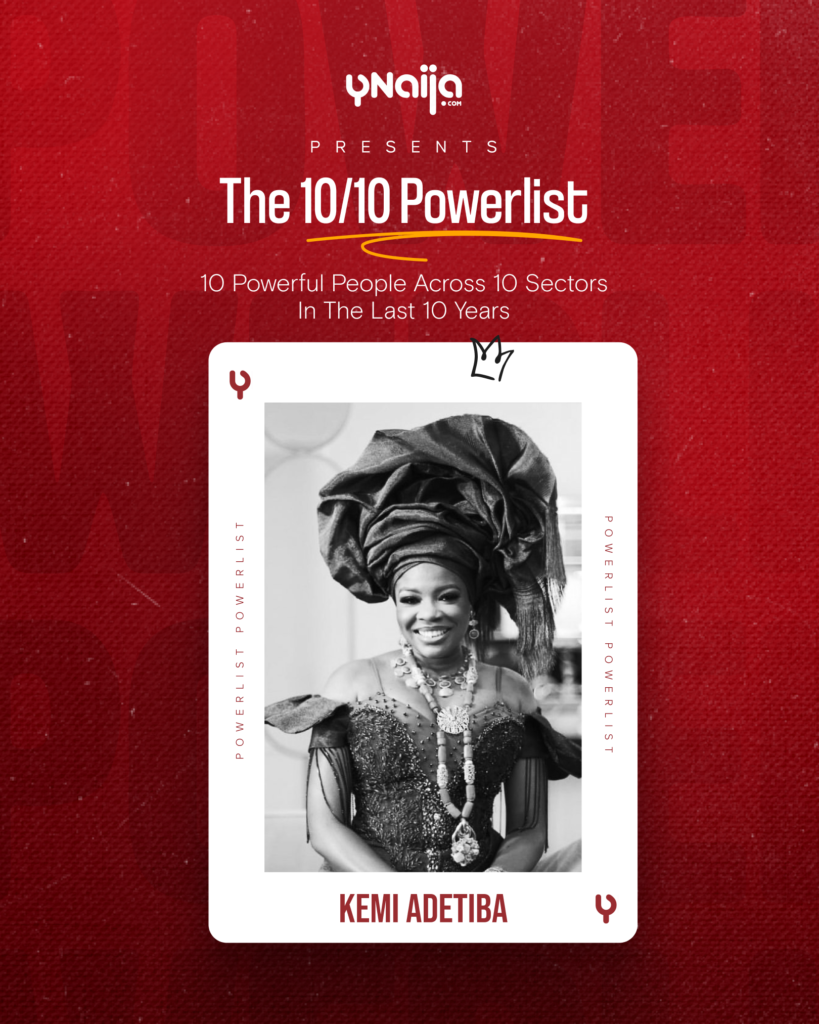
Kemi Adetiba: If a conversation about the political action thriller renaissance ever comes up, Adetiba’s name will definitely exist at the forefront. From music videos, to directing one of the highest grossing films in Nollywood history and to reenergising the action genre with King Of Boys, Adetiba has always been big on characters that stick with you. Everyone talks about Eniola Salami and her brutal rise to power in King of Boys and its Netflix serialized sequel and I’m sure we’ll have more conversations about the characters she brings to us in her upcoming project, To Kill A Monkey.

Mo Abudu: Few people have been involved in the continuous global positioning of Nollywood like Mo Abudu and her company, EbonyLife. From 2014 when EbonyLife was established, Mo and her company have been involved in major film productions and marked many milestones. Co-producing The Wedding Party and its sequel, Chief Daddy and Òlòtūré; striking a partnership deal with Netflix to acquire her shows and films and produce new ones. Abudu has not shied away from pushing for Nollywood’s recognition on the global stage and her influence has been on full display for a while now.
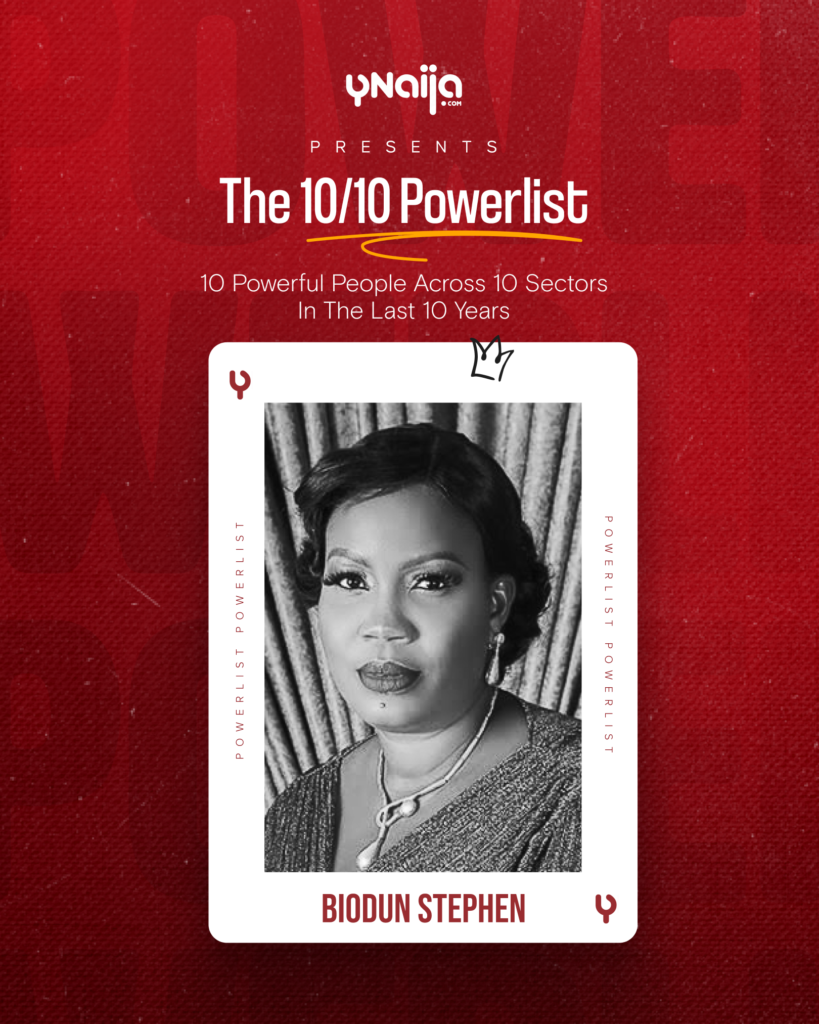
Biodun Stephen: One of the most prolific filmmakers in the industry, there is almost always a Biodun Stephen film showing at the cinemas. She has carved a space in the wholesome romance genre with films that examine the many love stories that exist in a vibrant culture like ours. From producing The Visit in 2015, to directing Breaded Life in 2021 and Big Love in 2023, Biodun has consistently proven to be the filmmaker to trust if you want a film that feels like a hug.
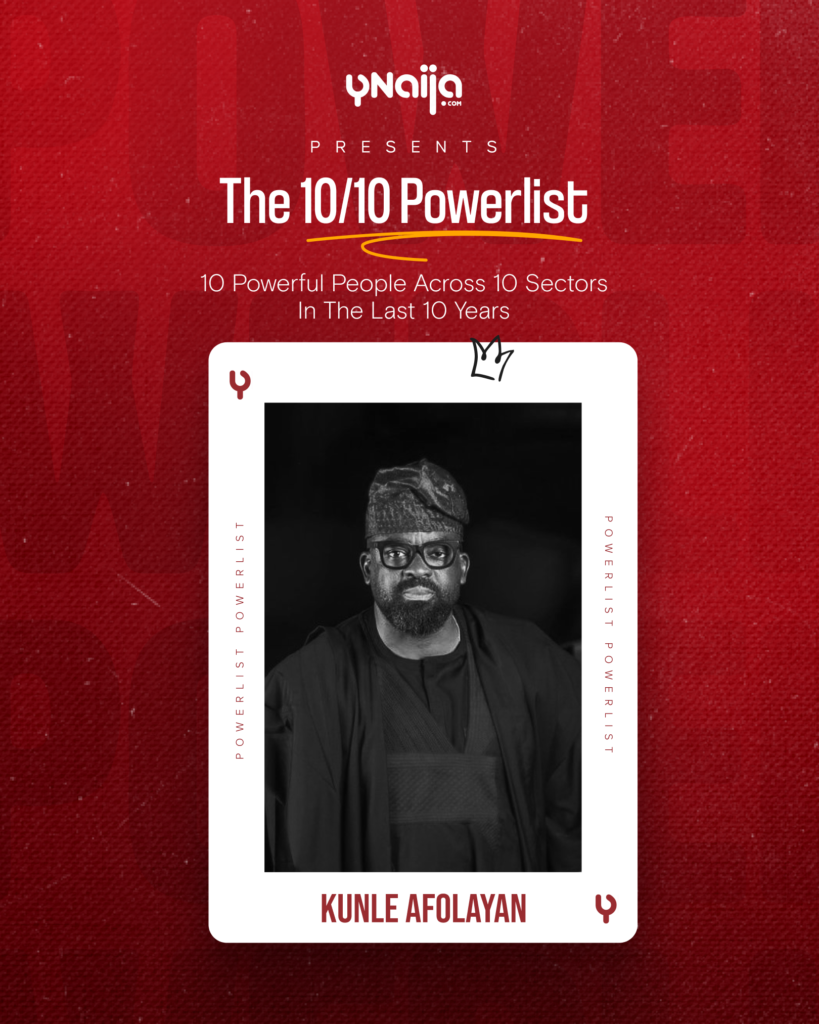
Kunle Afolayan: A pioneer of the cinema revival in Nollywood, Kunle has been a staple on our screens and behind the cameras since his acting debut in Tunde Kehlani’s Saworoide. Directing films that have become major hits and cultural references like The Figurine, October 1 and Citation Kunle has stayed a major player in the Nigerian film industry. His most recent projects come as a result of three picture deal he signed with Netflix which has brought us Swallow, an adaptation of Sefi Atta’s book of the same title and Aníkúlápó, a Yoruba epic steeped in cultural history and Ìjọ̀gbọ̀n, a coming of age adventure film. His ever growing range as a filmmaker has made him a constant presence these past ten years and make sure he’ll remain for the next decade.
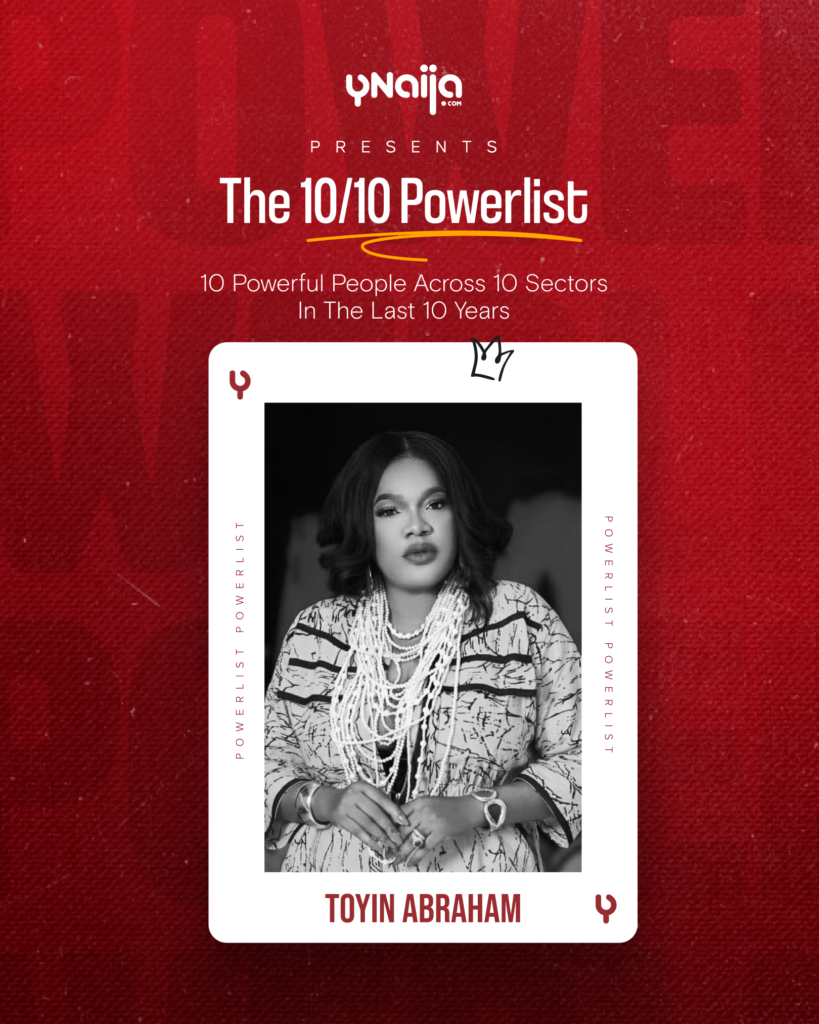
Toyin Abraham: A filmmaker known for her versatile work in Yoruba and English titles, Toyin Abraham is known for her balance of work behind and in front of the camera. Over the years she has launched her own production company, won an AMVCA, and created iconic characters we always come back to. With roles in Fate Alakada, Prophetess, Elevator Baby, and Ijakumo (many of which she produced and/or directed), there’s no dimming the light of this woman.
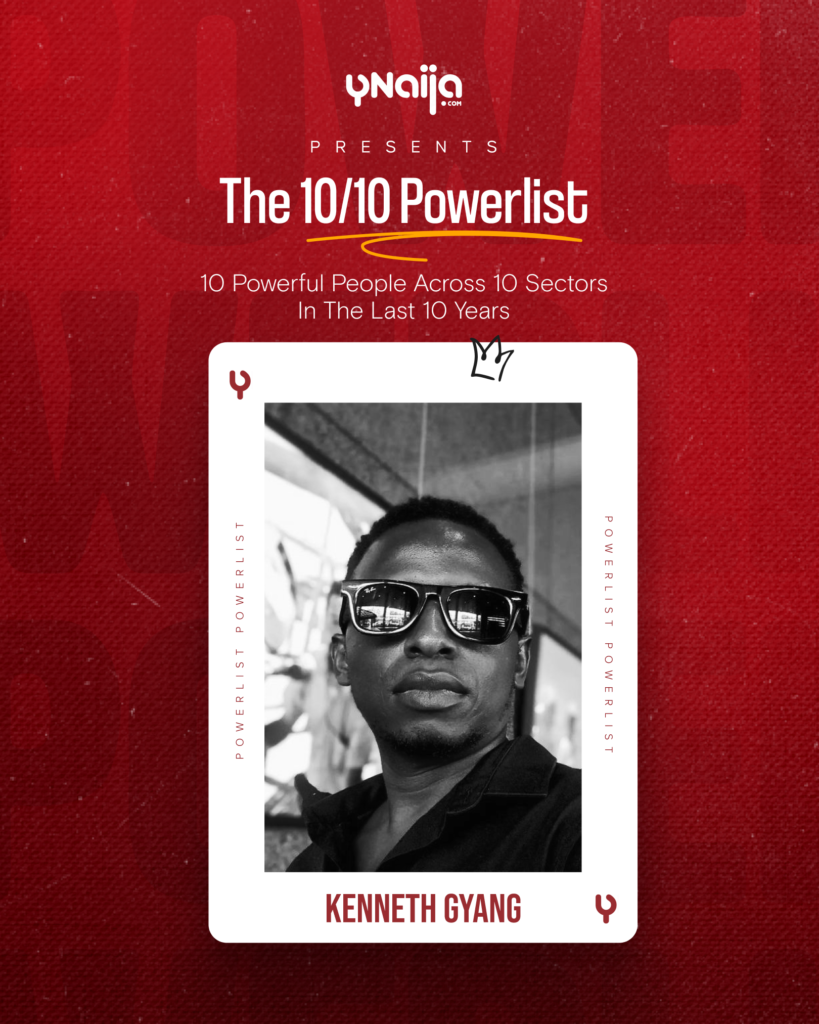
Kenneth Gyang: Known as one of our most socially conscious filmmakers, Gyang’s work does not shy away from the issues existing in the country. From his acclaimed Confusion Na Wa to his TV drama, Wetin Dey, Gyang takes the ills of our society and paints them with full characters and sweeping stories. His most recent film, This Is Lagos has also been met with critical acclaim garnering nine nominations at the most recent AMAAs.

Ayo Makun (AY): To move from a primarily known image as a comedian to one in filmmaking is no easy endeavour and AY has done the most successful version of that. Beginning his domination with 30 Days in Atlanta in 2014 which became the highest grossing Nollywood film of its time and then he kept the same character and moved on to A Trip to Jamaica in 2016 and 10 Days in Sun City in the same year, almost like he was building a comedic cinematic universe. He took this franchise success to his Merry Men films which continue to dominate the box office ten years into his film career.
Actors
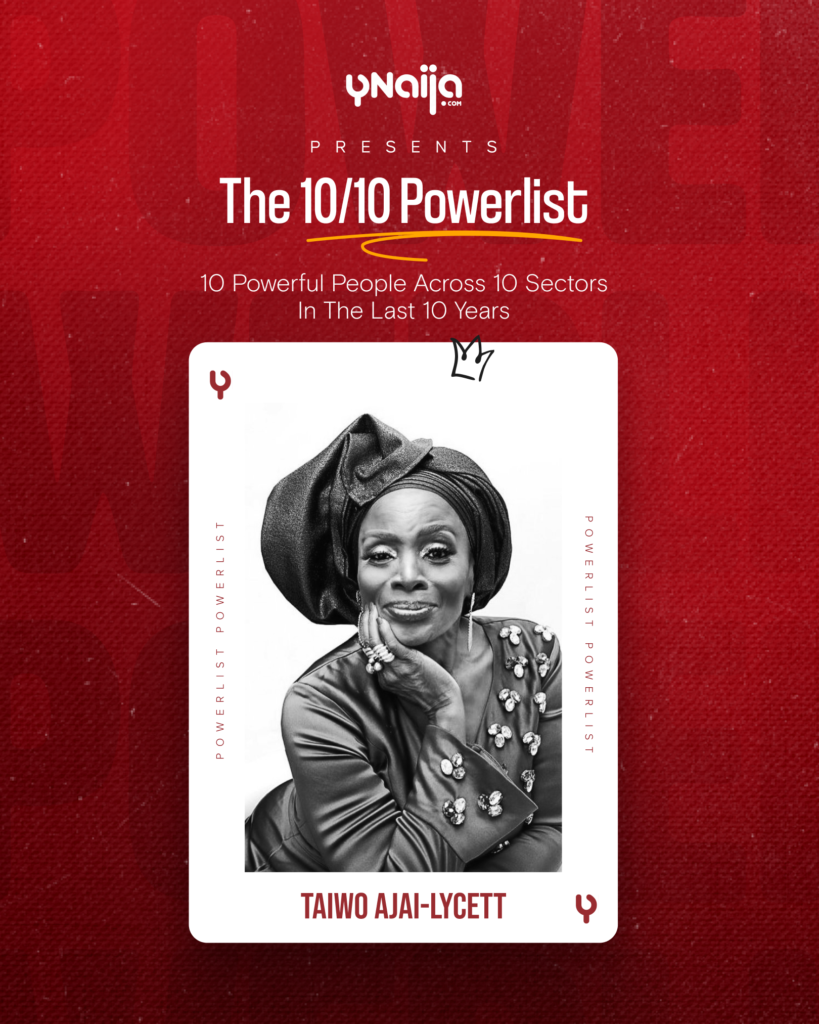
Taiwo Ajai-Lycett: A prolific theatre career that has transitioned into some iconic films roles, Ajai-Lycett has lived many lives, all of them iconic. A leader of British-African theatre, she has found success in roles that keep her in reverence this past decade. A manipulative matriarch in the King of Boys sequel series, a suspicious editor in The Black Book, we are constantly reminded of the sheer power she holds in whatever dose. At 83 years, there’s still a demand for Ajai-Lycett that’ll exist even for the next ten years.
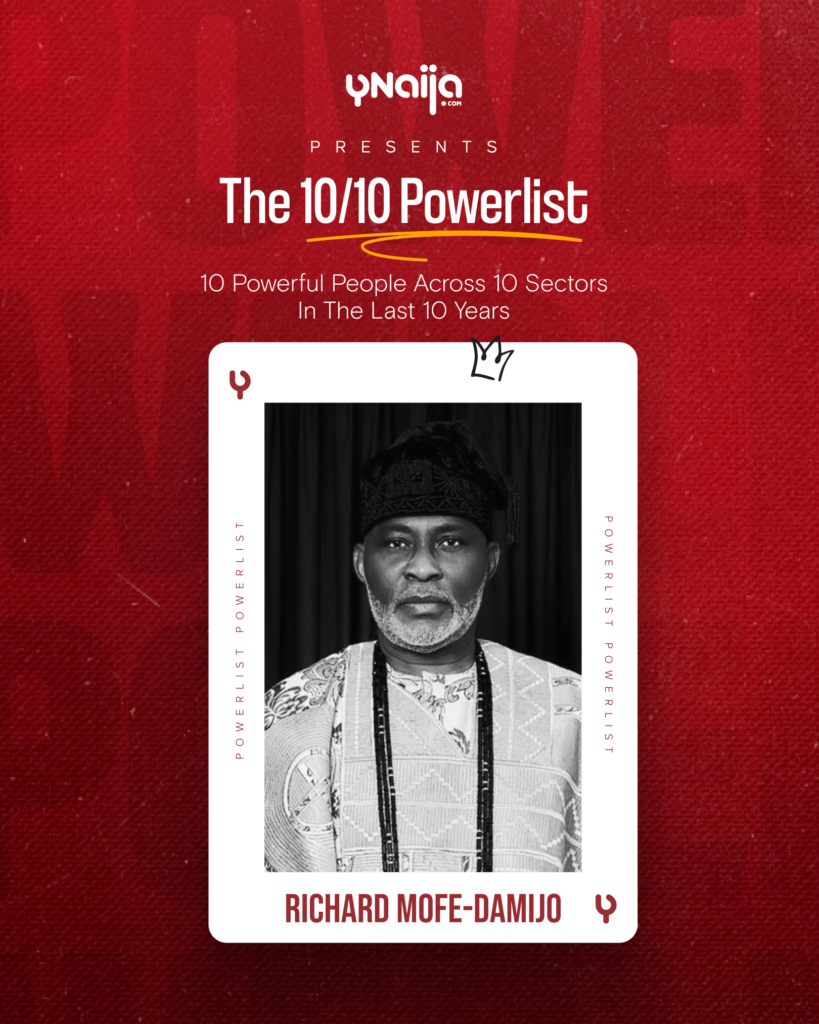
Richard Mofe-Damijo (RMD): Nollywood veteran, Richard Mofe Damijo, has been on our screens as long as a lot of us have lived and these past ten years have been no different. A suave charming presence off screen, Mofe Damijo has played many kinds of leading men culminating in the global hit, Editi Effiong’s The Black Book. With a Best Actor in a Leading Role AMAA and a lifetime achievement award in 2016, we can trust that his signature white beard is not leaving our screens anytime soon.
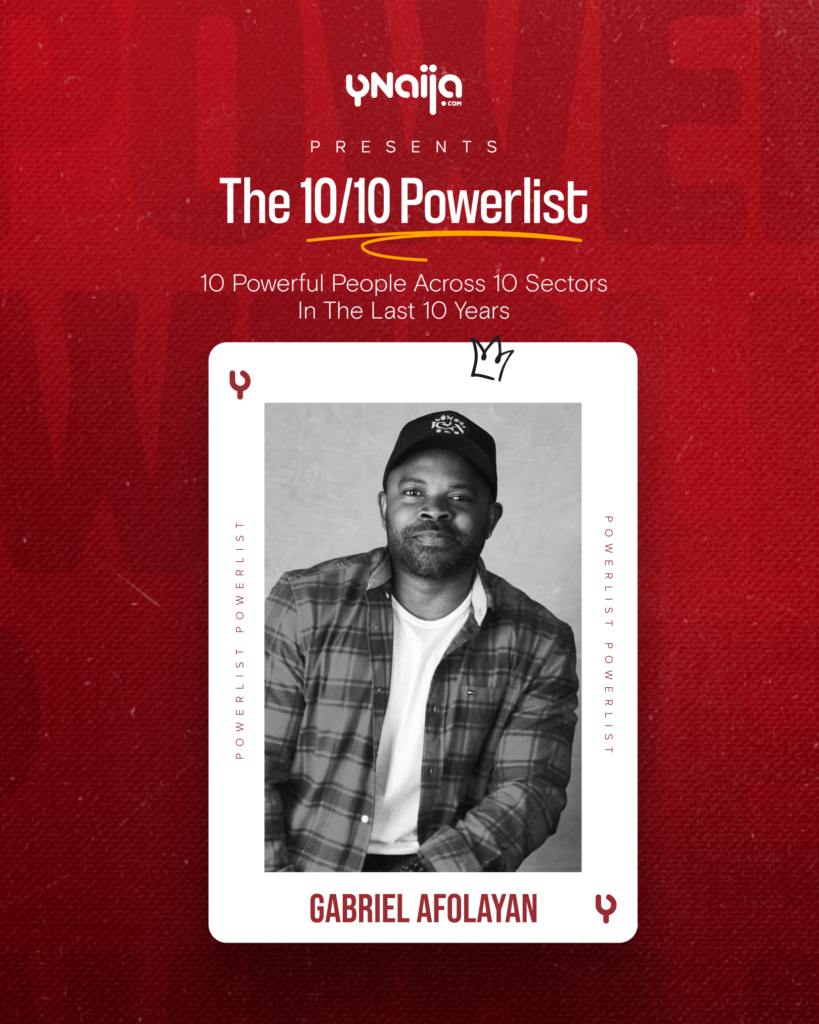
Gabriel Afolayan: Being part of a family that excels in a field is a different kind of pressure and Gabriel Afolayan has managed to carve a successful path for himself. With a Best Supporting Actor win at the 2012 AMAAs for Hoodrush, Afolayan has featured in iconic films and played critically acclaimed roles like Afolabi in For Maria Ebun Pataki. He has gone on to gather another AMAA nomination, this time in the leading role for Kenneth Gyang’s This Is Lagos.
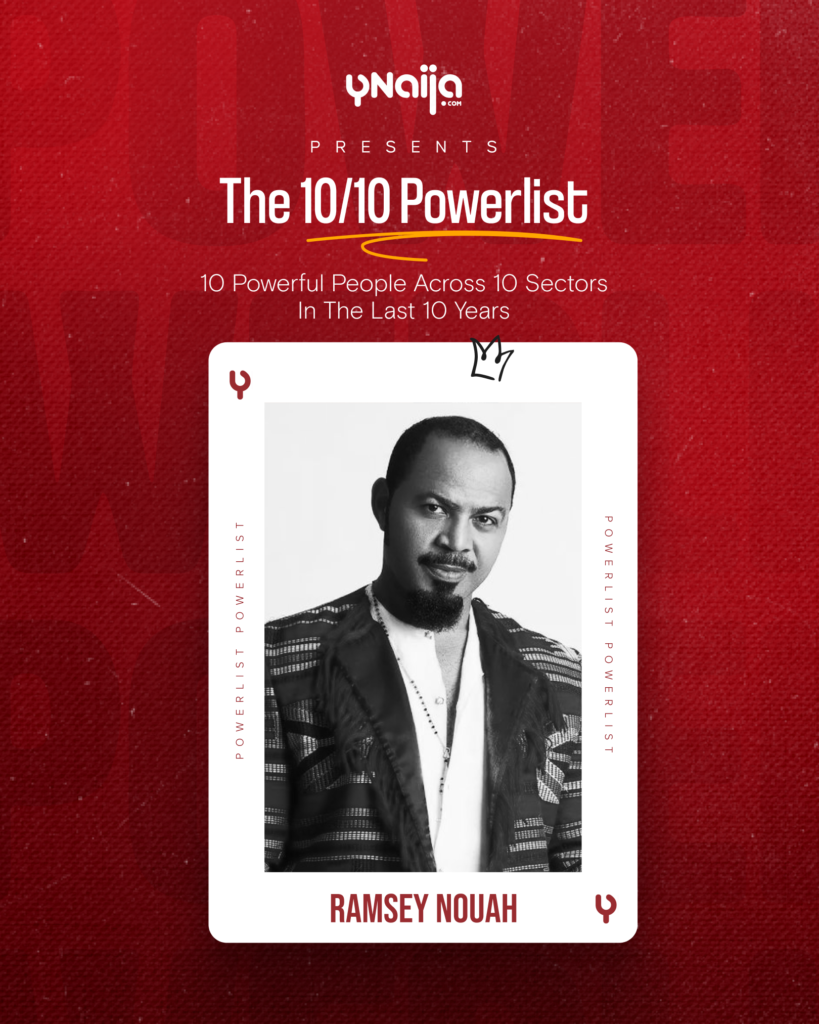
Ramsey Nouah: The actor that embodied the handsome lover boy in his early career has transformed into a multifaceted filmmaker later in his vibrant career. With iconic characters, two AMAA awards to his name and a connection between old and contemporary Nollywood by directing Living in Bondage: Breaking Free and RattleSnake: The Ahanna story, Ramsey Nouah is telling us that his past was exceptional, but the future is even better.
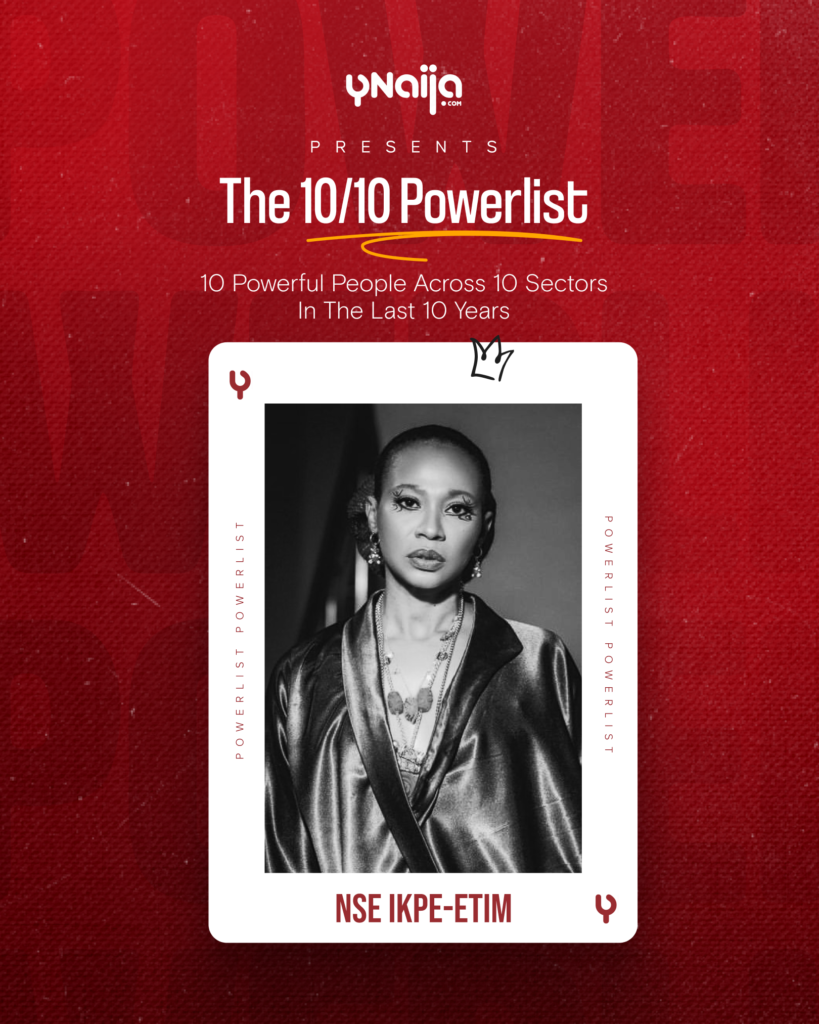
Nse Ikpe-Etim: An actress that has transcended generations, Nse is known for her roles that radiate a certain poise, beauty and grace but her later career has shown that her range transcends these characters. With a run that includes Phone Swap, The Meeting, Journey to Self, Fifty, King of Boys: The Return of the King and A Tribe Called Judah, Nse has been nominated for countless awards including a Best Actress in a Leading Role win at the 2023 African Movie Academy Awards for 4-4-44. With exciting upcoming projects, Nse’s career is not slowing down anytime soon.
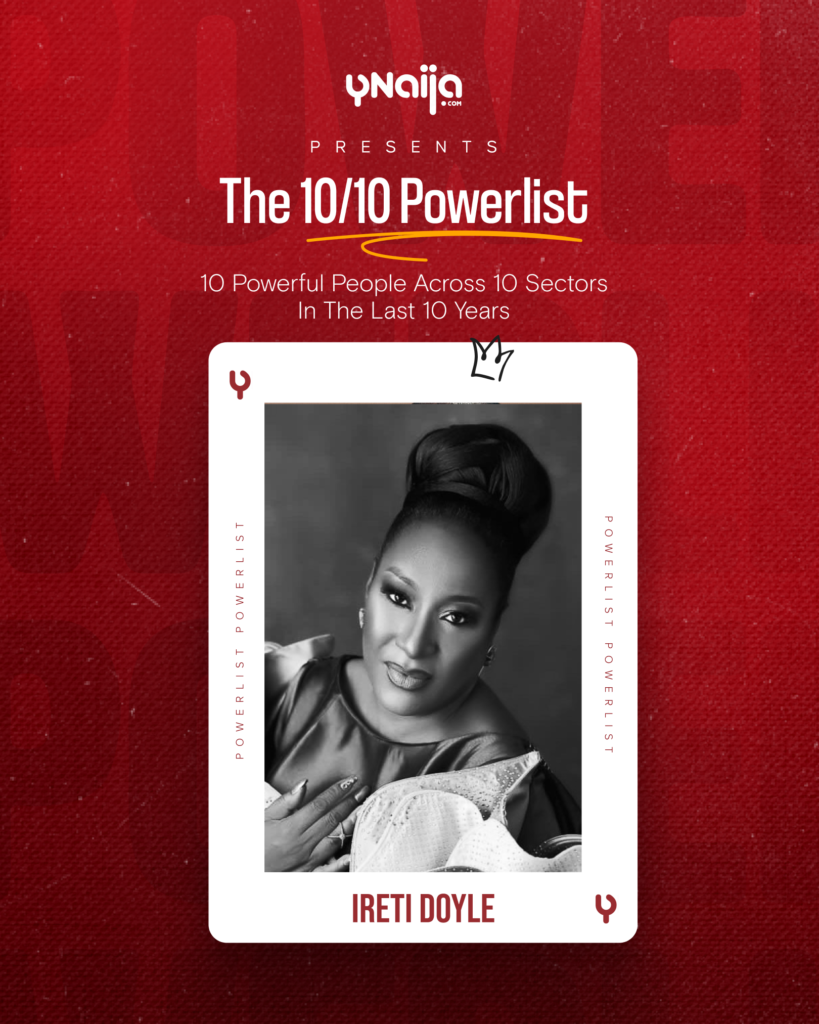
Ireti Doyle: Stoic, cold characters litter Doyle’s career but the twist is that beneath this exterior is often a woman in turmoil. Playing Sheila Ade-Williams on Tinsel brought her to many of our screens and she’s never left since then with roles in Fifty, The Arbitration, The Wedding Party and Madam Koi Koi. With an AMAA nom and a dynamic filmography, Ireti reminds us that a woman in Nollywood can be many things.

Sola Sobowale: A slate of characters that includes one of the most iconic women in modern Nollywood, Sola Sobowale constantly shows us the way her intensity transforms every film she’s in. Her role in The Wedding Party and its sequel showed us her comedic chops and then came King of Boys where Eniola Salami’s questionable morality did not deter us from rooting for her. A dynamic actress with a range of roles in both Yoruba language and English language films, her star power continues to shine brighter.
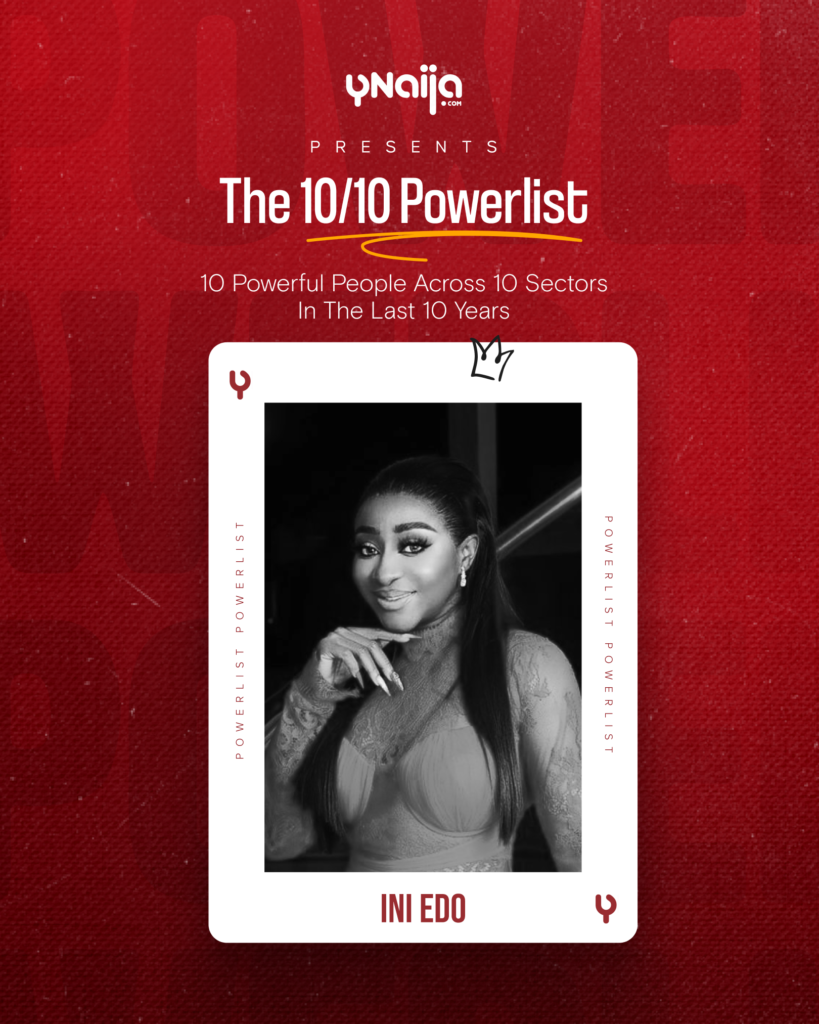
Ini Edo: Nollywood’s heartthrob, bad girl and sometimes comic relief, Ini Edo’s illustrious career is the envy of any upcoming actor. Her signature style of immersing herself in every character she plays has earned her two AMAA nominations and critical acclaim. Taking on more roles in the later parts of her career like producing the award winning Shanty Town, the actress’ dedication to representing her state of origin with many of her characters has kept her unique, in demand and a part of the past, present and future of Nollywood.
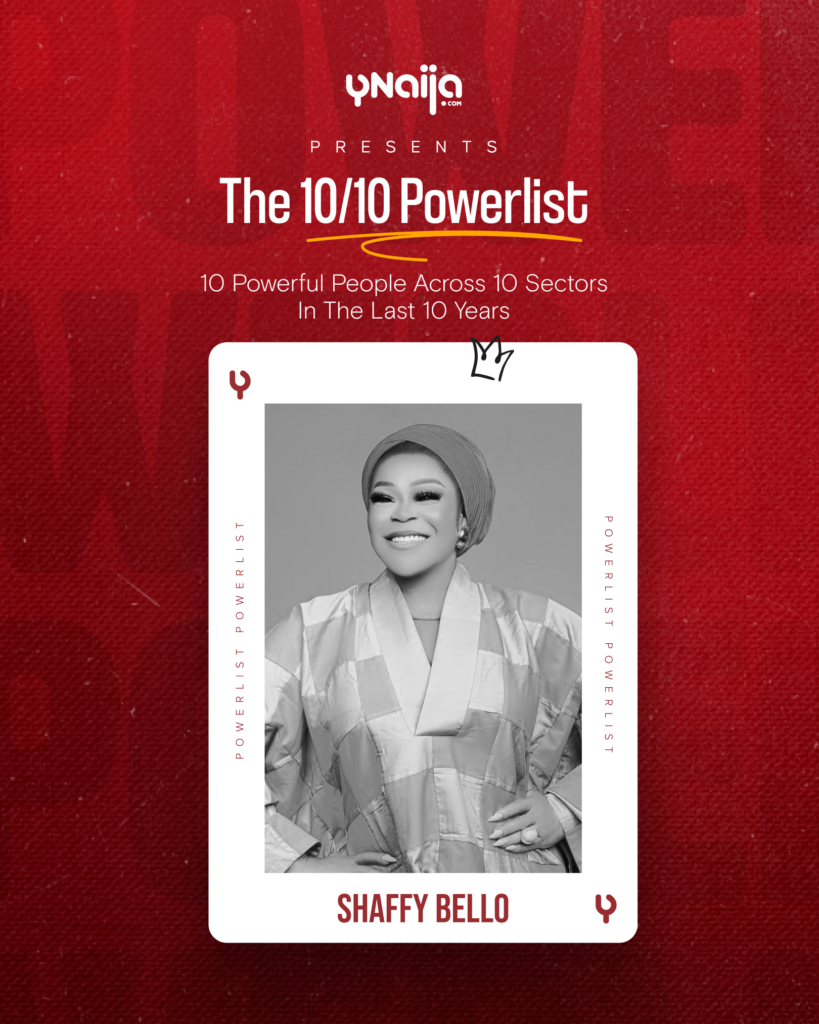
Shaffy Bello: A TV and film star, a rare success in both forms, Shaffy Bello reminds us that there are many ways to play a woman of poise and class. Often a matriarchal character in her later career, she doesn’t shy away from the complexities that exist in an often dismissed character. With roles in shows like Tinsel and The Men’s Club and films like Your Excellency and Elwin Oba, Shaffy straddles the line of womanhood in many forms. Always finding ways to share her stories and experiences with the younger generation, Shaffy remains a prominent figure in Nollywood.

Joke Silva: A career made up of the stuff of veterans: two AMAA awards, a major international role, an array of productions; Joke Silva has etched her name on the history tablets of Nollywood. Her later career could have been a retirement into lauded glory but she decided to take on acting and curatorial roles that strengthen the historical documentation of her industry. Founding the Lufodo Academy of Performing Arts in 2012 along with her husband, Olu Jacobs, she has curated performances at the 2012 Summer Olympics and for the Bank of Industry. In 2022, the academy took over management of Glover Memorial Hall showing her steel-like dedication to the preservation of Nollywood history.
Music

Burna Boy: From the minute Like to Party hit the airwaves, Burna Boy has remained a constant name in our mouths. The celebrated singer has released six albums since then rising to the top of the music scene in the world. Gathering Grammy nominations and wins, performing at some of the most prestigious venues and festivals and acquiring critical acclaim. Not one to shy away from controversy, Burna has served as some sort of blueprint to global success as an afrobeats artist and his meteoric rise these past ten years is proof that he’s not going anywhere anytime soon.
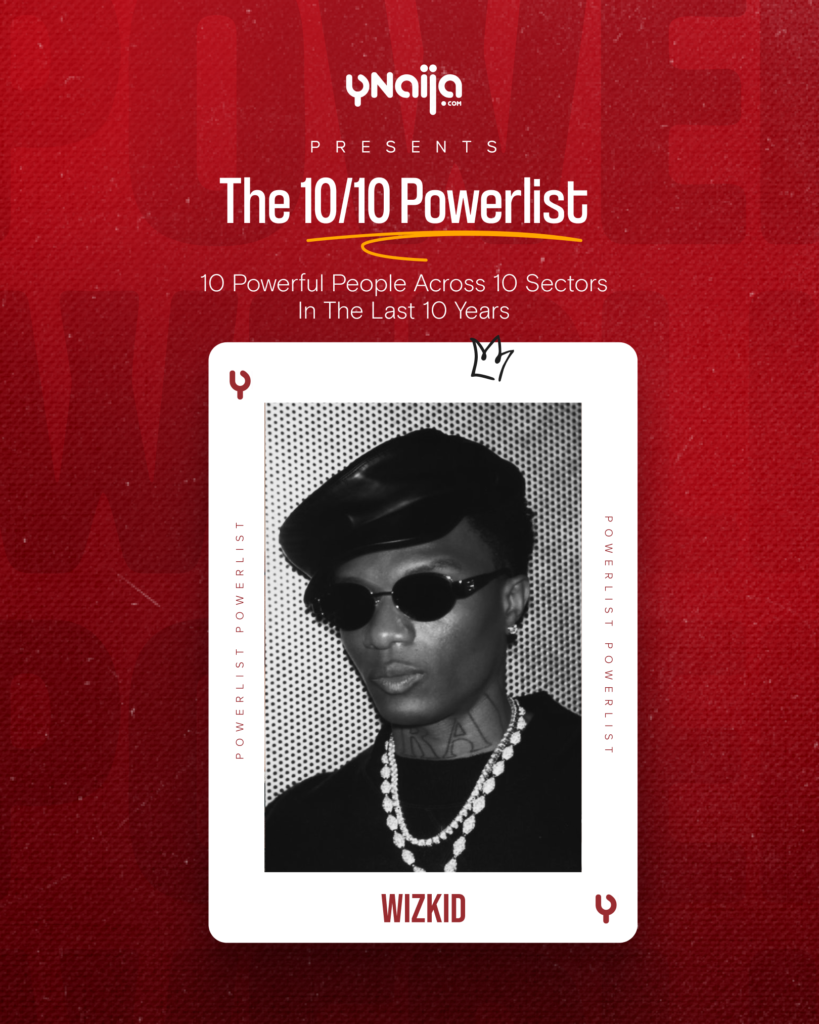
Wizkid: A constant laidback presence on the global afrobeats stage, Wizkid has kept us singing melodies for years now. Grabbing a number 1 on the billboard hot 100 with a feature on a Drake song, a feature on a Beyoncé project and commercially and critically acclaimed album with Made In Lagos. His cultural imprint cannot be ignored, the way he has introduced afrobeats to a larger audience and even become a style icon, his essence in the afrobeats formula will always remain.
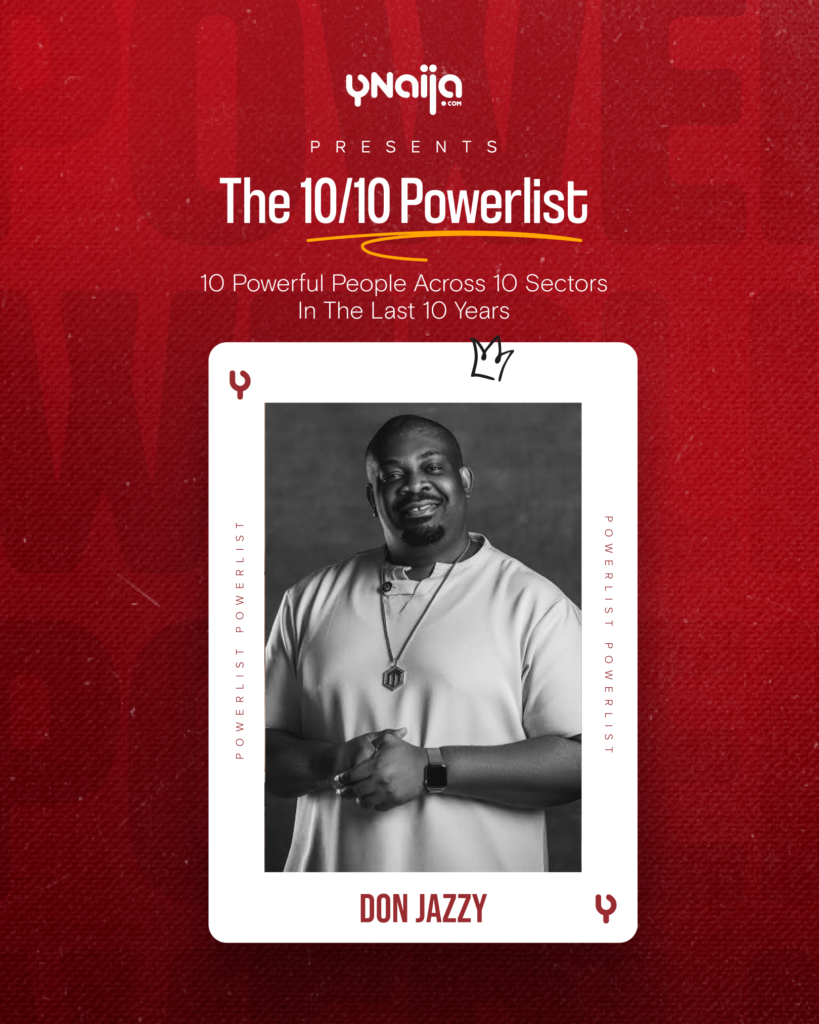
Don Jazzy: The name Mavin has become synonymous with record label success in Nigeria and it’s all thanks to Don Jazzy’s effort. Releasing group effort hits with his label artists and positioning them for continental and international success. He started mostly as a producer, working on albums for D’banj and Wande Coal but the last ten years has seen him work his magic as a label boss. Signing acts like Rema and Ayra Star, his eye for star power cannot be denied.
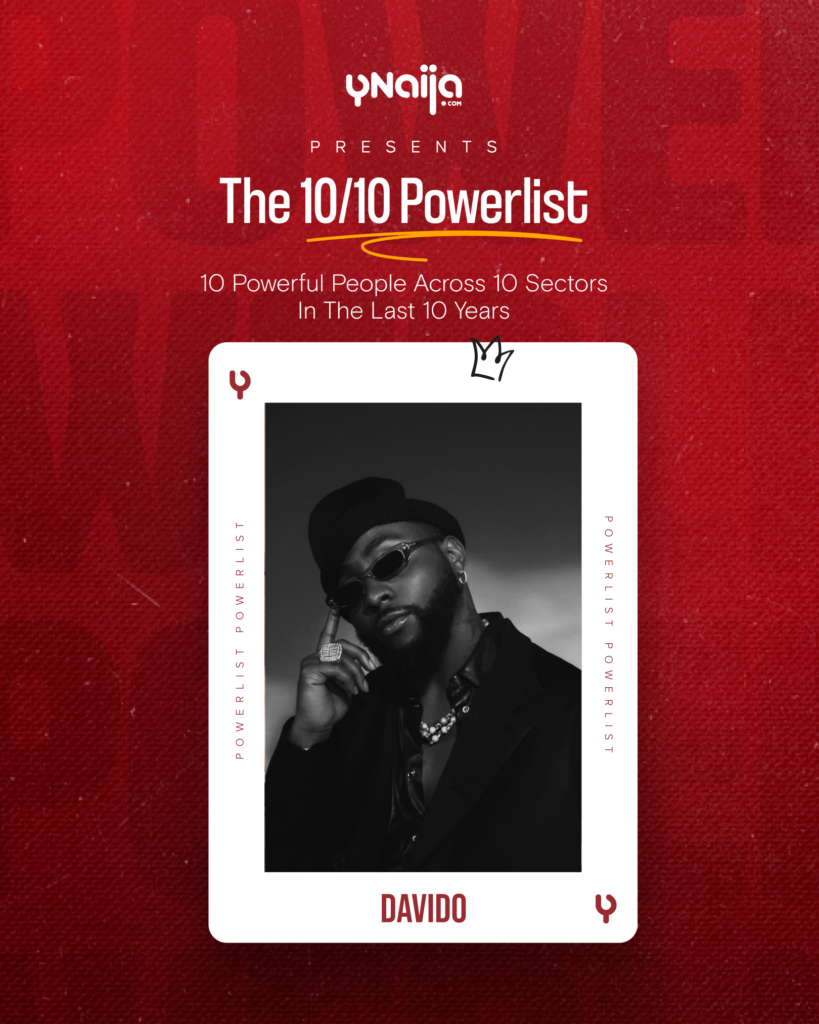
Davido: The Dami Duro crooner has fed us hits and stories for years and the afrobeats industry is better for it. The constant hitmaker has kept us dancing with bangers like Gobe, Skelewu and Aye while releasing albums and bagging Grammy nominations. An infectious ball of energy, we’ve seen Davido win, lose and grow in public while exploring different styles within his hit songs and taking over the world stage.
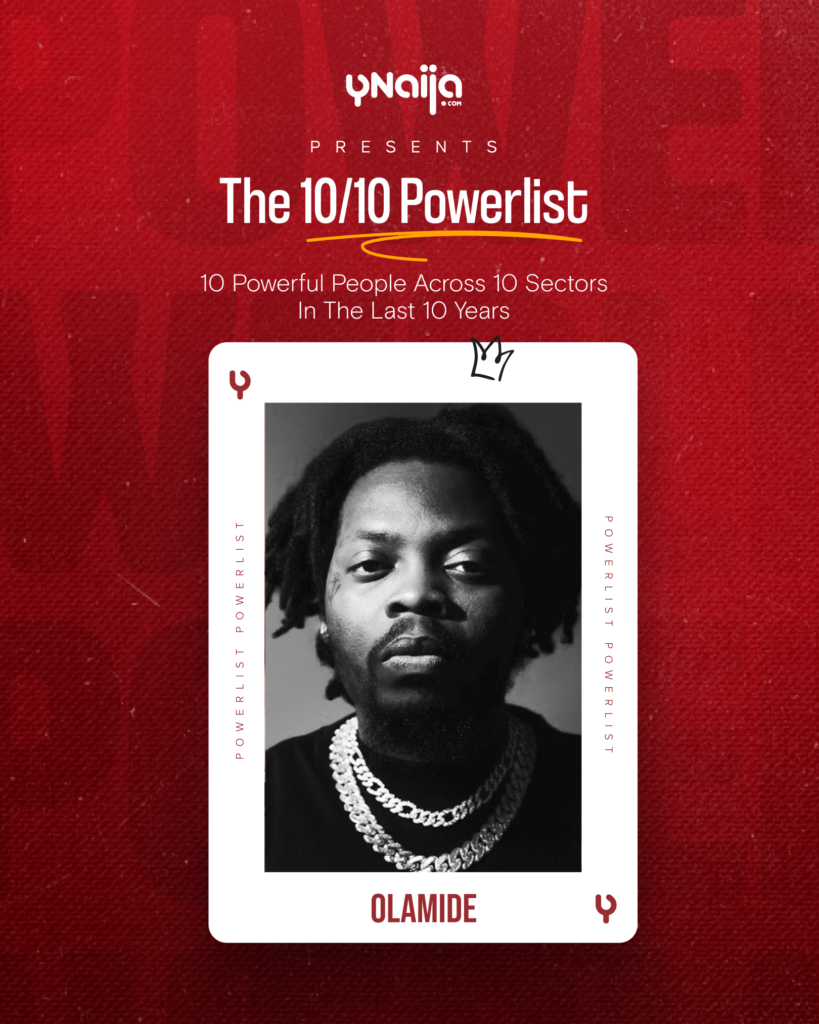
Olamide: When Olamide left Coded Tunes to start his own record label in 2012, few people knew the legacy he was going to build within the next decade. Releasing about ten albums in ten years, Olamide constantly pushes the boundaries of rap within our indigenous context, never refusing to bow to trends or position himself outside authentic representations of his sound. His work with artists under YBNL is equally remarkable, signing acts like Fireboy and Asake who have gone on to dominate the world stage.
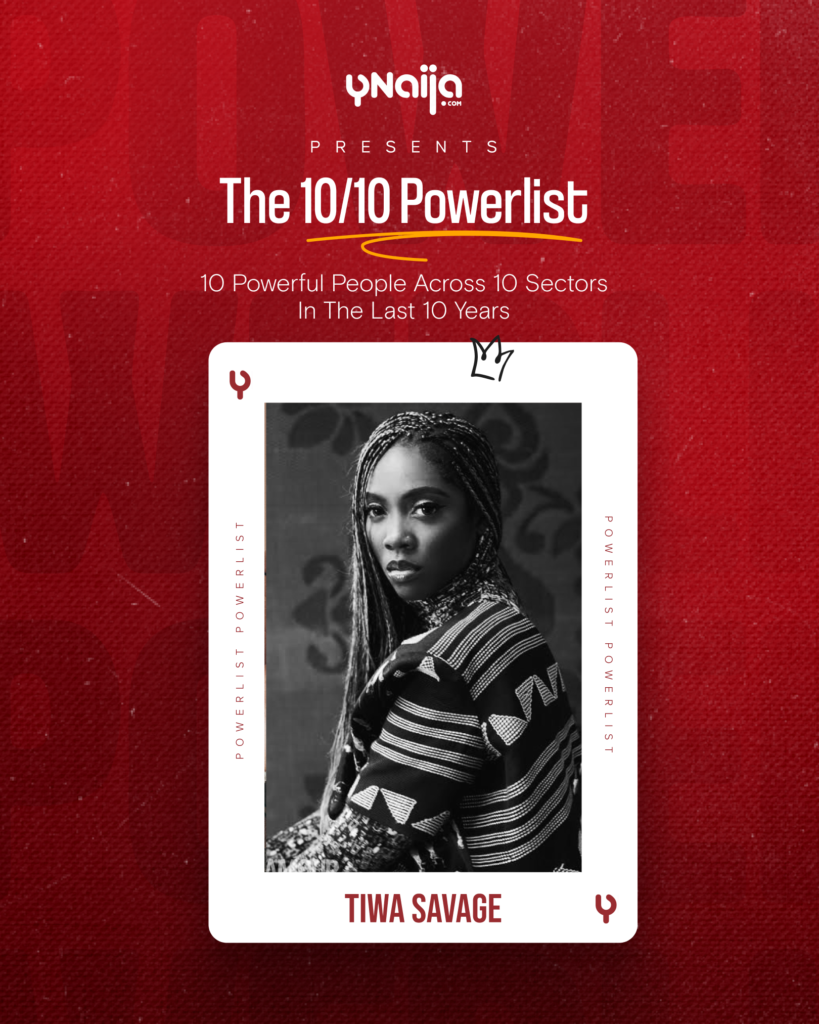
Tiwa Savage: There’s a special staying power Tiwa has managed to cultivate as a woman in afrobeats; with a career in afrobeats starting in 2013 and waxing stronger since then, Tiwa has built a reputation for herself as the queen of Afrobeats. Breaking the glass ceiling and allowing other female artists to dare to dream, Tiwa has taken space at the centre and refused to budge. Releasing albums that highlight her sultry style, building global connections and winning awards, Tiwa has been a key influence to many young artists and her reach is not waning at all.
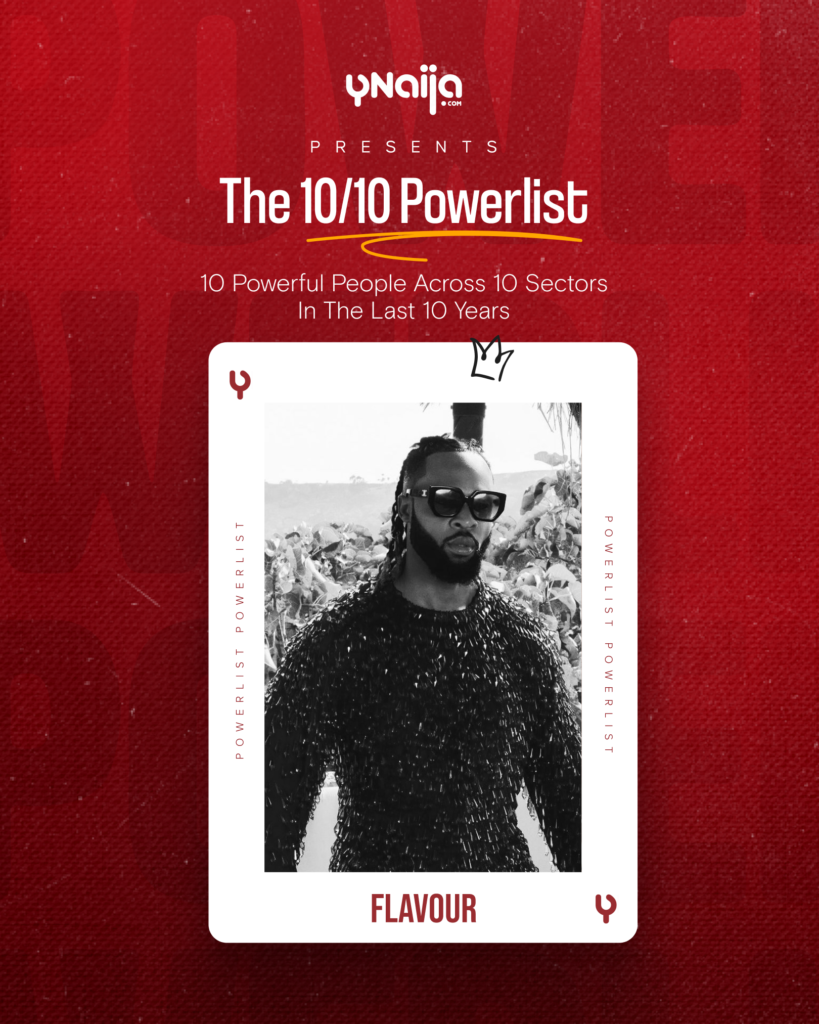
Flavour: An indigenous Igbo hitmaker whose culture forms the fabric of his career, Flavour has found a hit every year since he came on to the scene. Finding an audience that adores him for his authentic style and sultry dance moves, he has won awards that recognize his vibrant live performances and music videos. With hits like Ashawo, Ololufe, and Big Baller Flavour remains the gift from the east that keeps on giving.
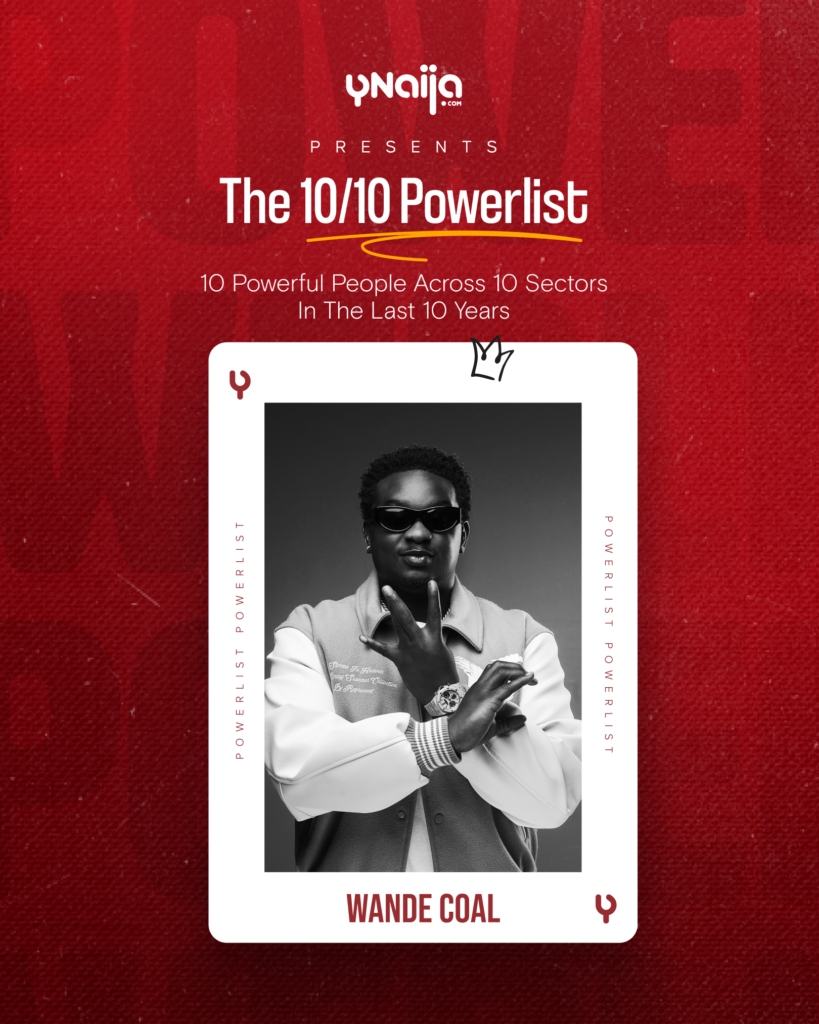
Wande Coal: Having the honour of one of your songs being declared one of the greatest Nigerian love songs is enough to find pride in, but for Wande Ololufe was just the beginning. With a career that began under Don Jazzy’s Mo’ Hits, he released hit after hit till he got into some label issues. Then there was silence before the Wande Coal renaissance in recent years with a stellar run that included So Mi So, Again and Come My Way, the crooner reminded us why he’s been in the game for this long.
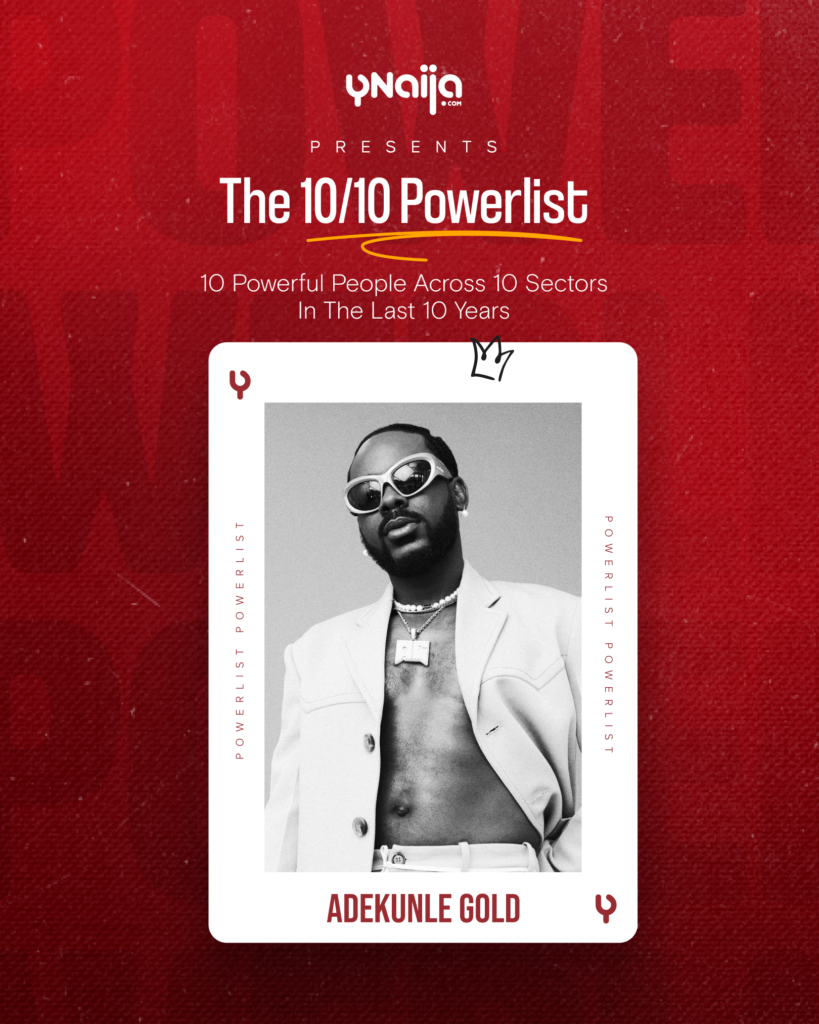
Adekunle Gold: The moment we all heard Sade, we knew we had found a lover boy to sing along to. He went on to sign a deal with YBNL and released his debut album Gold which gave us Orente and Pick Up, he went on to also release his next album About 30 and then came the rebrand. A shift in public perception as a musician can wreck a career but few have handled one better than Adekunle Gold mostly because he did it on his own terms. His new Afro pop sound is confident, suave and charismatically funny and has found him global success and recognition.
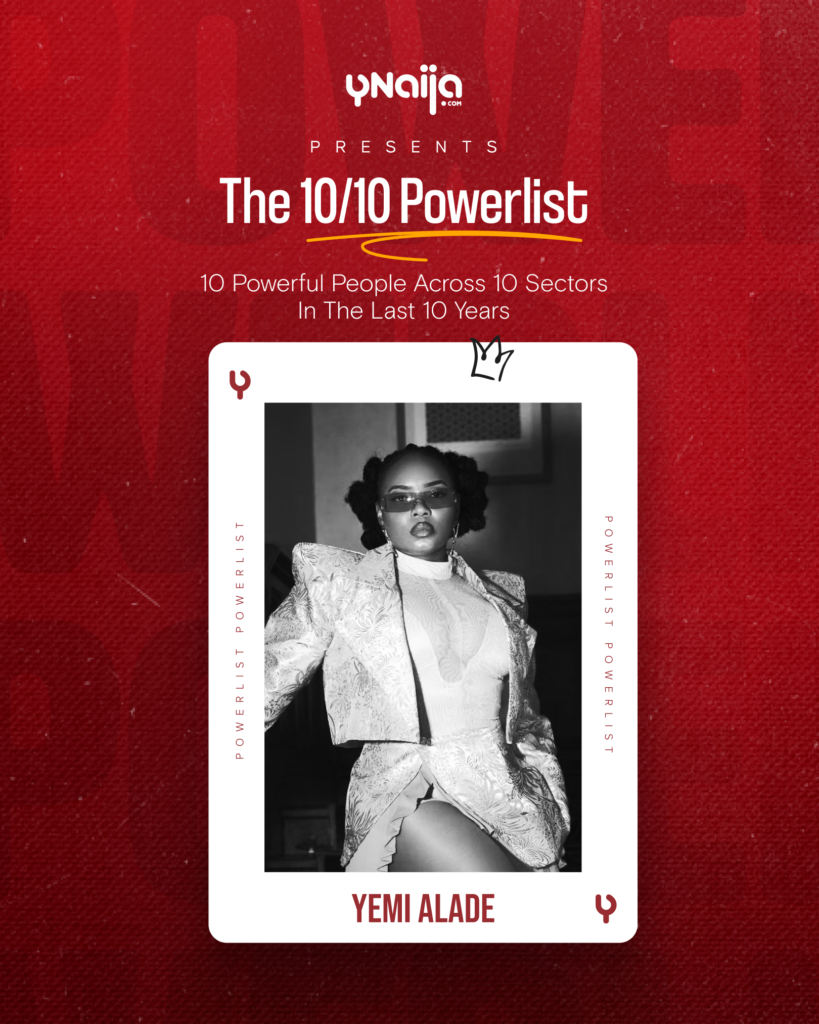
Yemi Alade: Fondly referred to as Mama Africa after her second album, Yemi Alade has been a staple on the local and global stage since she told us about the wayward ways of Johnny in 2015. She has constantly pursued a mix of African sounds in her work since then, incorporating different languages, featured artists and cultures into her music. This has led her to take the helm of global campaigns and even appeared on Beyoncé’s Lion King inspired album. Inspiring a new generation of artists and still setting records, Mama Africa’s reach is definitely beyond the continent.
TV/Radio presenters
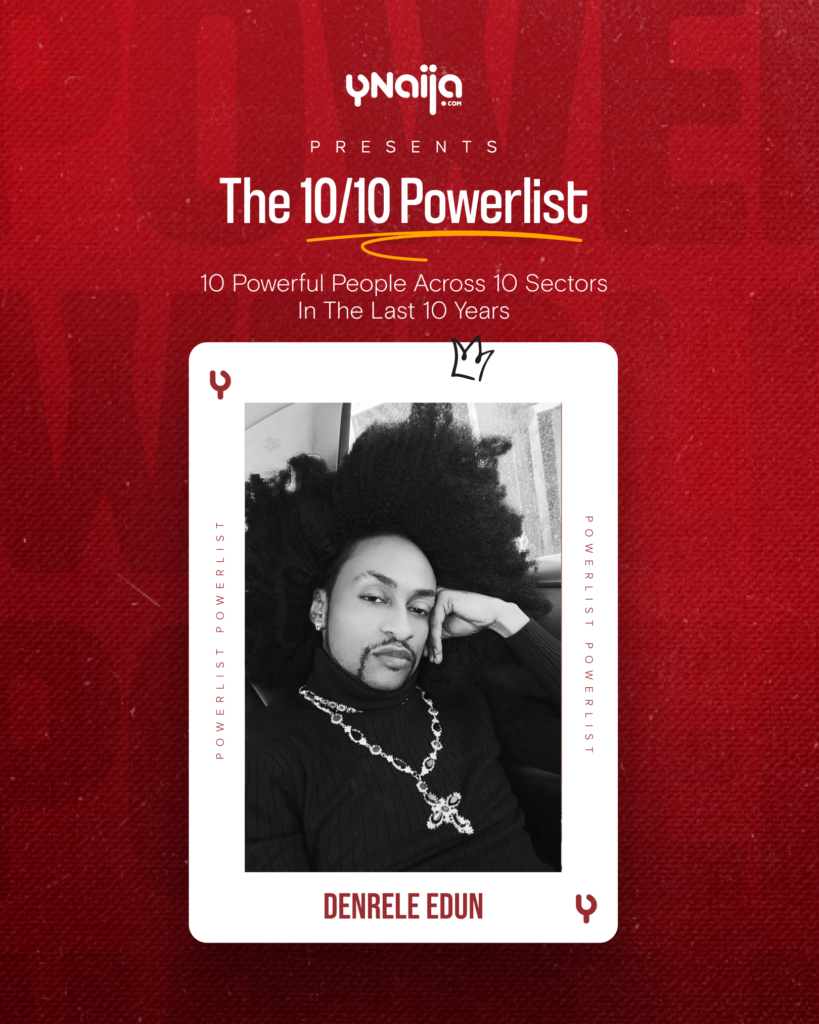
Denrele: Many young Nigerians will know Denrele Edun from his time on the KKB show but his explosion on the scene came from a combination of his eccentric style and his work as a host on Soundcity. A career spanning more than two decades, Denrele has shared the red carpet with the likes of Beyoncé, Tyler Perry and Akon and hosted shows like Lip Sync Battle Africa. A vibrant presence on any red carpet, an ability to make every event his own, Denrele remains the one you want making your event pop.
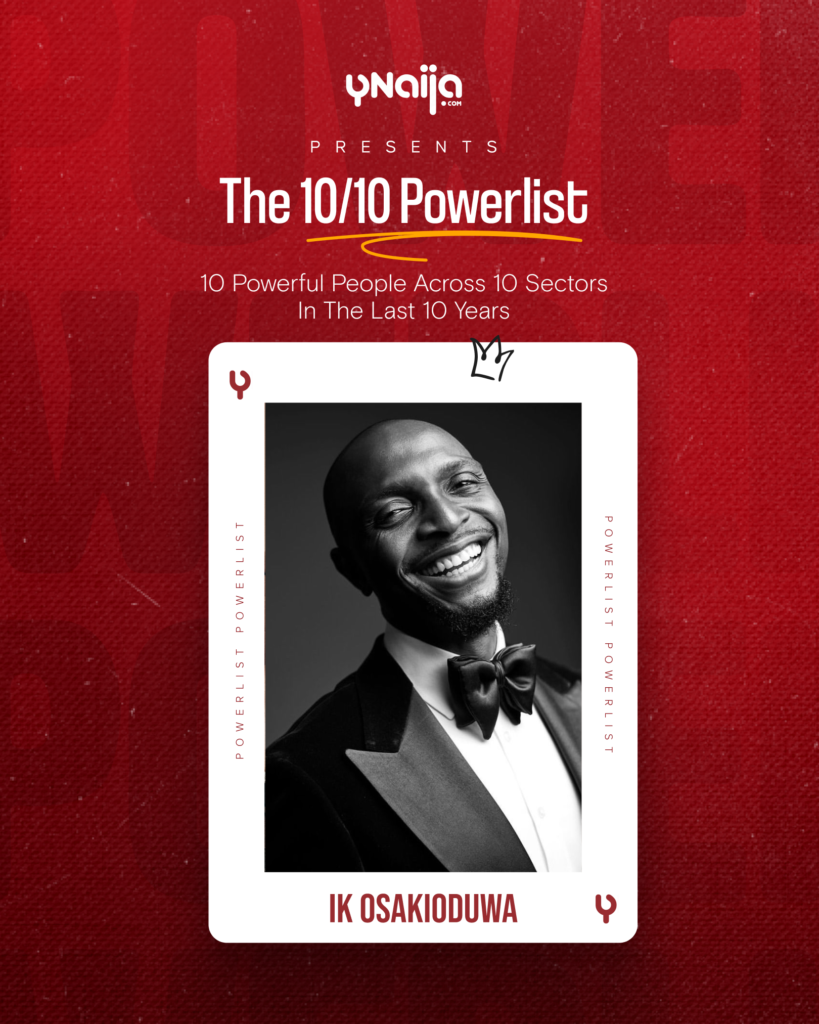
IK Osakioduwa: Characterised by his signature wit and sometimes unpredictable personality, Osakioduwa has been on our airwaves and screens since his early years in Rhythm 93.7 FM, a career that lasted 18 years across different programs. He went on to host TV spots like MNet’s Comedy Club and six seasons of big brother Africa and when Africa Magic decided to hold the inaugural edition of the African Magic Viewers Choice Awards in 2013, he was the host. He went on to host Highlites with IK, a late night TV show in 2014 and then The Voice in 2016. His ability to balance humour and engagement has kept him in demand and he’s not slowing down.

Ebuka: A background in law might be what gives Ebuka his calculated edge as a host. Starting his public career as a housemate on the first season of Big Brother Nigeria, he went on to host the season in 2017 and onward. He has been a long time host of Rubbin’ Minds on Channels where he talks to a variety of guests and in 2016 he became the host of Men’s Corner, an all male TV talk show. His most prominent job as BBN’s host has kept him in public discourse for years now; sometimes they’re on his side, other times they’re not but his influence cannot be denied.
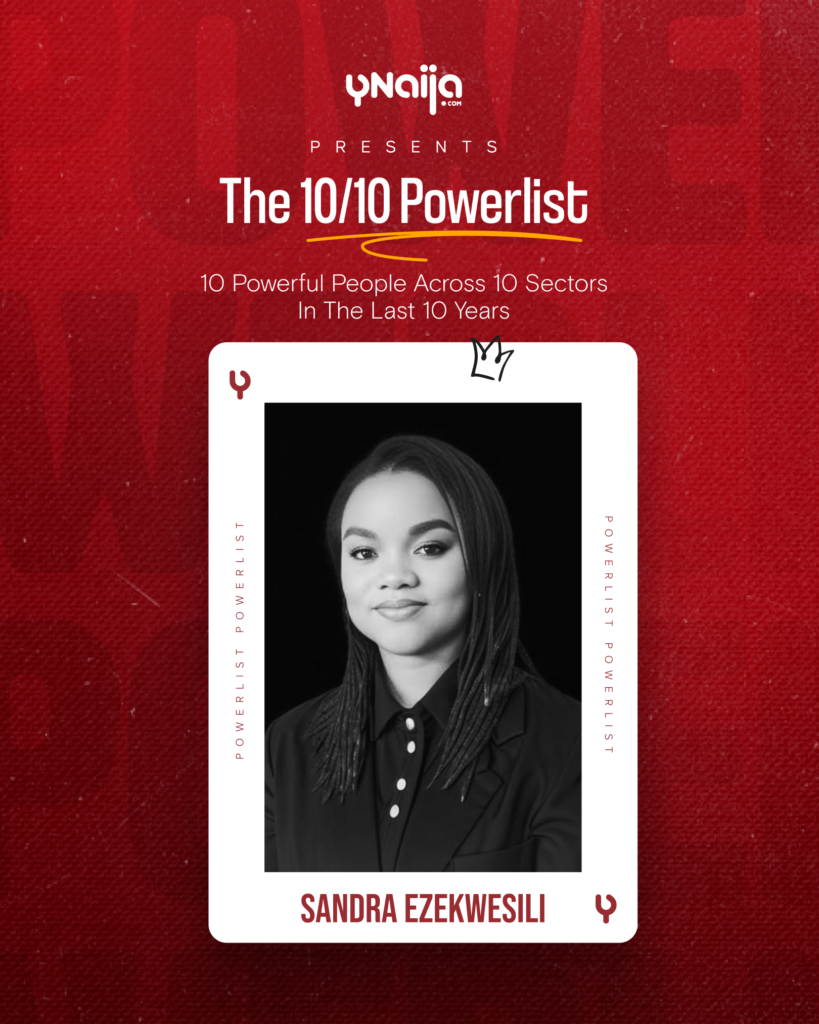
Sandra Ezekwesili: Starting her career at Cool FM Port Harcourt in 2013, Sandra has risen to the top of radio hosting over the past ten years. Quickly becoming one of the most popular hosts on the network, she then transitioned to Nigeria Info 99.3 FM, a station that focused primarily on news and current affairs. This transition from an entertainment radio host to a political show is one that can mar a person but Ezekwesili rose to the occasion. Hosting Hard Facts, she often is a recipient of vitriol for her stances in support of women and refusal to back down from difficult conversations. Her work with the I Beg To Differ Debate Tournament is proof that with her influence she’s ensuring the future of her field is secure.
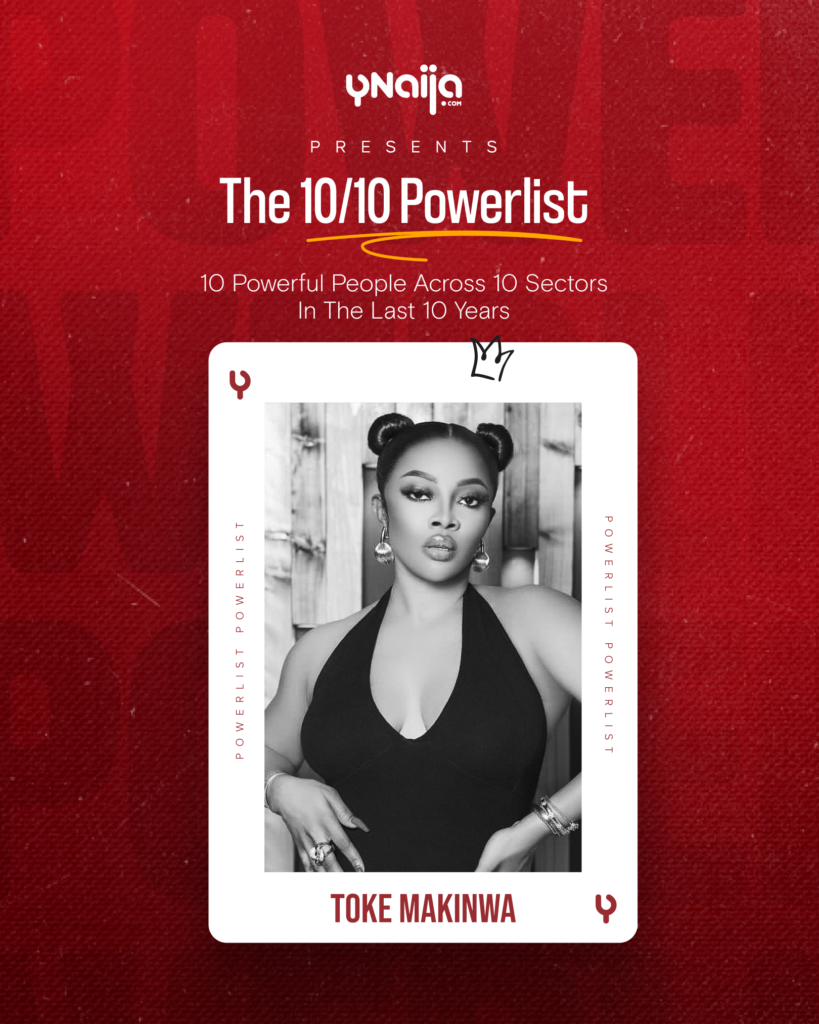
Toke Makinwa: A career that has had numerous highlights and a personal life to match, Toke Makinwa has been a major success in her field. Starting with cohosting The Morning Drive show on Rhythm 93.7 and then moving to TV in 2012 by hosting the Most Beautiful Girl in Nigeria beauty pageant, Toke has gone on to secure gigs with Hip Hop World Magazine, EbonyLife TV, Gulder Ultimate Search and in 2021 she started her own TV show Talk With Toke Makinwa. Her memoir released in 2016 was another time she dominated internet conversations with the details in the book. Toke is very familiar with the way to wield public attention and her career is better for it.
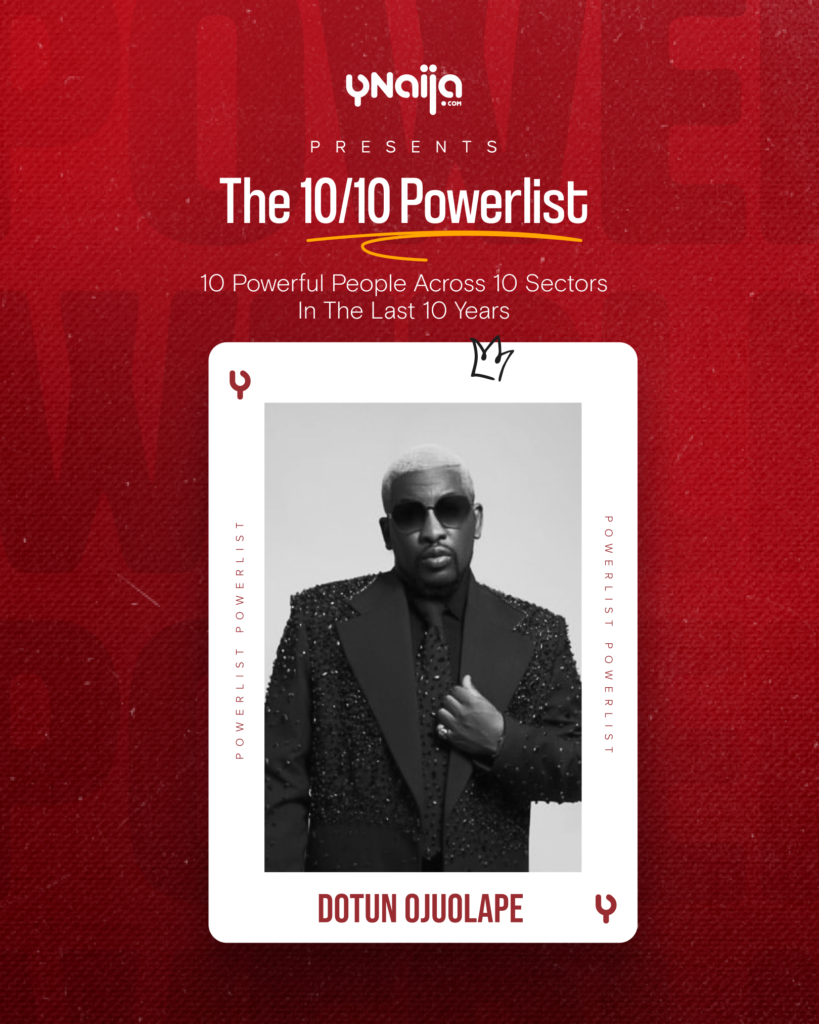
Do2dtun: A career that began in radio, specifically Cool FM and then began to take off even more when he started hosting Soundcity’s The Greatest on Earth Radio Show, Dotun’s voice has captured the airways. Amassing ambassadorship deals and viral collaborations as his career continues, Dotun has marked his territory on the entertainment scene as he is now even a member of the Recording Academy, a feat very few Nigerians can boast of.
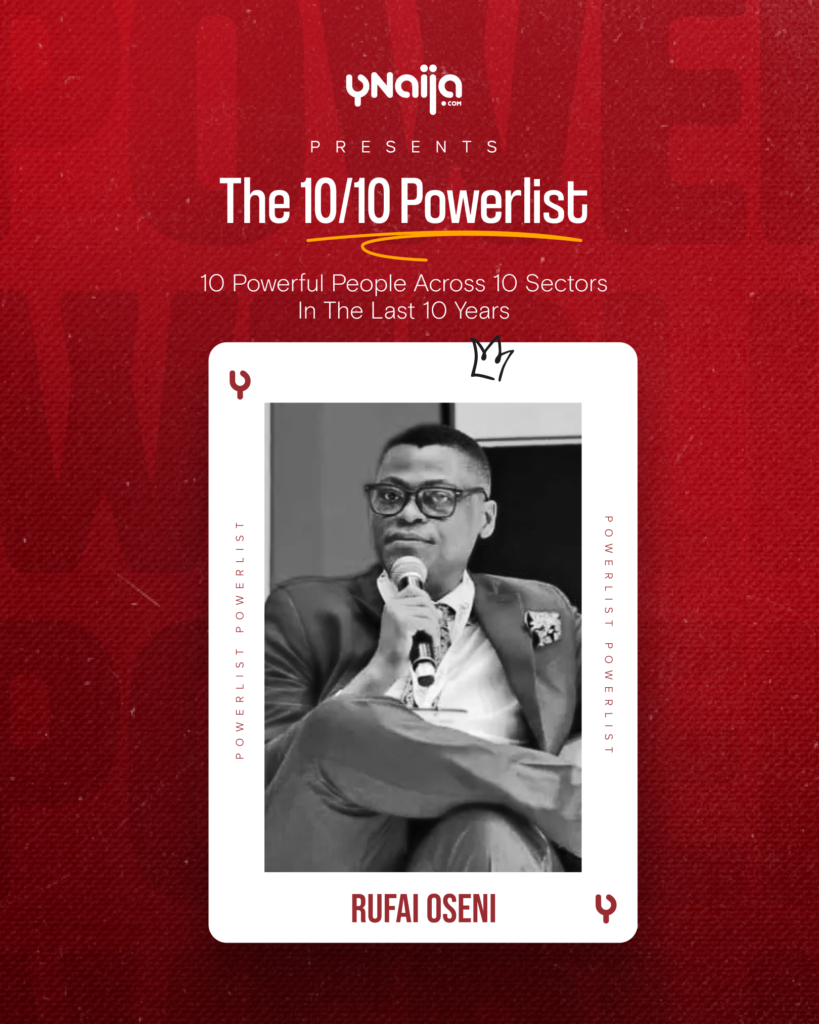
Rufai Oseni: Oseni has been in and out of many presenting formats. With a start in radio and a stint as editor at Next Magazine, the role that has brought him to prominence is his work as a host for Arise TV’s morning show. Known for his confrontational style with guests, his interviews often go viral for their ability to push guests to a corner. A constant thorn in the government’s flesh, Oseni has not backed down from a fight yet and isn’t doing so anytime soon.
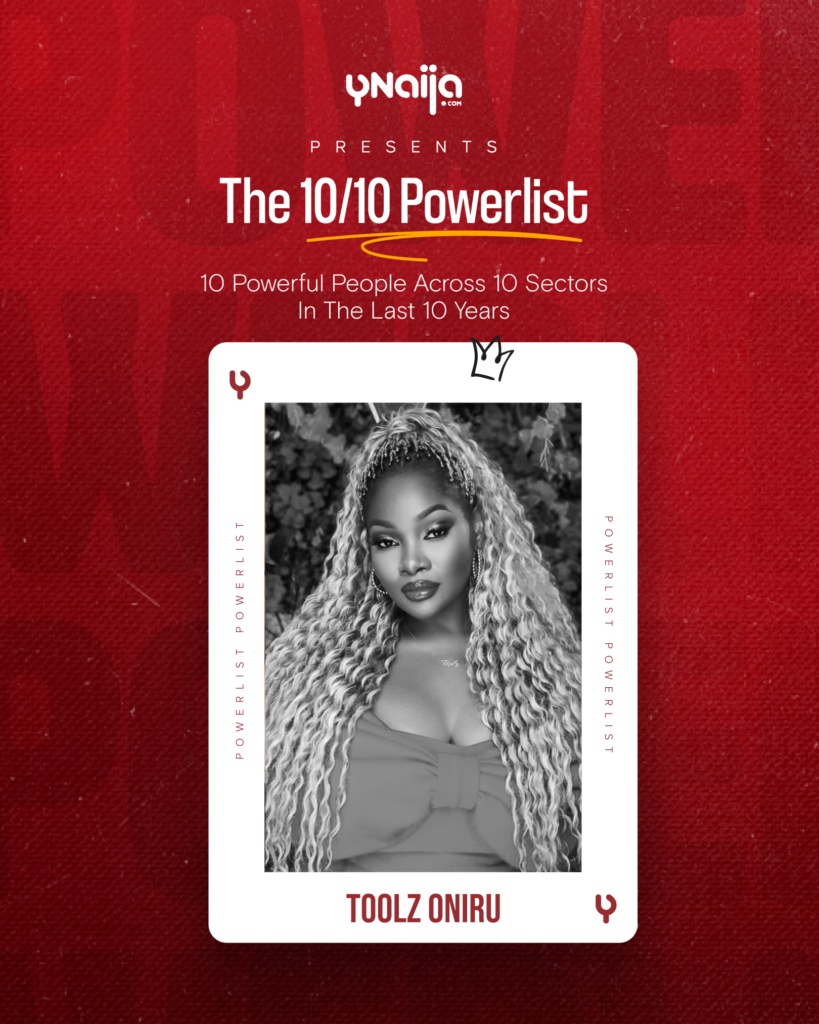
Toolz: Tolu ‘Toolz’ Oniru-Demuren began her career outside the shores of Nigeria but has come on to dominate radio programming in the country. Currently juggling three roles: The Midday show with Toolz on The Beat 99.9FM, The Juice by Ndani TV and The Wrap Up on Accelerate TV, she has shown her skills on the mic and in front of a camera. Passionate about Nigerian music, she is credited with introducing the Rookie of the Year category to the Headies Awards. Toolz domination is proof of her immense skill and talent as a presenter.

Kemi Smallz: Formerly an OAP at Lagos Lifestyle Radio Station, City FM, and also a former TV presenter at EbonyLife TV, Smallz has maximised her reach on radio and with her social media presence. Winning the Radio Personality of the year at the 2016 Maya Awards, she has continued to take up radio space currently working for Cool FM 96.9.

Seun Okinbaloye: There’s a certain tenacity one needs to hold the position of a political journalist in Nigeria and for years now, Okinbaloye has performed that role at the top of his game. Currently the Political Editor at Channels Television and also the host of two of Nigeria’s most popular political programs—Sunday Politics and Politics Today. A winner of the Nigerian Media Merit Award Television Programme Presenter of the Year, Seun Okinbaloye continues to hold space for excellence in his field.
Religion
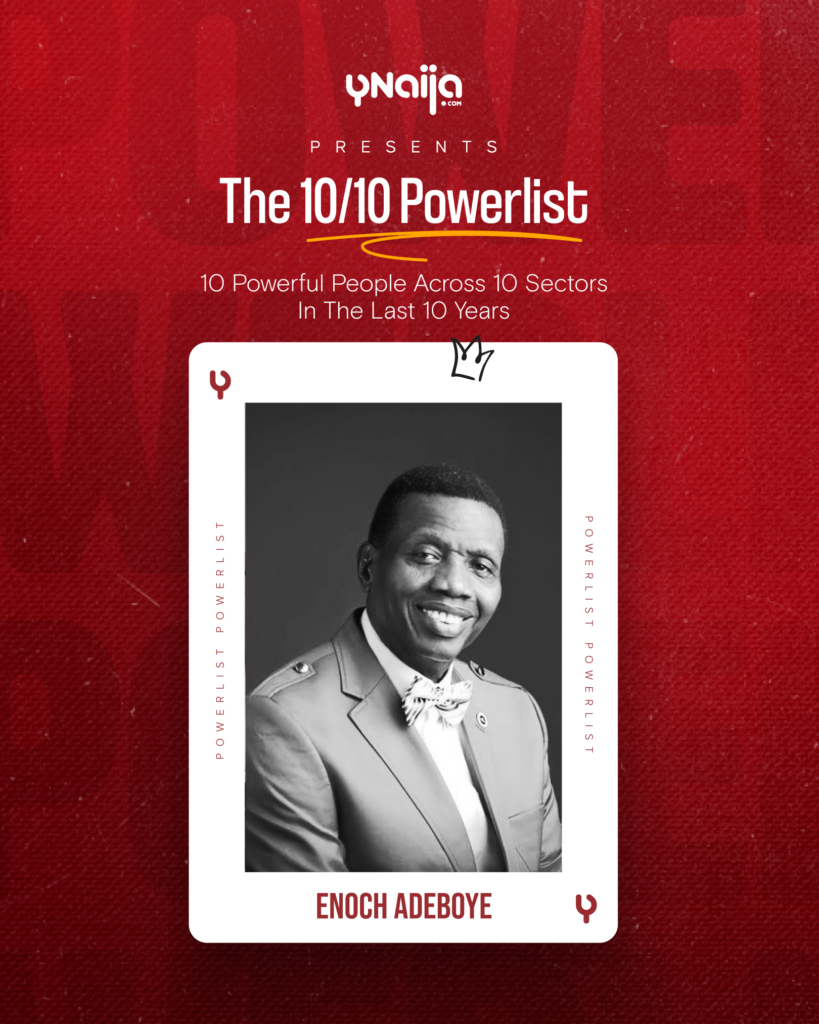
Enoch Adejare Adeboye: Currently overseeing a network of over 40 thousand parishes of the Redeemed Christian Church of God in 186 nations, the former mathematician turned pastor is one of the most influential figures in Christianity. Convening a yearly conference at the Redemption Camp, Adeboye has amassed a congregation that runs into the millions. In 2013, when he announced the building of a 3km by 3km auditorium as the old auditorium could no longer accommodate the crowd, it seemed like an impossible task but currently, the auditorium is fully functioning and there’s talk of an even bigger one.

David Oyedepo: A charismatic character and academic preacher, David Oyedepo pastors a network of churches of Winners Chapel International around the country, forty five African nations and the rest of the world. Over the past ten years he has made his mark in both the religious and academic fields, establishing firmer ground in Canaanland—the church’s base—and starting what is considered one of the best universities in the country, Covenant University. With a yearly gathering known as Shiloh, Oyedepo’s last ten years has been him finding firmer footing despite the criticism he often faces.
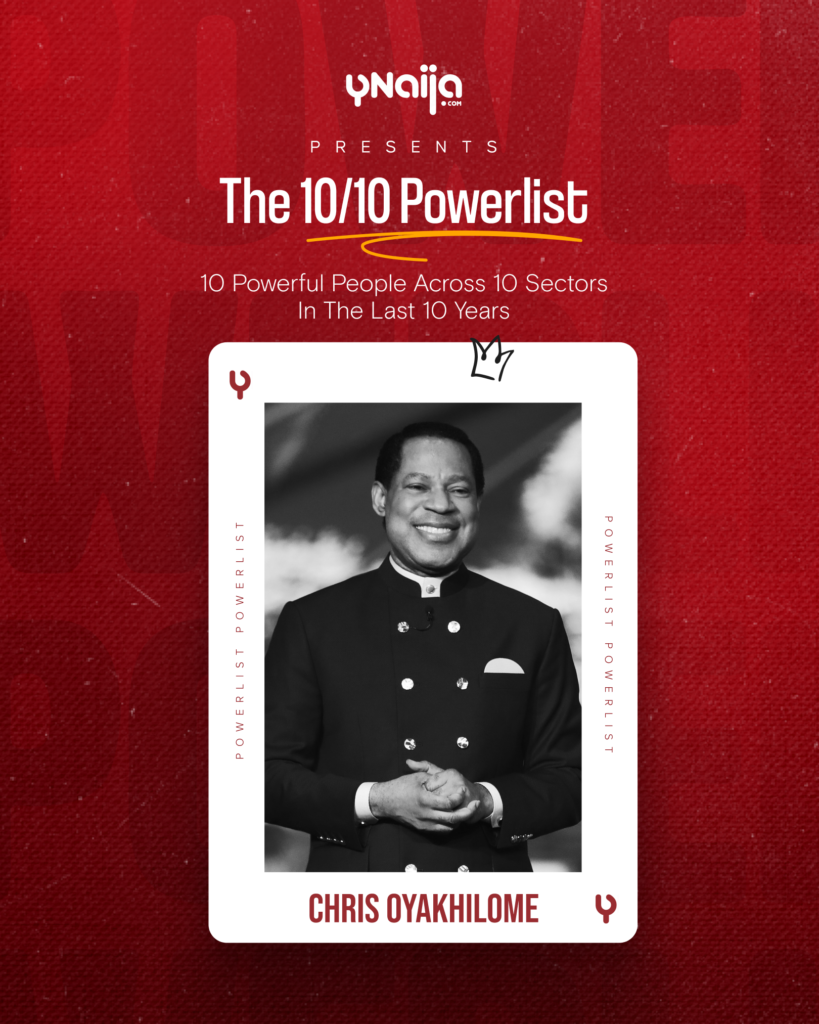
Chris Oyakhilome: Founding pastor of mega church Christ Embassy and president of LoveWorld Incorporated, Pastor Chris has utilised TV and online communities unlike any other Nigerian pastor. Leading a church that has found a vibrant youth membership due to its aggressive campus evangelism and musical culture, Oyakhilome continues to find success in his ministry with over 145 branches in five continents. Not one without controversy—his healing school and anti vax sentiments come to mind—there’s no denying his continued presence on the Christian scene.
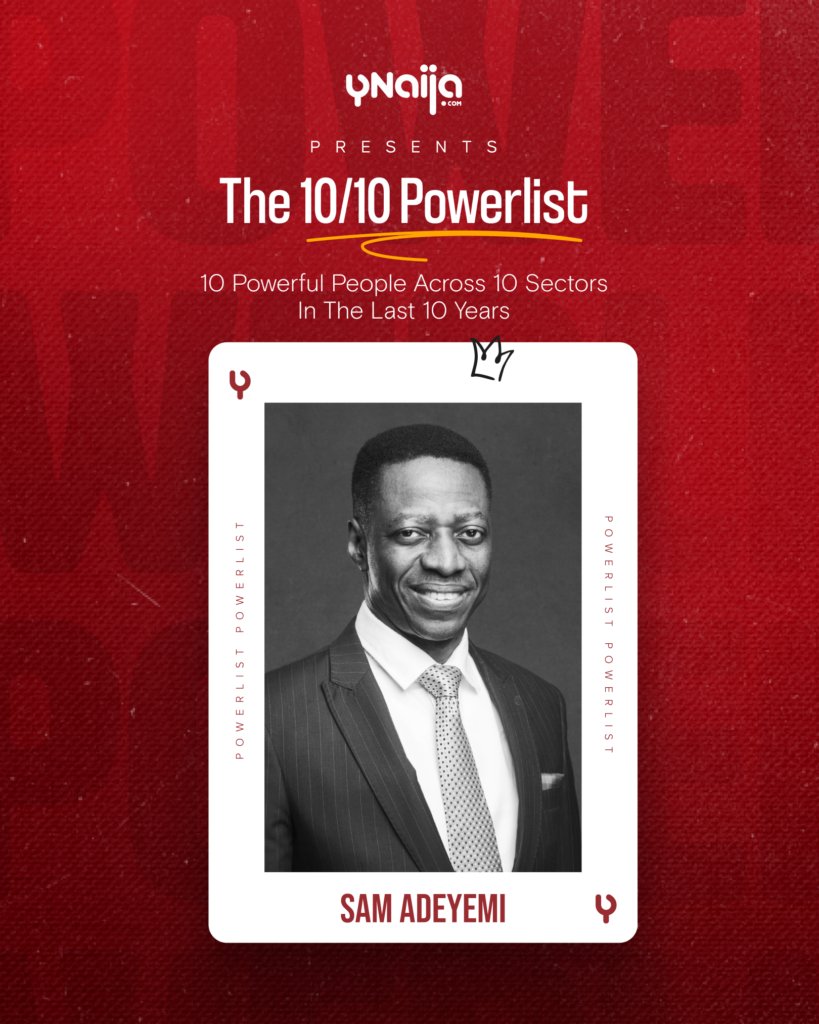
Sam Adeyemi: The pastor in charge of Daystar Christian Centre, he has found a steady rise at the intersection of religion, public speaking and business. In recent years, his church has found success for his purposeful messages that fuse spiritual principles with the reality of existing in a world of systems. Convening one of the most highly anticipated carol services every year, he continues to pastor his church despite relocating in 2020 as a result of COVID 19, the End SARS protests and troubling dreams he and his wife had.
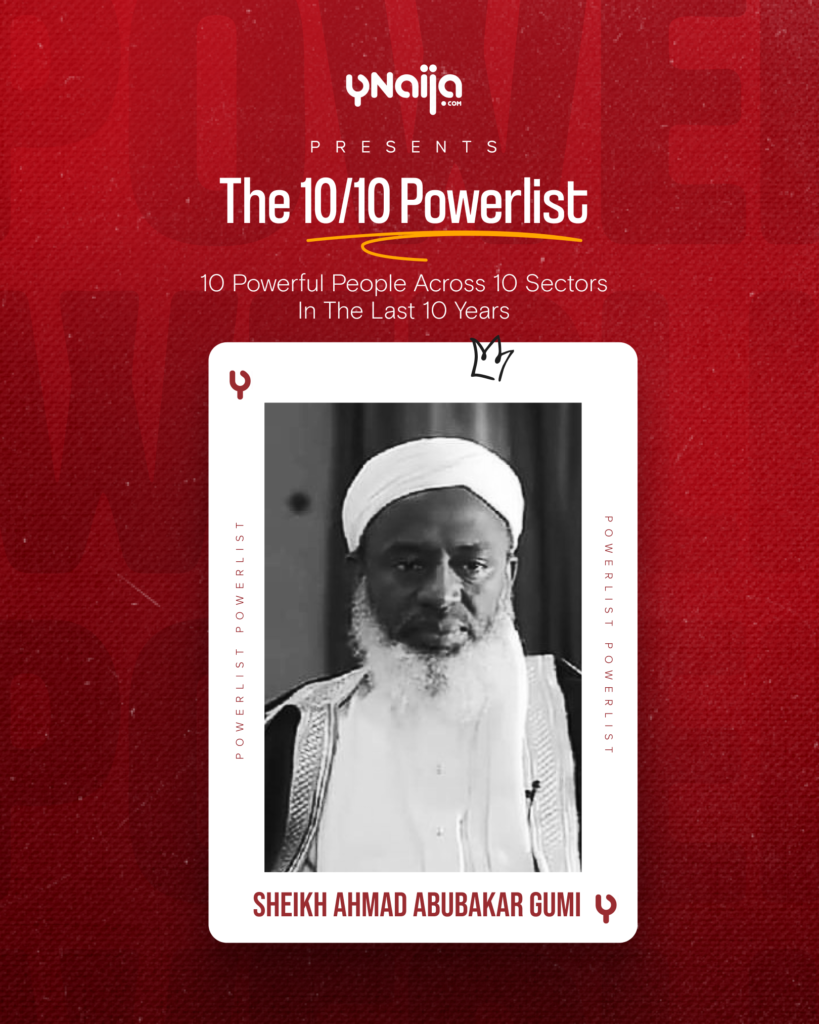
Sheikh Ahmad Abubakar Gumi: Descending from a long line of Islamic scholars, Abubakar Gumi was destined to find himself on the same path. Serving in the Nigerian army and retiring as a captain and continued his service as a negotiator with bandits and kidnappers in northern Nigeria. A divisive figure for some of his remarks on amnesty, one cannot deny his influence on the perception of insecurity in northern Nigeria.
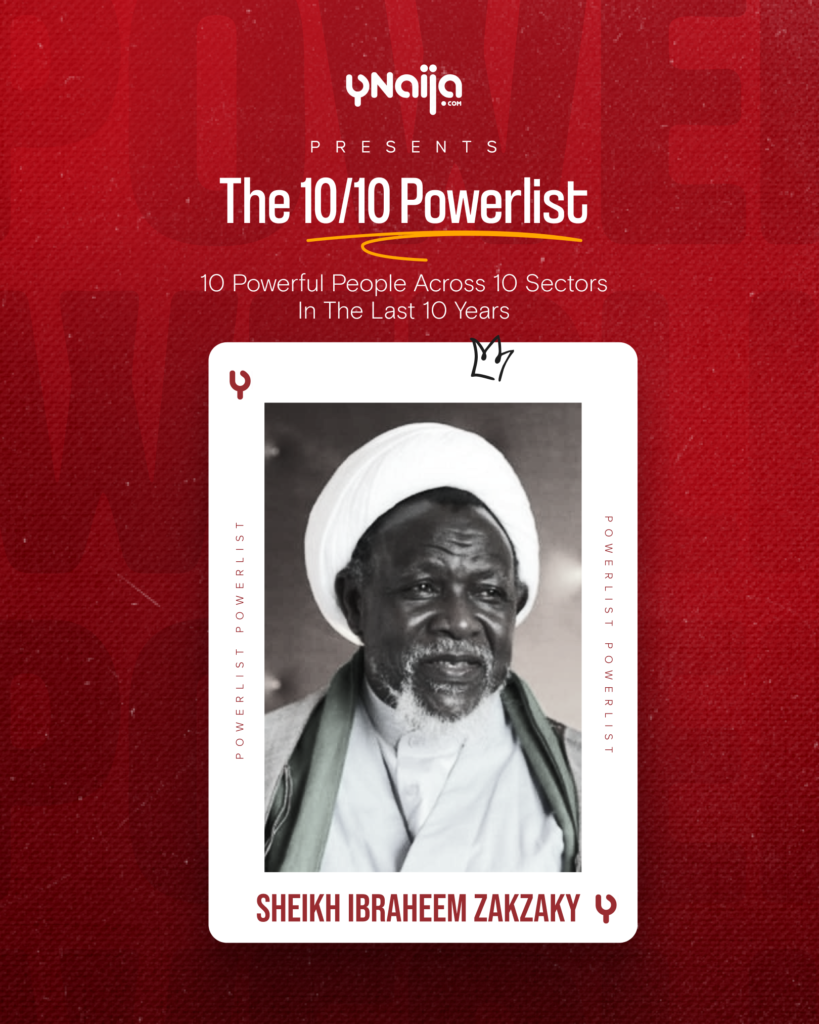
Sheikh Ibraheem Zakzaky: To dedicate one’s life and soul to a cause is rare and Ibraheem Zakzaky is no stranger to this. The spiritual leader of the Islamic Movement in Nigeria, Africa’s most prominent Shi’a Muslim movement, he has continually been in conflict with the government which has resulted in many violent incidents. He has been detained many times and his movement declared illegal but remains dedicated to the course even after losing six of his sons to massacres.
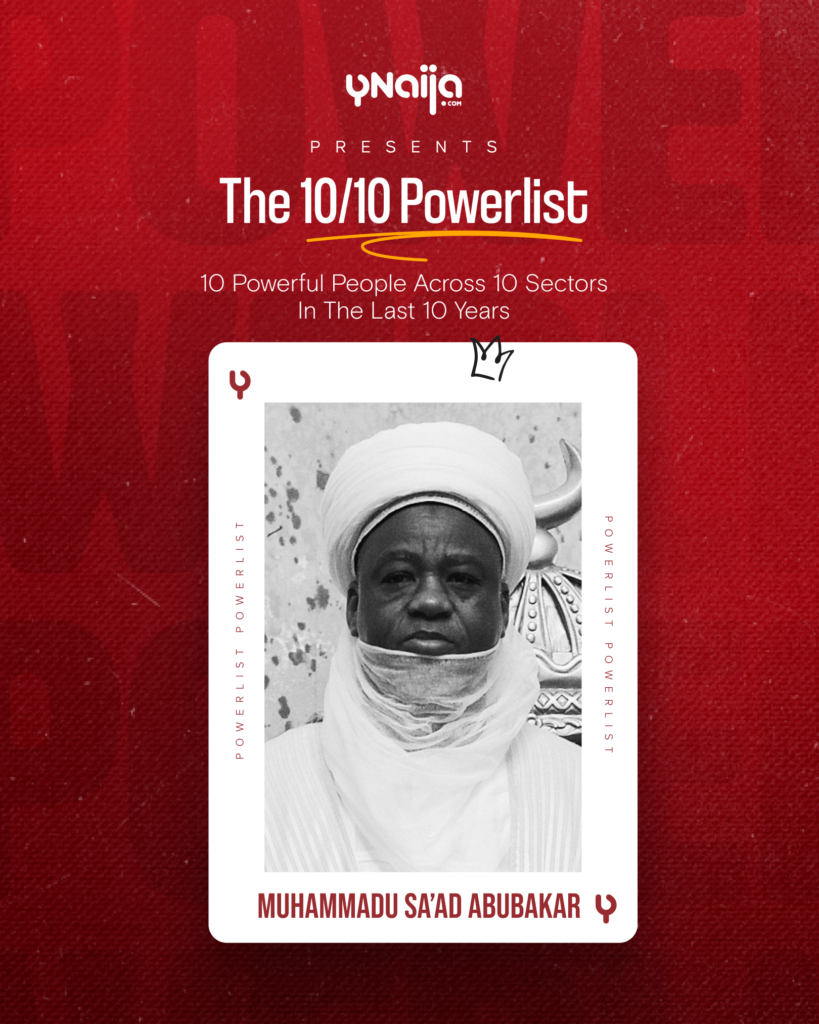
Muhammadu Sa’ad Abubakar: The Sultan of Sokoto and considered the spiritual leader of Nigeria’s muslims, Abubakar plays a major role in the direction of this religious community. Ascending to the throne in 2006, he is seen as the Chief Moonsighting Officer responsible for the religious calendar of the muslims. His life shows that there are many ways to serve and the two paths he has chosen have brought him deep fulfilment and prestige.
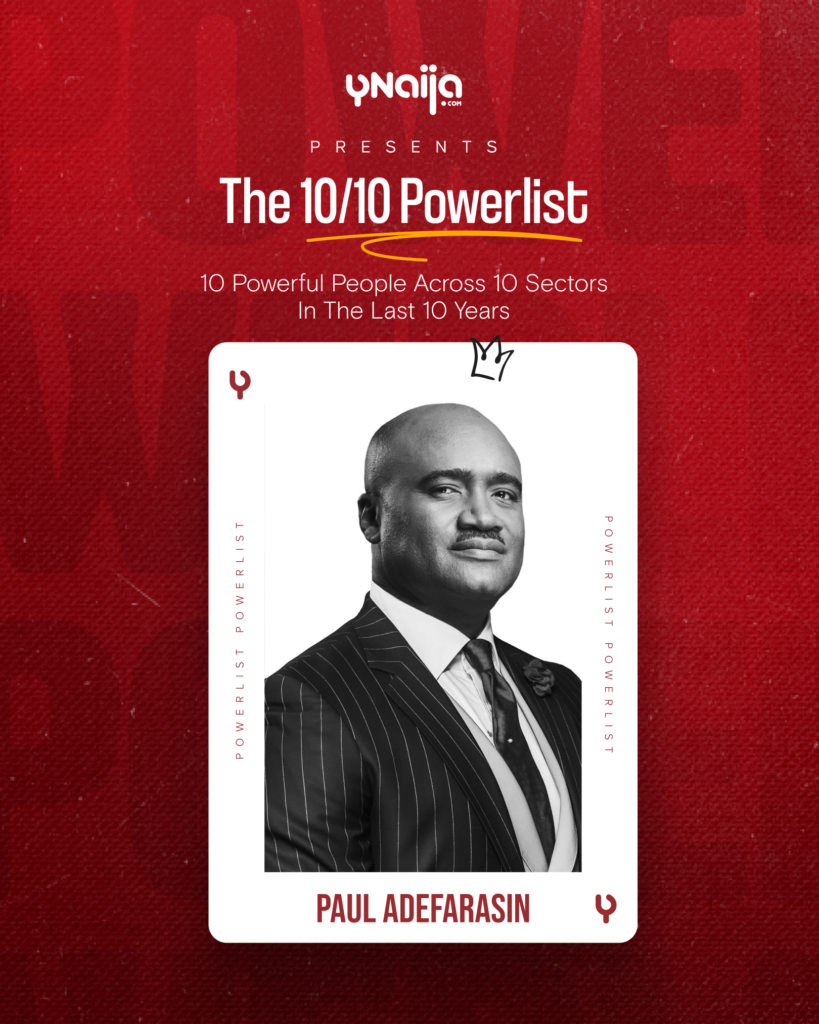
Paul Adefarasin: Senior pastor of House on the Rock church, Paul Adefarasin has found a steady rise to the top over recent years. With the recognition of hosting one of the largest Christian concerts on the continent, The Experience, Adefarasin positions himself and House On The Rock as ambassadors for the large community of Christians in the country and Africa at large.
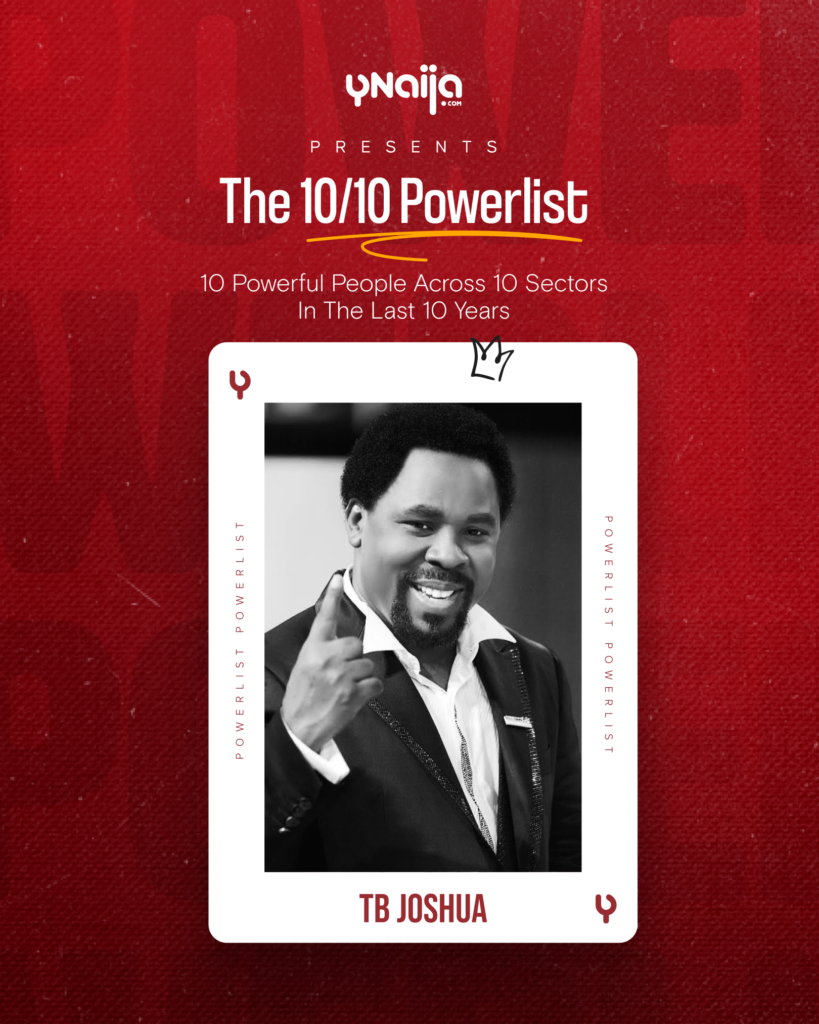
Temitope Balogun Joshua: Despite his death three years ago, the legacy of TB Joshua still waxes strong in Nigeria’s Christian circles. The leader and founder of Synagogue Church of All Nations, his influence spread way beyond this continent to as far as Latin America. Once considered the most popular pastor on YouTube because of his ministry’s TV (Emmanuel TV) network’s channel. His church has been described as Nigeria’s biggest tourist attraction and he never shied away from dabbling in politics on the continent. With many controversies including sexual assault allegations surrounding his life, TB Joshua remains alive in many conversations even after his death.
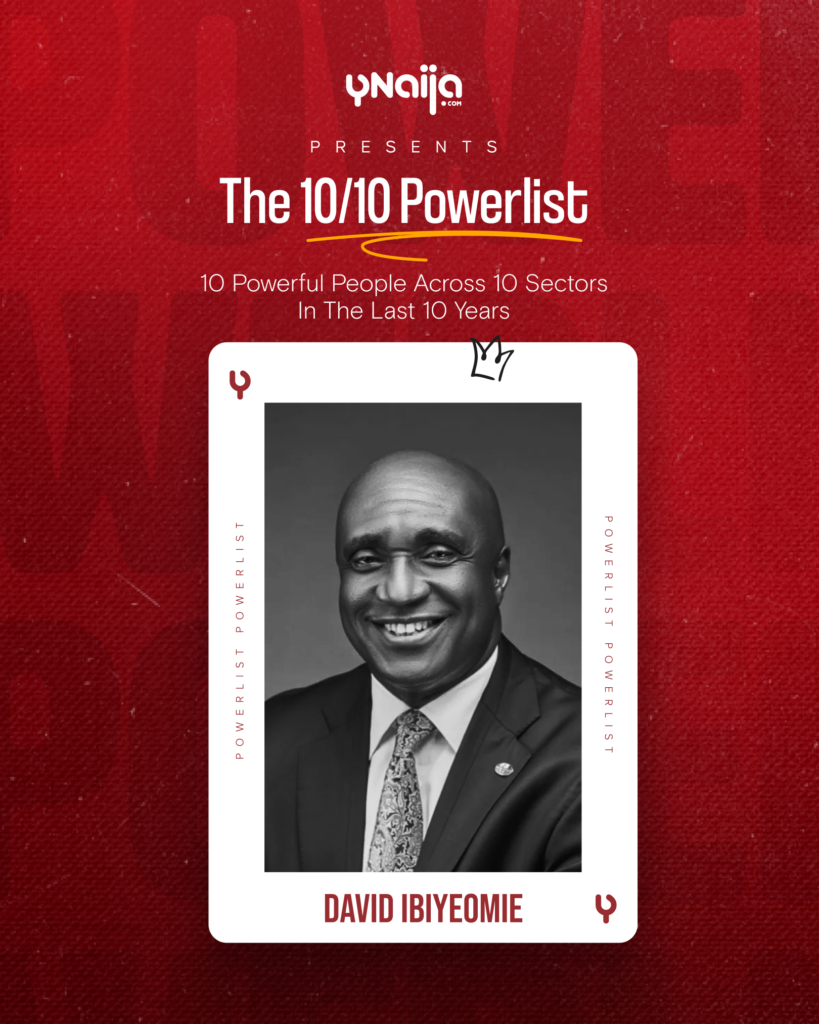
David Ibiyeomie: Known for his dance moves and cutting messages, Ibiyeomie’s ministry began in 2011 when he started 14 satellite churches of his church, Salvation Ministries, in one day, each of them running five services. This has come to be the signature of his church: efficiently run services and programs. By 2015 he had established Salvation Radio and Salvation TV and began broadcasting services in Sub-Saharan Africa, Europe, the Middle East and Asia. His church draws a large youthful crowd which is proof that he’s going to remain relevant in the Christian community of Nigeria.
Literature

Chimamanda Adichie: A global modern voice that has not betrayed local cultural context and culture is an apt description of Adichie’s work. Bursting into the scene with the acclaimed Purple Hibiscus, Adichie has spent the last years defining feminism to both praise and criticism. She has published book essays on the subject and a memoir tribute to her father. The past years have found her involved in public discourse many times and her lectures and speeches are often sighted and shared for their astute observations and dry humour. With the announcement of her new novel coming out next year, one can expect her to occupy even more public intellectual conversations in the future.
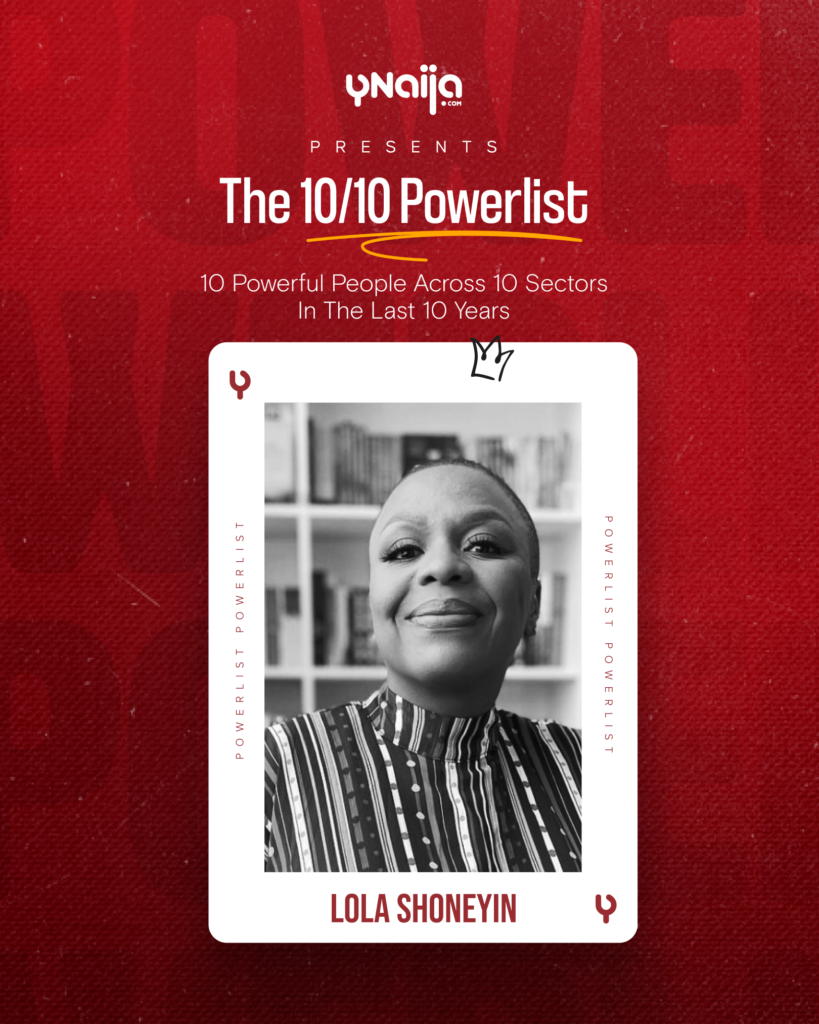
Lola Shoneyin: Influenced heavily by her life and culture, Shoneyin’s work is embedded deep in Yorubaness and being a woman in Nigeria. Her novel, The Secret Lives of Baba Segi’s Wives might be her most prominent work but in the past few years she has been actively building literary structures around the continent. Founding the Ake Arts and Book Festival in 2013, she gathers intellectuals and artists every year to discuss themes and their place in the continent. She also runs the publishing imprint, Oudia books along with facilitating literary events around the world.
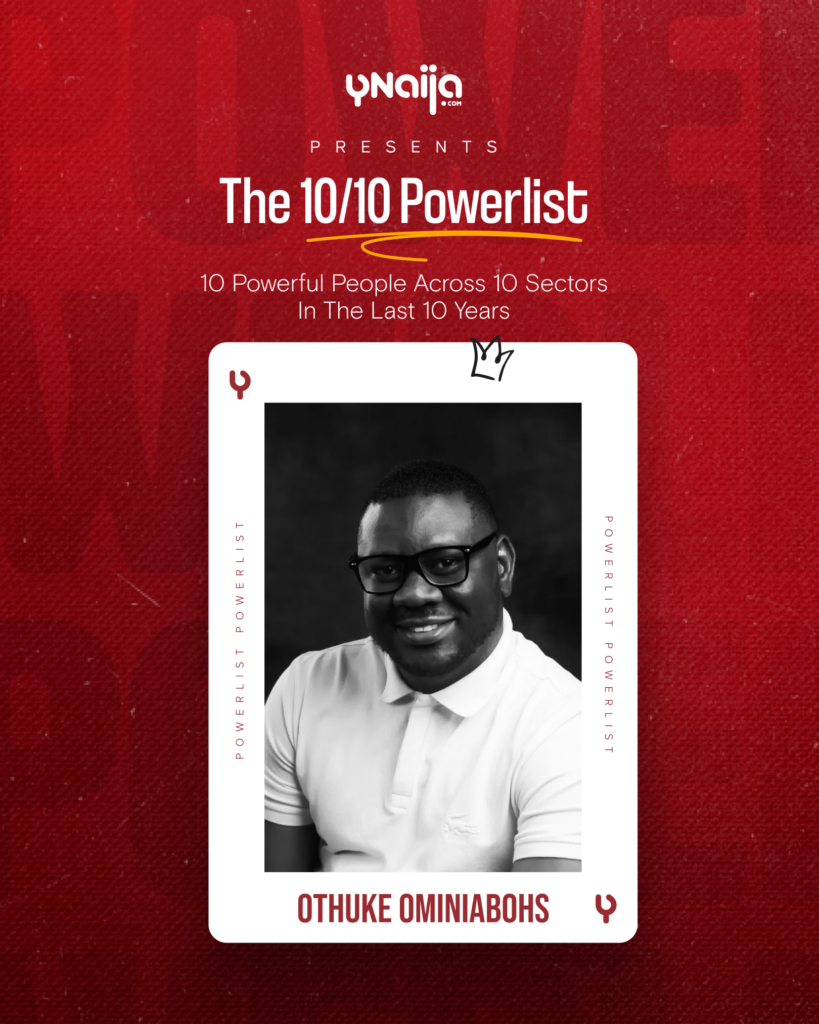
Othuke Ominiabohs: Running a publishing house is a daunting challenge, talk less of running one in Nigeria. Ominiabohs has served as the founder and CEO of Masobe Books which has captured the Nigerian community of readers with their beautiful covers and wide range of acquisitions including Chigozie Obioma, Wole Talabi and TJ Benson. An author himself, his eye for stories sets him apart and allows Masobe to take risks other publishers might not be willing to take.

Wole Soyinka: Everyone knows Soyinka. The prolific essayist, playwright, novelist, poet and Nobel Laureate, his work has defined and inspired a generation. The last few years have been Soyinka dipping in and out of public discourse with political commentary and observations that often spur further public discourse. With his most recent novel, Chronicles from the Land of the Happiest People on Earth published in 2021, he has continued to allow himself to be documented in a way that services the literary history of the nation and continent at large.

Romeo Oriogun: A poet is often considered the emotional urgency of the literary experience, never moving away from the importance of their duty and Romeo captures that duty with reverence. With a body of work that excited literary circles and winning the 2017 Brunel University African Poetry Prize, he continues to write poetry and comment on the literary present and future of the nation. When he won the Nigerian Prize for Literature, he was the first openly queer winner and chose to share the money with other shortlisted writers. With publications in Poetry Foundation, Harvard Review and others and two poetry collections, his work and commentary continues to have an impact.
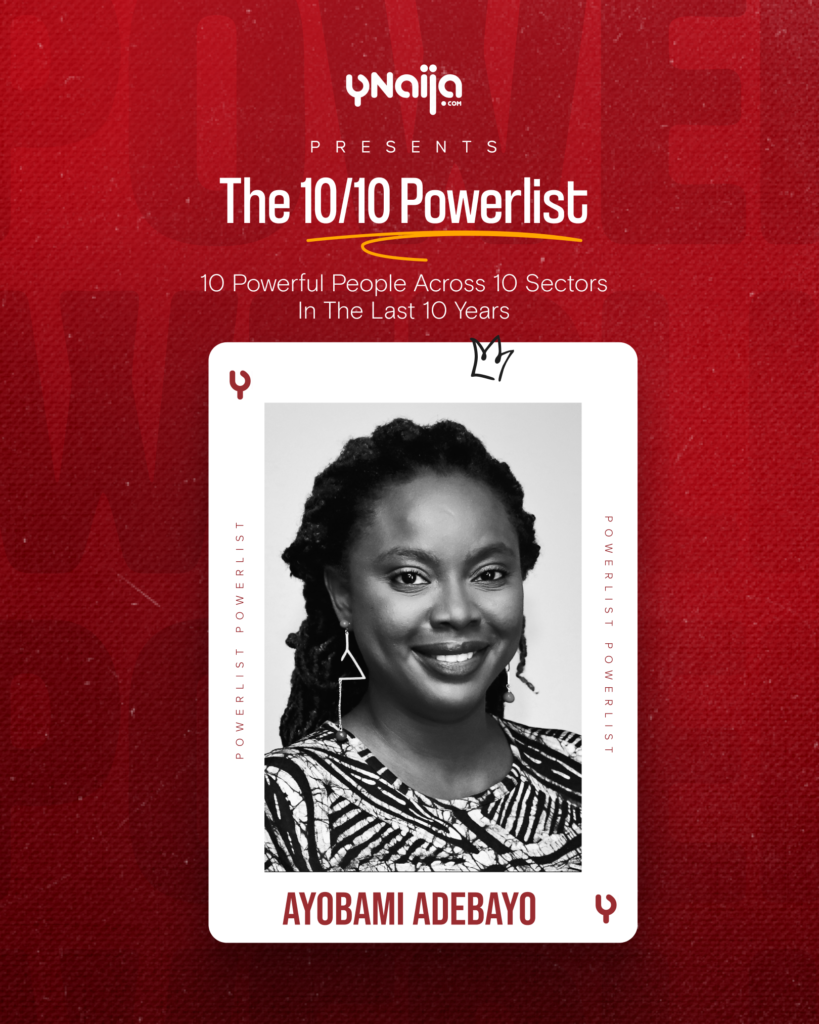
Ayobami Adebayo: Making the rounds in literary circles long before her debut, Ayobami interrogates the many intricacies of womanhood in Nigeria with her work. Her debut, Stay With Me, was shortlisted for the Baileys Women’s Prize for Fiction as well as the 9Mobile Prize for Literature which the novel won. She has gone on to follow that up with ironically titled A Spell of Good Things which solidified her position as a writer looking to define a generation.
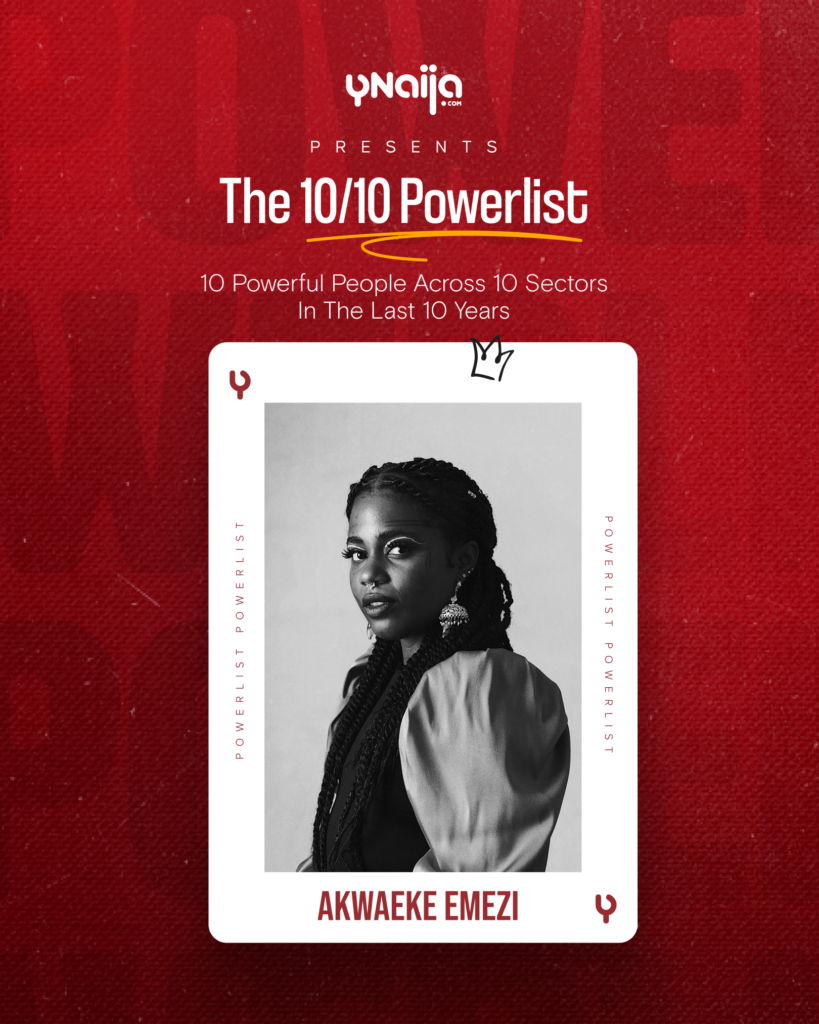
Akwaeke Emezi: A debut semi autobiographical novel that stopped the literary world in its tracks and forced us to reckon with new ways the personal, spiritual and physical intersect, Akwaeke has been on a spree since then. They have gone on to release three other books including a poetry collection and also had the rights to their debut romance novel, You Made a Fool of Death with Your Beauty, bought by Amazon Studios. Akwaeke’s work has impacted the conversations around gender and Igbo spirituality and their vocal commentary constantly gives context to conversations modern literature often leaves behind.
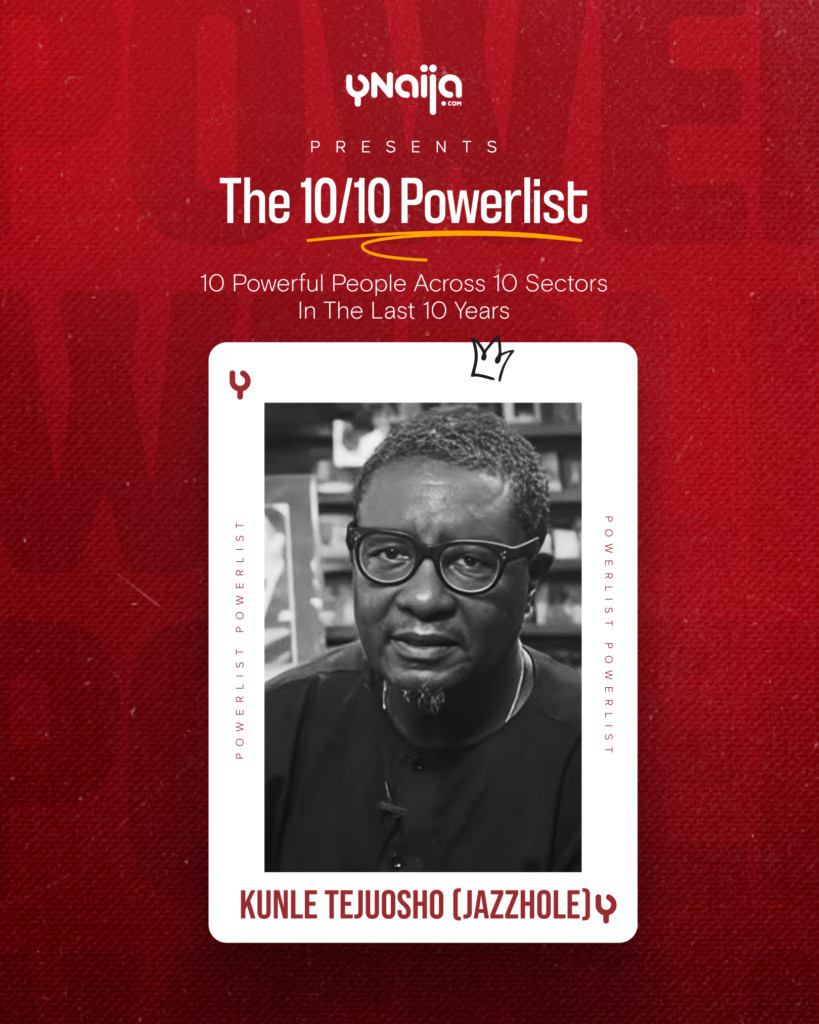
Jazzhole: Primarily a bookshop but also a kind of cultural venue, the Jazzhole asks you to calm down, reflect and experience culture in a city that is often averse to calm. Located at 168 Awolowo Road, Ikoyi, Lagos. A music venue, a vinyl store and a cafe rolled into one, The Jazzhole continues to draw people into its unique world and brand itself as one of the places to visit in Lagos.
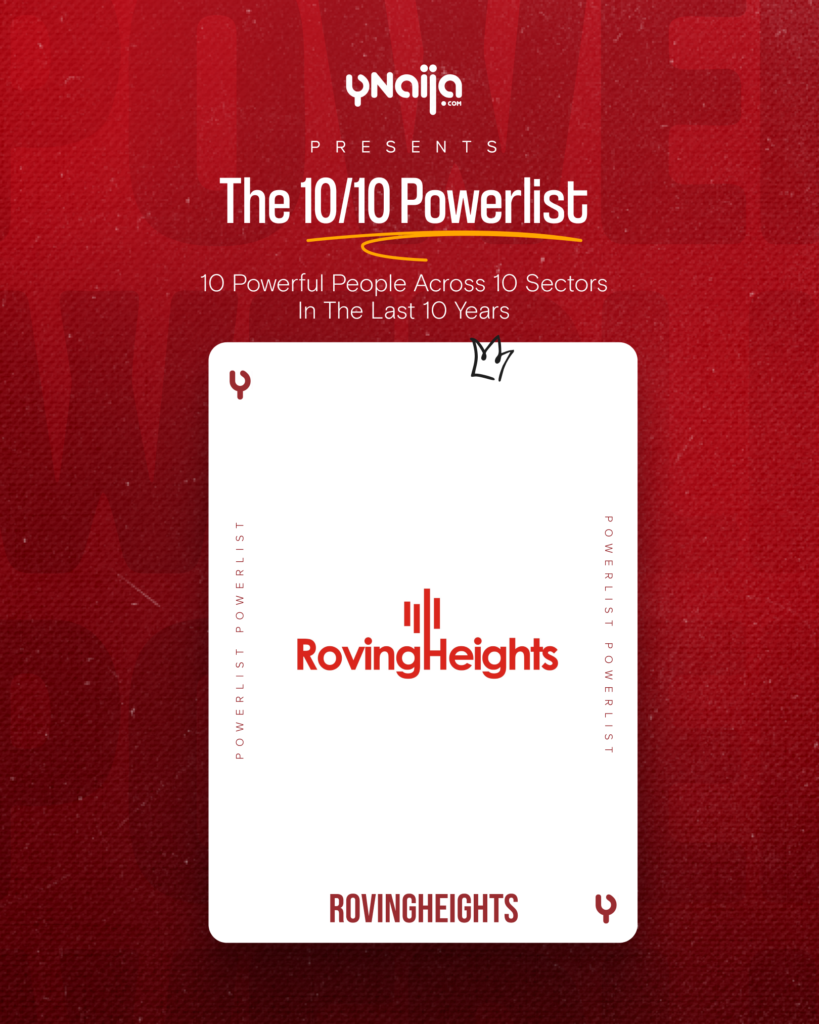
Rovingheights: Cofounded by the trio of Adedotun Eyinade, Oluwatobi Eyinade and Adebola Eyinade in 2015, what started from the dining room of their home has grown into one of the most recognizable bookstores in the country. In a country where access to books is often a hassle, they’ve managed to fill that important space for book lovers. With curated literary experiences and vibrant marketing campaigns, Rovingheights continues to champion the importance of a book reaching its reader.
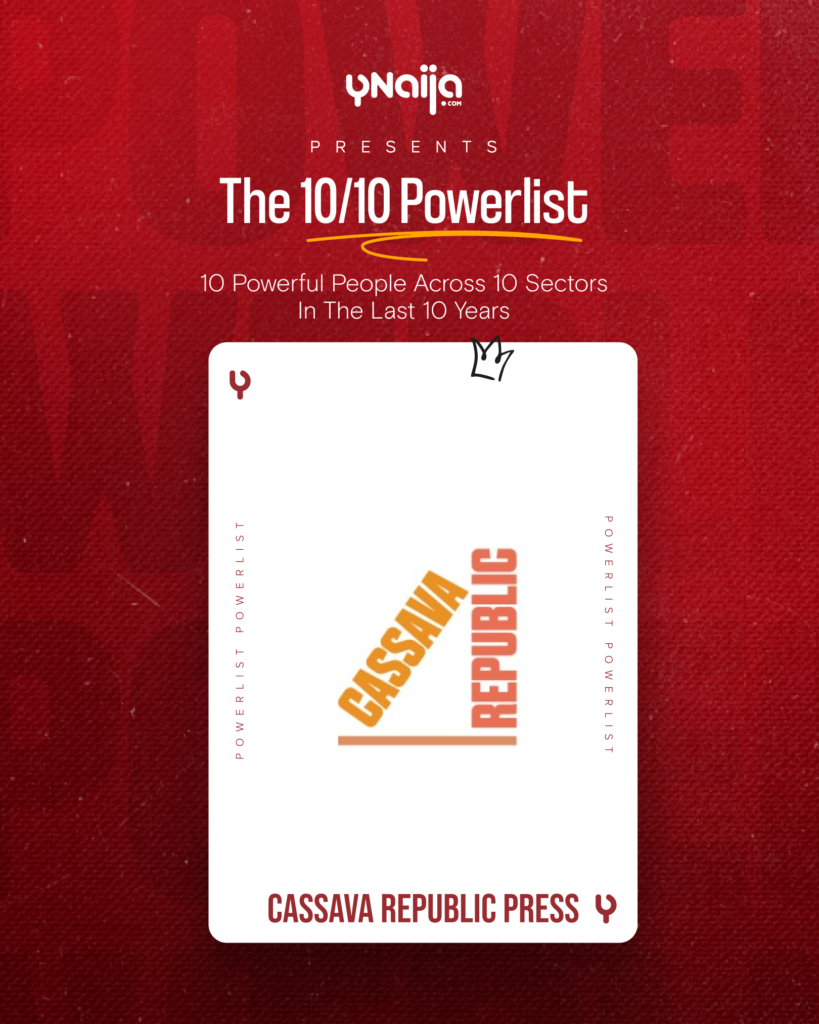
Cassava Republic Press: Established in 2006 by Bibi Bakare-Yusuf, Cassava Republic Press has consistently brought affordable books to readers in the country. Their acquisitions aim to bridge the gap between African writers celebrated abroad and their readers at home. In 2016 and 2017, they launched in the United Kingdom and America respectively solidifying their presence in other markets. Authors published by them include Teju Cole, Lola Shoneyin, Elnathan John and Chigozie Obioma. With a reputation for literary fiction and other genres, Cassava has included Nigeria and Africa at large in a space that is often forgetful of their spending power.
Fashion
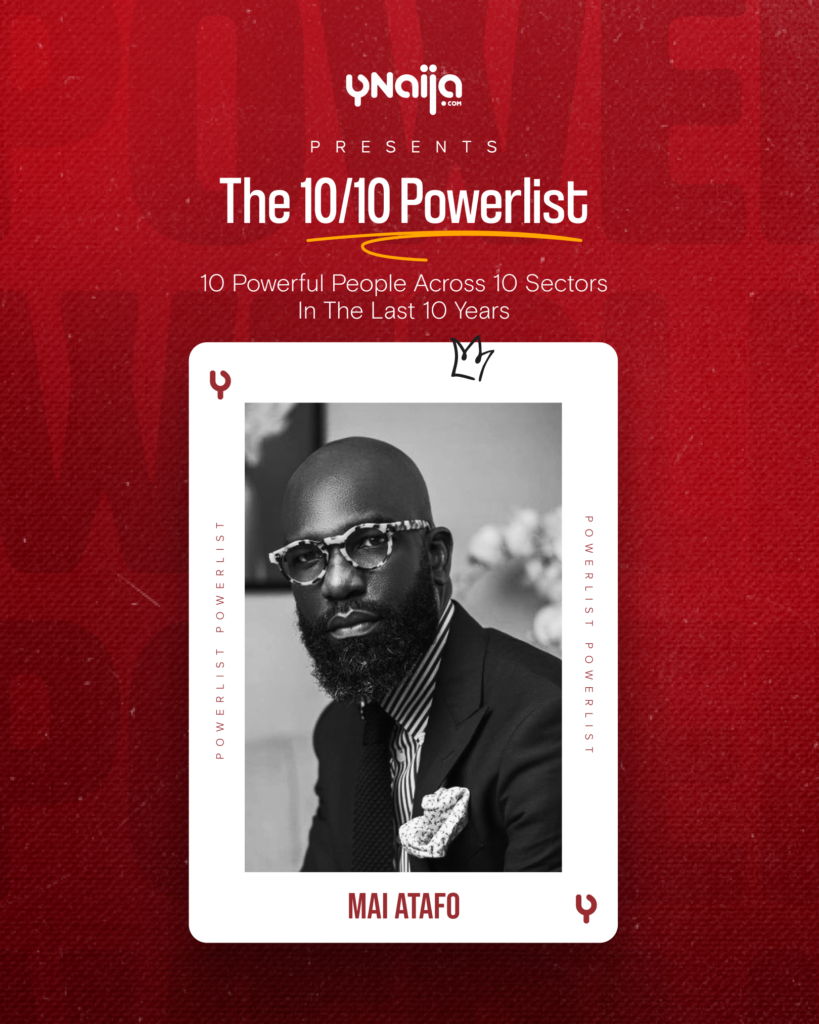
Mai Atafo: Since launching his eponymous fashion brand in 2011, Atafo has been a staple dresser of some of the most famous people home and abroad. Set apart by his impeccable finishing and suave style, Atafo has created bridal, menswear and womenswear collections dressing celebrities like Ebuka, Mo Abudu, Banky W and Yemi Alade. You wouldn’t find a red carpet these days without an Atafo piece on it and he’s not going anywhere anytime soon.

Deola Sagoe: Every woman wants a Deola Sagoe piece, they want to be adorned with her expertise and style which is proof of her talent since she started designing in 1988. Her innovative designs and expert knowledge of fabrics is often mimicked in subpar ways and that genuine essence is always lost. Becoming the first Nigerian to present a stand alone show at the New York Fashion Week in 2014 and then going on to win an African Magic Viewers Choice Award for best costume designer for her work on Kunle Afolayan’s October 1, Sagoe has shown us her versatility is what keeps us coming back to her showroom for more.
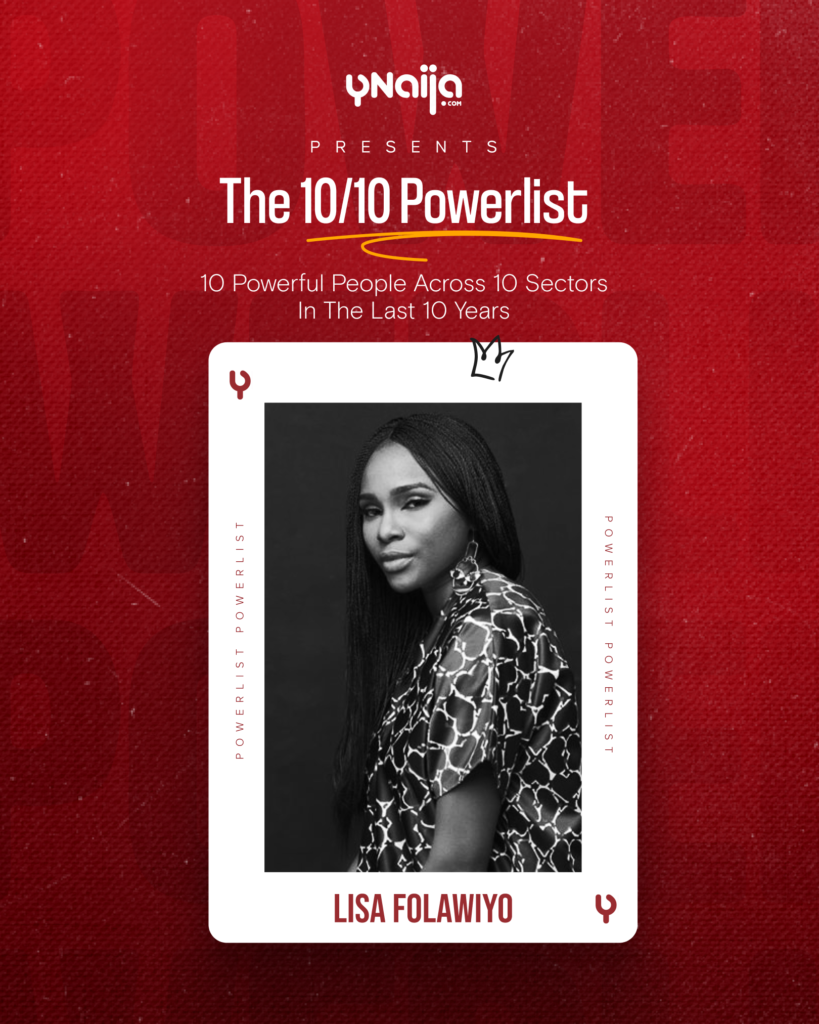
Lisa Folawiyo: Dedicated to intricate hand-crafted design and embellishments that fuse traditional fabric with modern tailoring, Lisa Folawiyo has been shaking up the scene since starting her label in 2005. With collections shown in Lagos, London, Milan, Paris, New York, etc and features in publications like Vogue and the New York Times there is an appetite for the work she does. Dressing celebrities like Beyoncé and Tandie Newton and passing on her knowledge through collaborations and training classes, Folawiyo is going to continue to paint the scene with her colourful pieces.
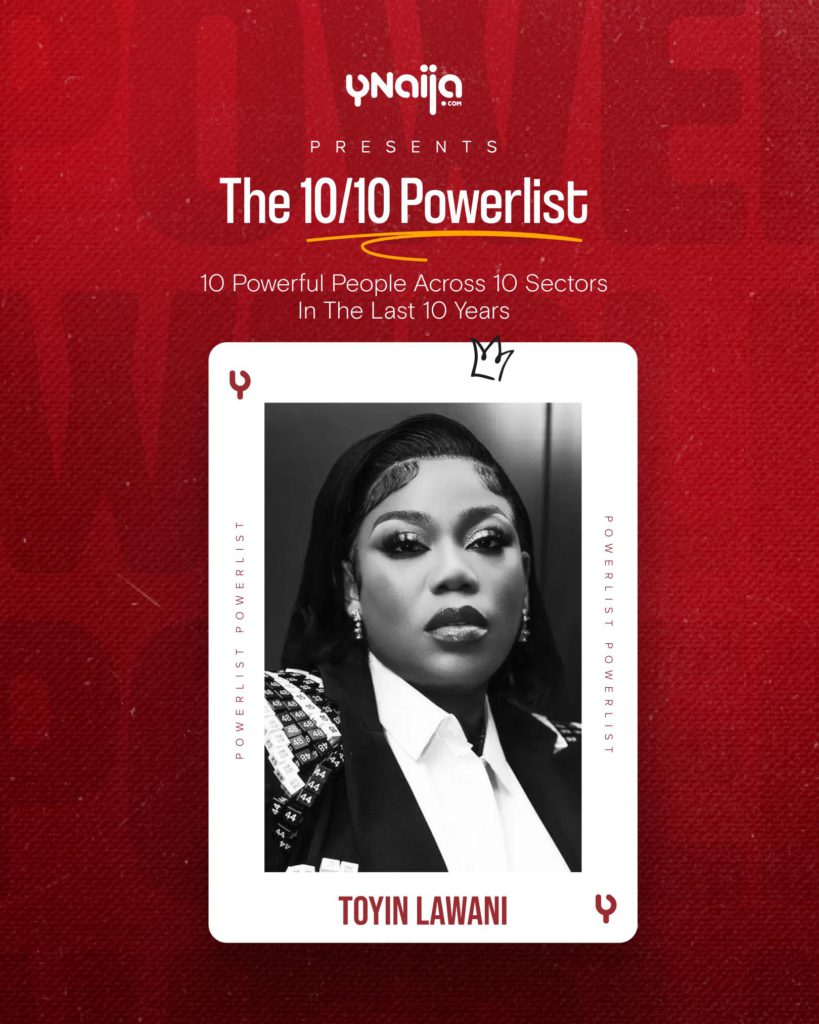
Toyin Lawani: Few red carpet looks go viral on the Nigerian internet space without a mention of Tiannah’s Empire. Popular for her eccentric looks and unconventional approach to fabric and style, Toyin’s first splash was her collection at African Fashion Week London in 2013 and since then she has gone on to style and dress her way to the top. Her domination continued into film and television as she starred in her own reality show and also on the Real Housewives of Lagos as well as serving as the costume designer on King of Boys: The Return of the King and Shanty Town.
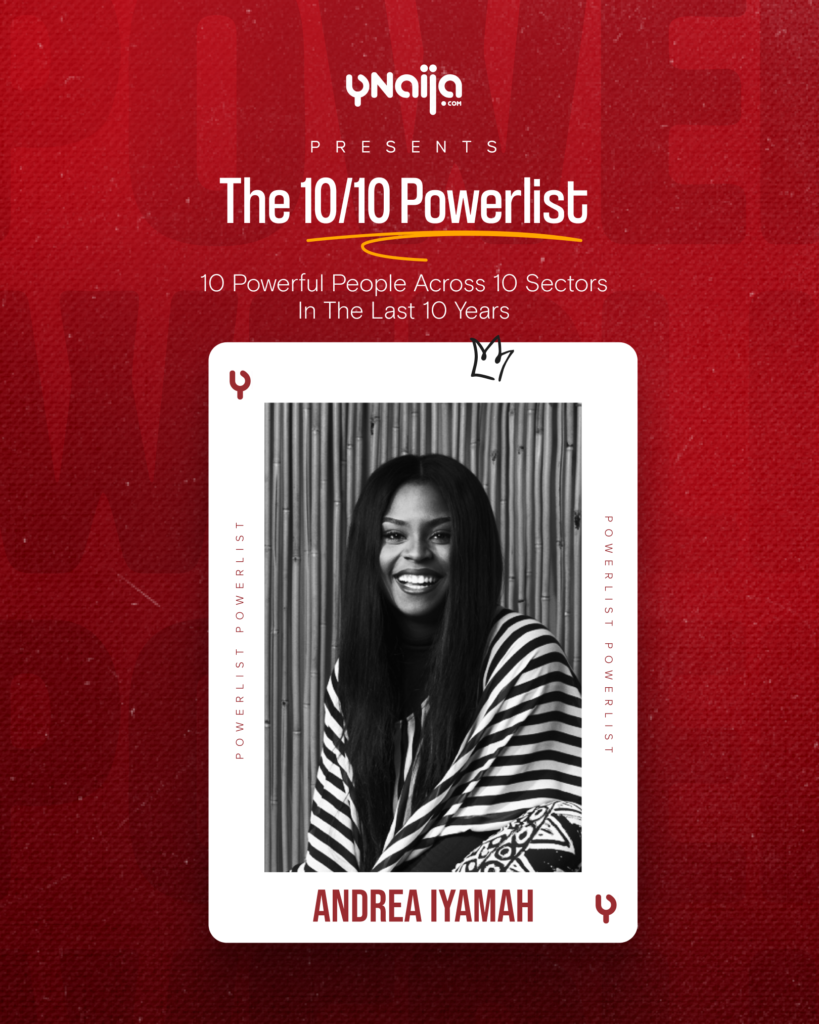
Andrea Iyamah: For the last decade, Andrea Iyamah has risen to great heights in fashion circles and it’s all due to her incredible talent and work as a designer. With clothes that take inspiration from nature and the boldness of women, she has constantly gained recognition with features in Vogue and Forbes and more and dressing stars like Michelle Obama, Kate Hudson and Gabrielle Union. Popularly known for her unique swimwear style, rich colours and elegant tailoring, Andrea Iyamah continues to take the world by storm.
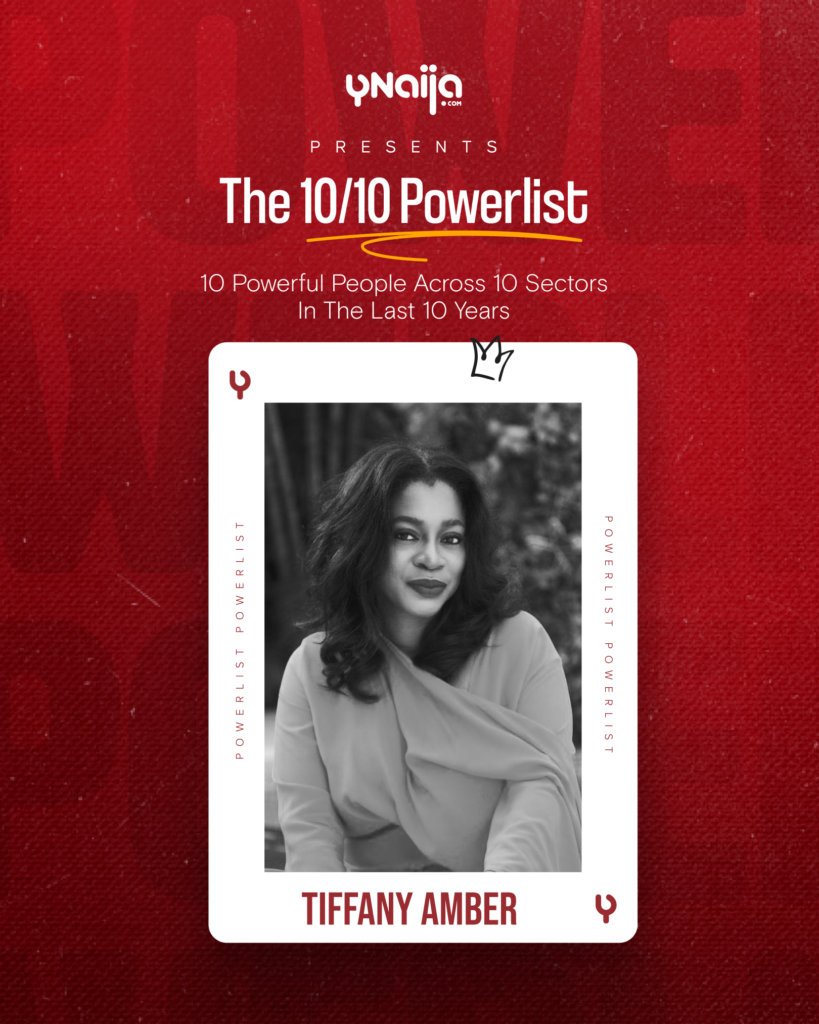
Tiffany Amber: Founded by Folake Coker in 1998, Tiffany Amber has taken space both home and abroad with its sophisticated and chic style. The first African based designer brand to showcase at the New York Fashion Week twice in a row, Tiffany Amber has broadened its creative borders by introducing a diffusion and couture line and Folake also launched a home line under the same umbrella competing the brand’s existence as a full lifestyle outfit.
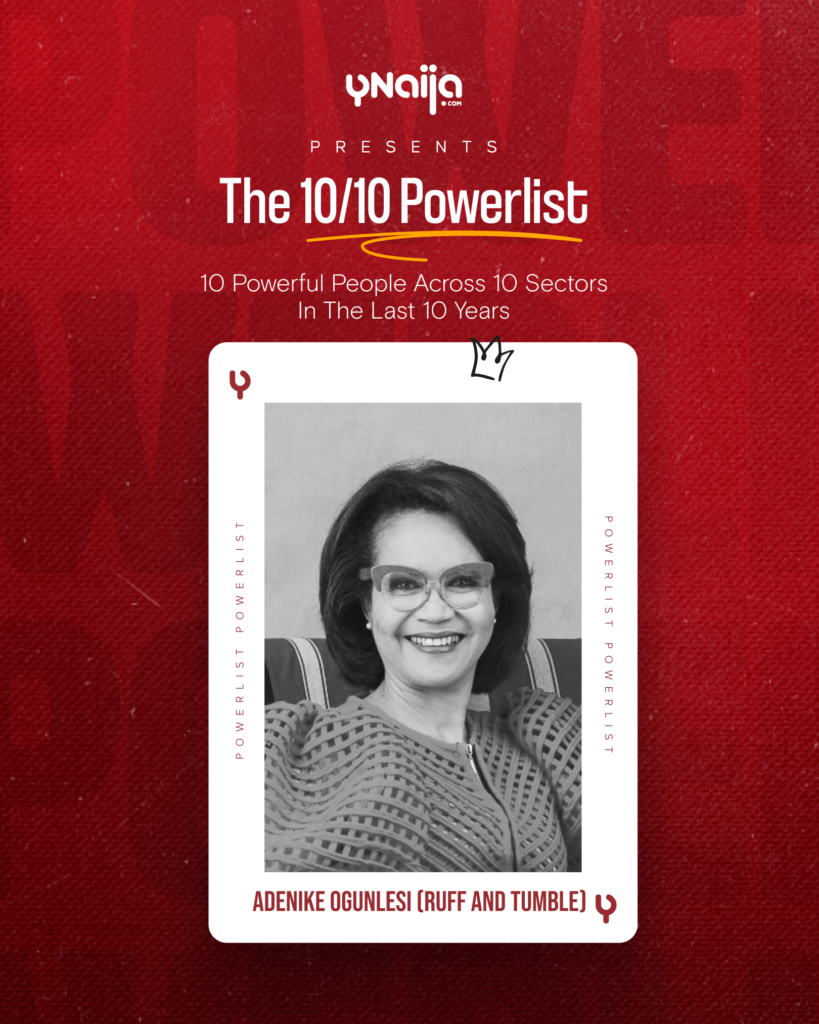
Adenike Ogunlesi (Ruff and Tumble): Nigerian fashion brands that focus on the needs of the young are few and far between but Ruff ‘n’ Tumble has held that space for a long time now. Founded by Adenike Ogunlesi in 1996 because she wanted great clothes for her children. With attire focused solely on children to 16 year olds, she designs clothes influenced by the richness and high energy of our culture that fill the 16 walk-in stores around the country.
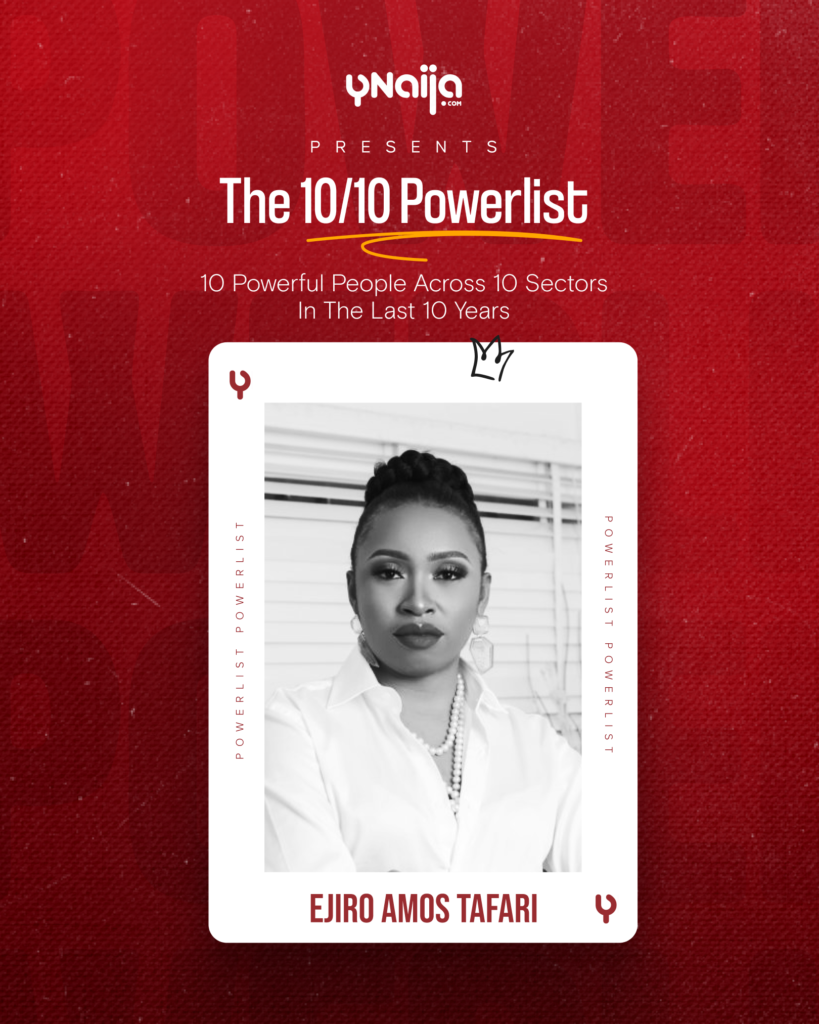
Ejiro Amos Tafari: Starting her eponymous brand in 2010, EAT created a ready to wear line that reflected the modernity, freedom and spark that Nigerian women were leaning into during that period. With designs that experiment with fabric and form, Ejiro has taken her clothes to Nigerian women around the world, trained upcoming designers and won awards and recognition over the years. EAT consistently drapes women in the best and there’s no shortage of clients.
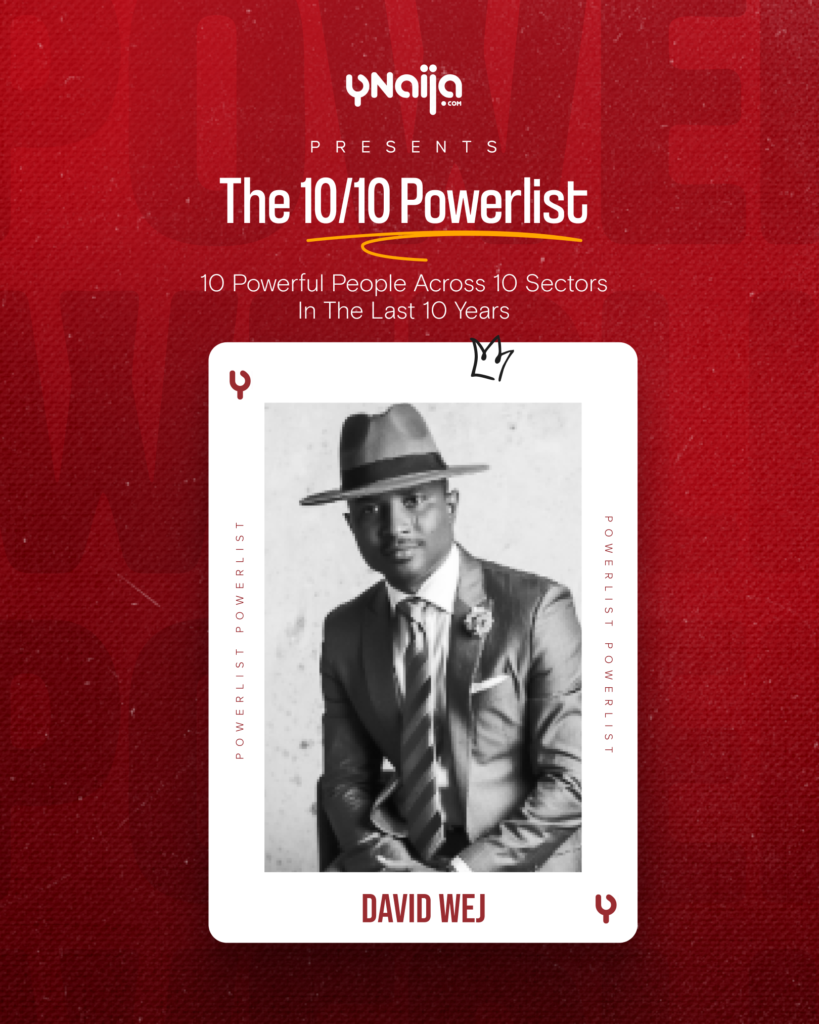
David Wej: Adedayo David Eweje established his brand in 2008 in Lagos and has found success with his clothes and accessories, a rarity in fashion. With outlets in Nigeria and internationally, his attention to details make him a draw for many men that gravitate towards the quiet luxury of perfection. Dressing people like Don Jazzy, Ebuka and a host of pastors, Wes’s dedication to craftsmanship and fabric quality keeps the elite coming to his stores.

Yomi Casual: Coming onto the scene in 2007, Yomi Casual has seen a steady rise into the higher circles of society. With clothes focused on the popular styles of Nigerian men but with a focus on fabric and subtle artistic expressions. With a clientele that includes Bovi, Seyi Law, Ramsey Nouah and others, Yomi continues to create work that resonates with the taste of many men.
Photography

TY Bello: A major figure capturing moments and portraits, TY Bello has been in the photography industry for years serving as the official photographer for former President Goodluck Jonathan, working for Thisday fashion magazine, and discovering talent with her lens. Armed with a distinct style of portrait photography and an elite clientele, TY Bello remains the one to gain inspiration from in the photography world.

Kelechi Amadi-Obi: With a photography career spanning many years, Amadi-Obi’s background in painting gives his photography such a unique edge that plays with lighting and beauty. Launching Mania, a fashion magazine, in 2010 and then has gone on to capture portraits of the people and places around the country. Documenting his work on YouTube and constantly sharing artistic knowledge through classes and lectures, he remains a major influence in the field of photography in the country.
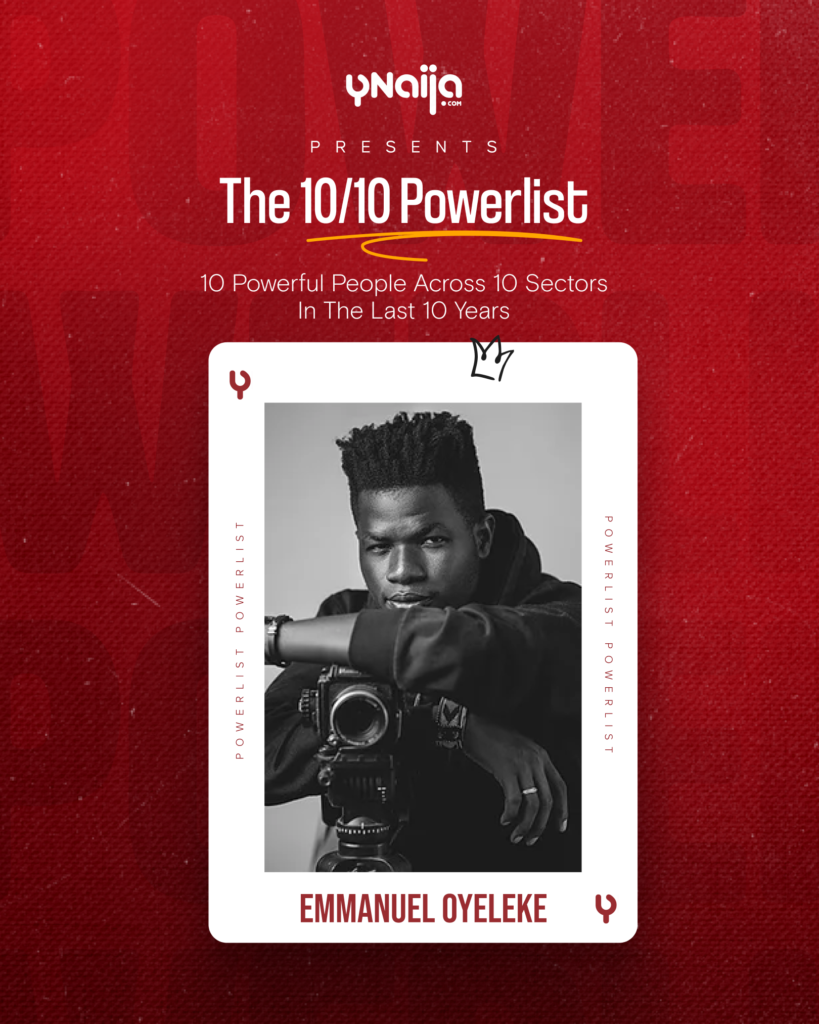
Emmanuel Oyeleke: Founder and creative director of Zen Studios and creative director of the eponymous photography studio, Oyeleke wears multiple hats in the photography world. A canon ambassador and award-winning photographer, his portfolio spans editorials for some of the most popular designer brands in the country to work for companies like Coca-Cola and Samsung and collaborations with Tecno Mobile and UNICEF. Oyeleke takes on photography in its many facets and excels at all of them.
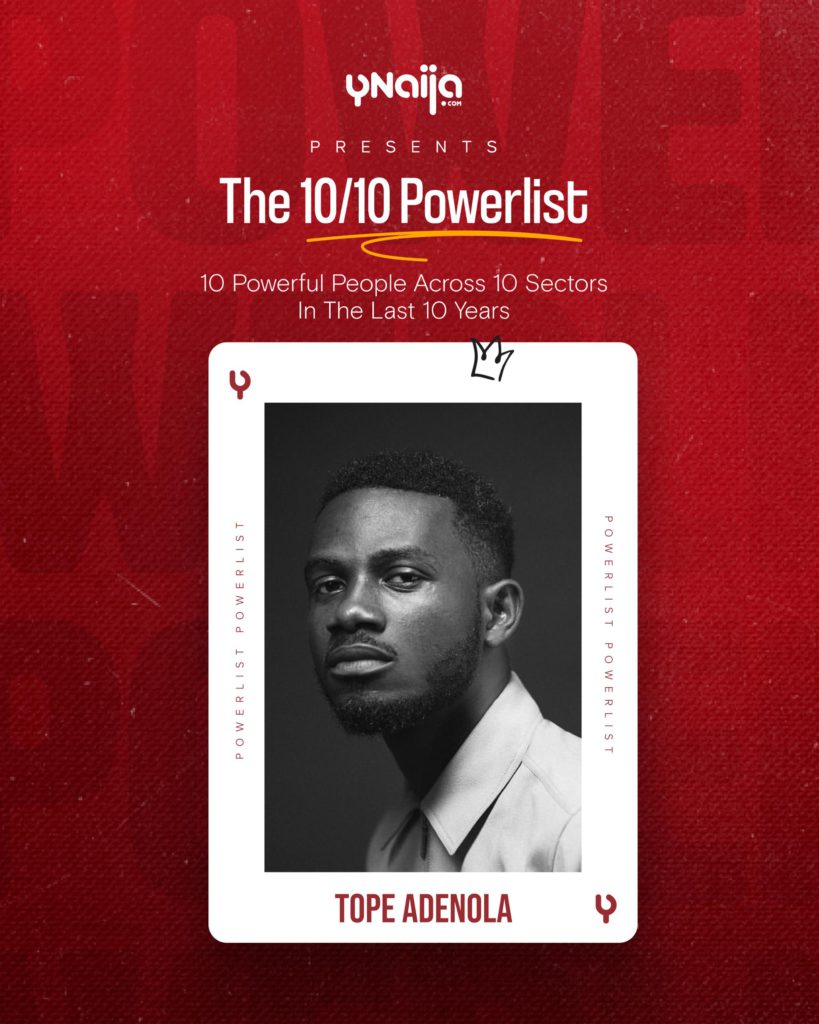
Tope Adenola: A multimedia photographer whose signature portrait style has brought him high level success. Starting with a career in graphic design and flourishing into photography that captures personhood in the most creative lighting, Tope has helmed some of the most successful campaigns for clients like Shuttlers, Budweiser, Interswitch and Dangote.
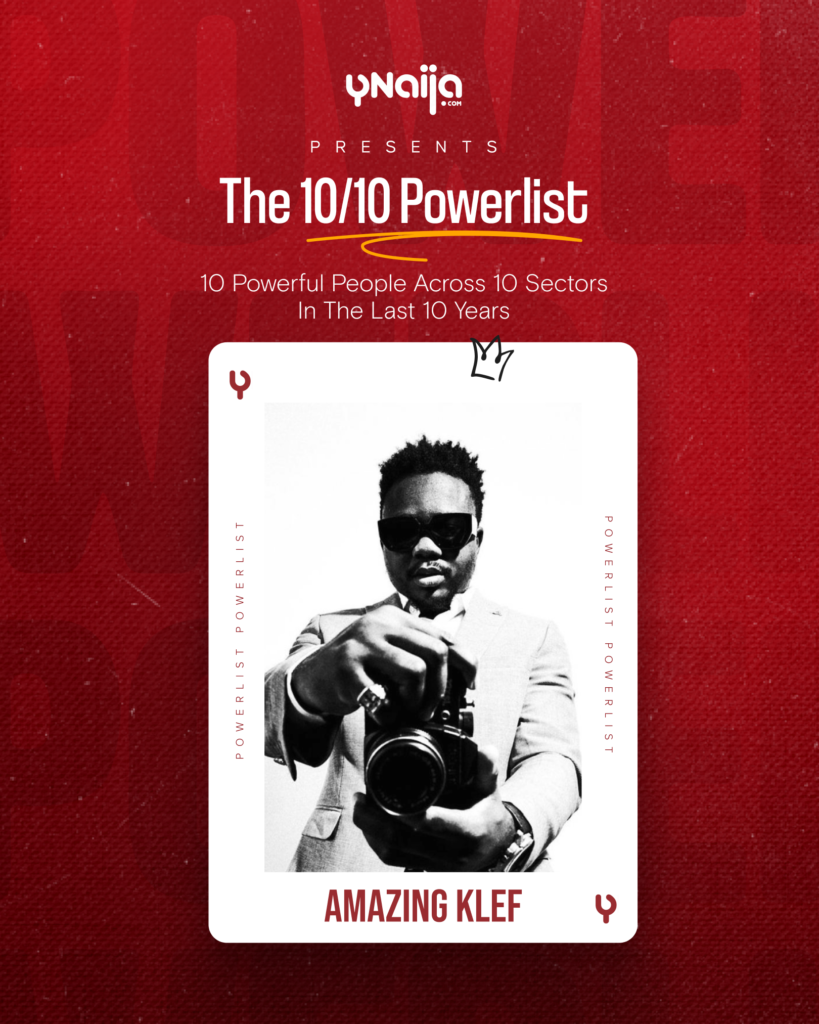
Amazing Klef: Bringing a youthful colourful vibrance to his work, Amazing Klef (born Okwuchukwu Martins Dominic) has worked with some of the biggest people and brands in the country. His playful style has landed him in collaboration with BBC news, Mavin Records, 2face, and DJ Khaled. He has also given back to his community by signing and developing young photographers under the Aktivated Creative Label providing them with resources and tools to launch their careers.

Bayo Omoboriowo: Capturing pivotal moments in political history is a privilege reserved to a few and Bayo’s work as the official photographer of former president Muhammadu Buhari. The past ten years has been defined by his lens, with many images giving life and evidence to Buhari’s presidency. Photographing the campaigns of Kayode Fayemi and Rauf Aregbesola before being appointed by Buhari in 2015, Omoboriowo has found success since then even being conferred the National Honour of a member of the Order of the Federal Republic by his former boss in 2023.
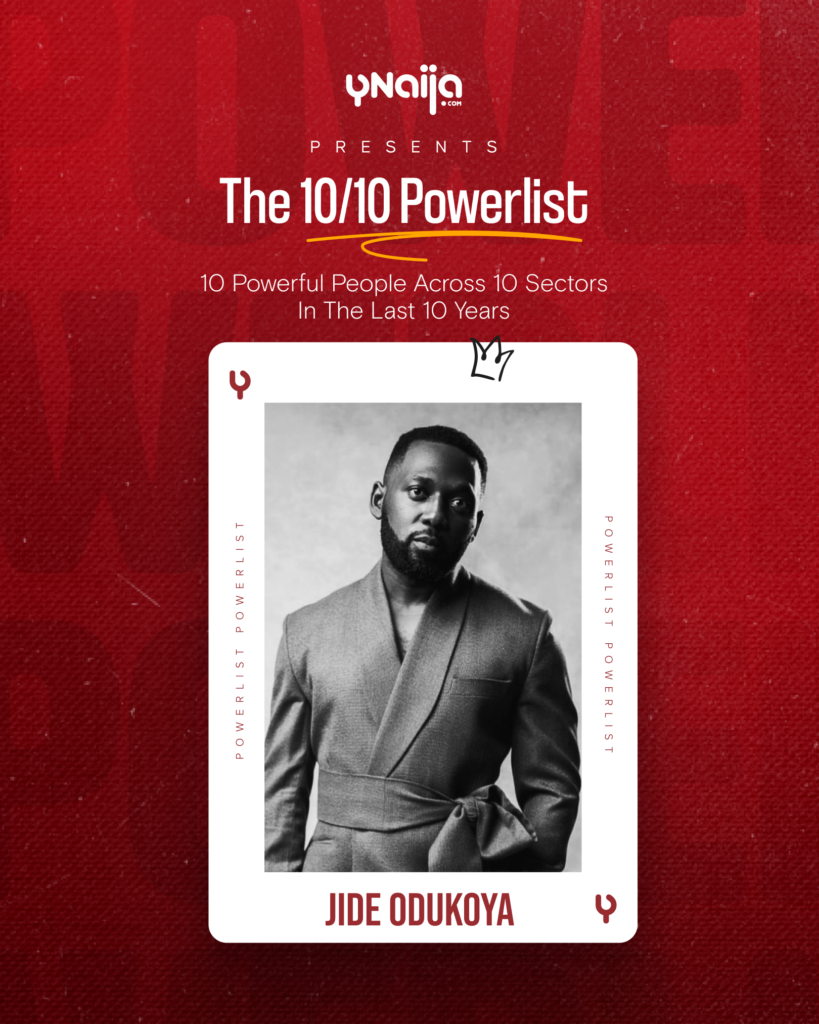
Jide Odukoya: A versatile photographer with work spanning two countries, Odukoya has segmented his work in ways that have allowed him achieve peak expression in different formats. Moving his business to Canada has helped him achieve crossover appeal with his striking colours, special angles and ability to capture the emotional core of every moment. Heading the JOP outfit and travelling around the world, Jide Odukoya is taking over one wedding at a time.
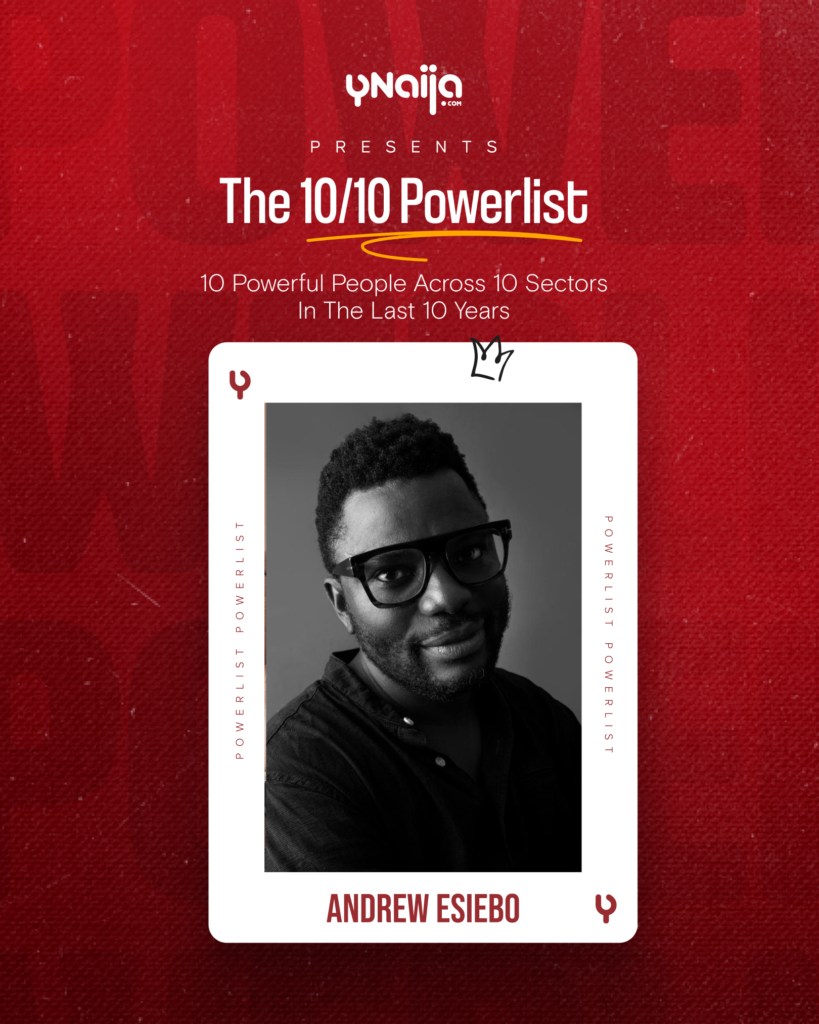
Andrew Esiebo: A lens is rarely apolitical and Andrew’s work with a focus on many social issues is proof of that. His photography has been exhibited around the world in various art events like the São Paulo Biennial, the Dakart Biennial and the Photoquai Biennial. His work extends beyond exhibitions to serving on the jury of some of the world’s highest level photography competitions like the World Press Photo Contest and the National Geographic Portfolio. A style that leans towards documentary, Esiebo has continued to capture core issues in the country and show them around the world.
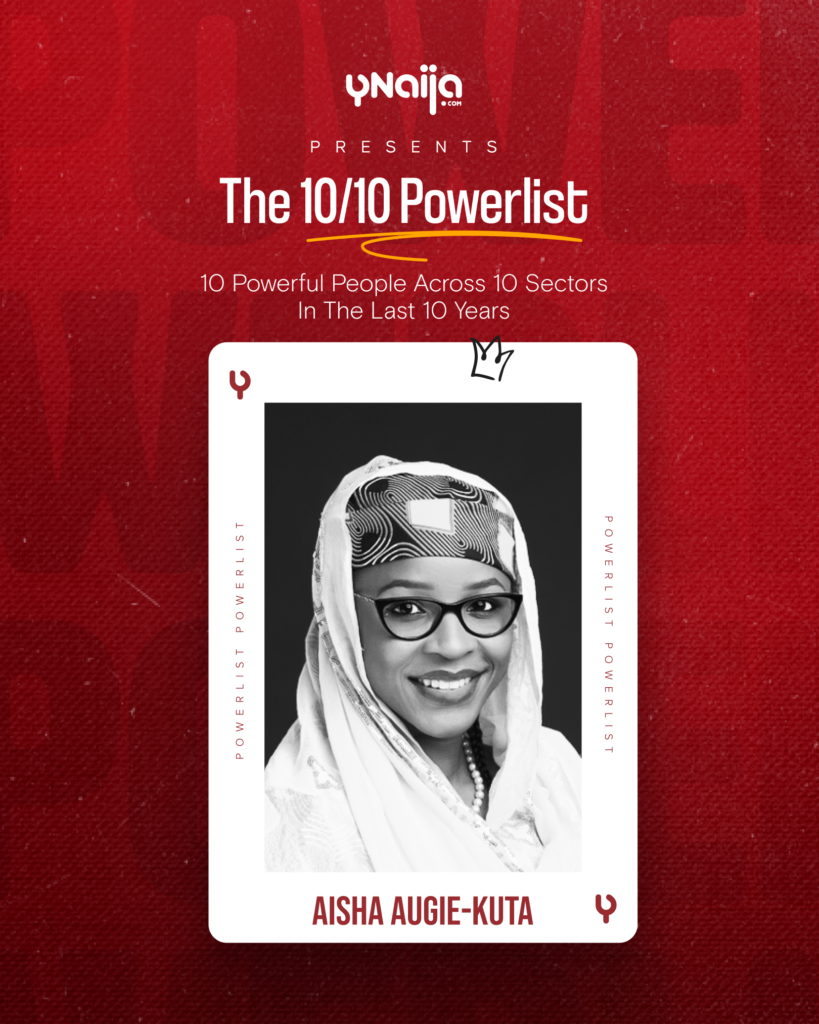
Aisha Augie-Kuta: Augie-Kuta has dedicated a lot of her career to documenting women in many ways and this has brought her recognition both home and abroad. Receiving a camera from her father at a young age she has gone on to curate an exhibition at the Chelsea College of Arts, London and founded Photowagon, a Nigerian photography collective. She has used this recognition to shine a light on the plights of girls and young women in Nigeria, showing that a lens can go beyond just photography.
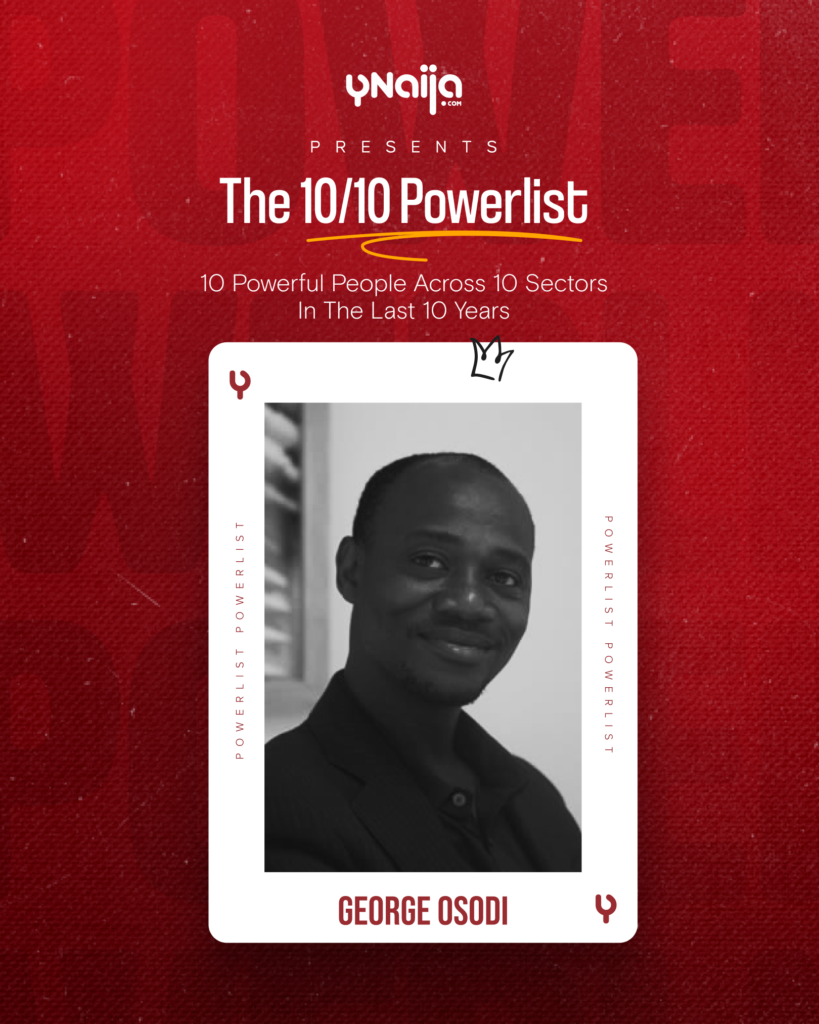
George Osodi: Starting a career at Comet newspaper in Lagos and then moving on to the Associated Press Agency, his work swings between photojournalism and artistic documentation of contemporary Nigerian issues. Winning the Fuji Africa Photojournalist of the Year award in 2004 and getting shortlisted for the Sony World Photography Award, Osodi has exhibited around the world and his moving work documenting the impact of oil extraction in the Niger Delta shows that at his core, his care for the country shows through his lens.
Politics

Peter Obi: The name Peter Obi has existed in Nigerian political circles since he became governor of Anambra state in 2006, got impeached and then got reinstated. It was a testament to the fighting spirit of the man, a trait his dedicated supporters known as Obidients took from him as he contested in the last presidential election. Known for his strong economic principles, refusal to participate in the corruption rife in Nigerian politics, and vocal support of accountability, Obi’s stint as governor put him in national conversations as the best president we might ever have.
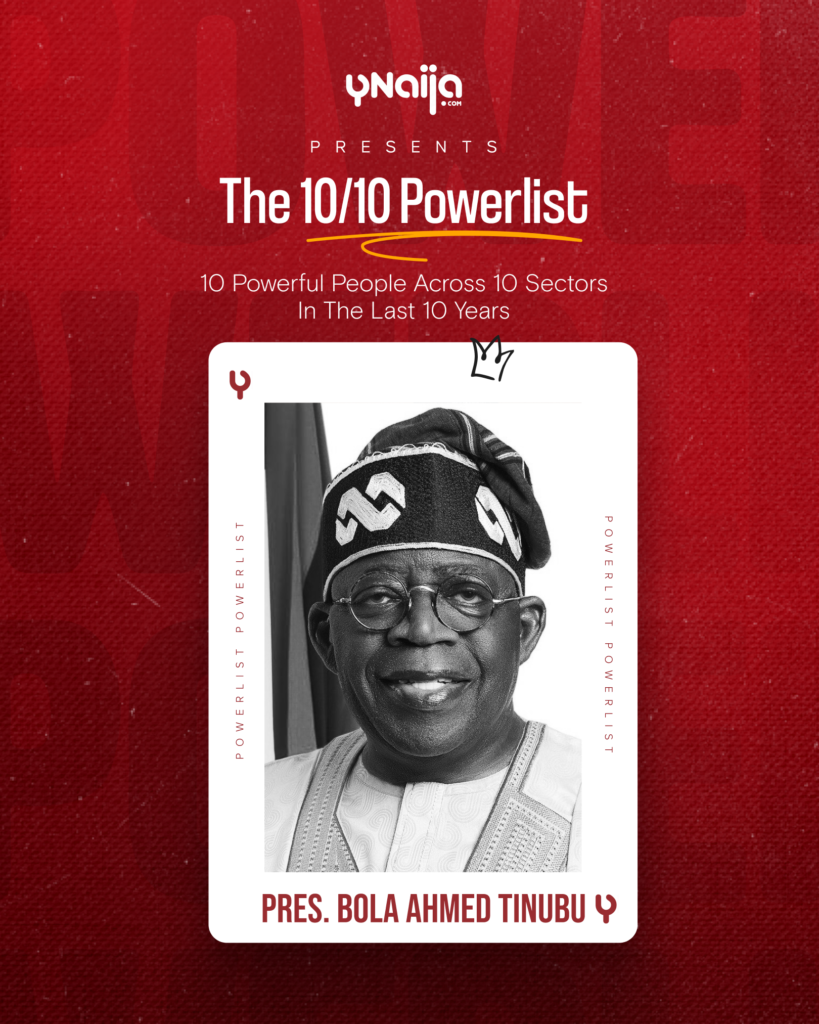
Bola Ahmed Tinubu: Nigeria’s current president is an often mysterious figure. A major political player since his two terms as governor of Lagos state, his key role in the formation of the All Progressives Congress in 2013 changed the political landscape of Nigeria. Since then he has backed the collection of power from the once-dominant People’s Democratic Party which has culminated in him becoming president last year. Mired in controversy and accusations of corruption and violence, Tinubu has proven that a rise to power in a country like Nigeria is a calculated long game.
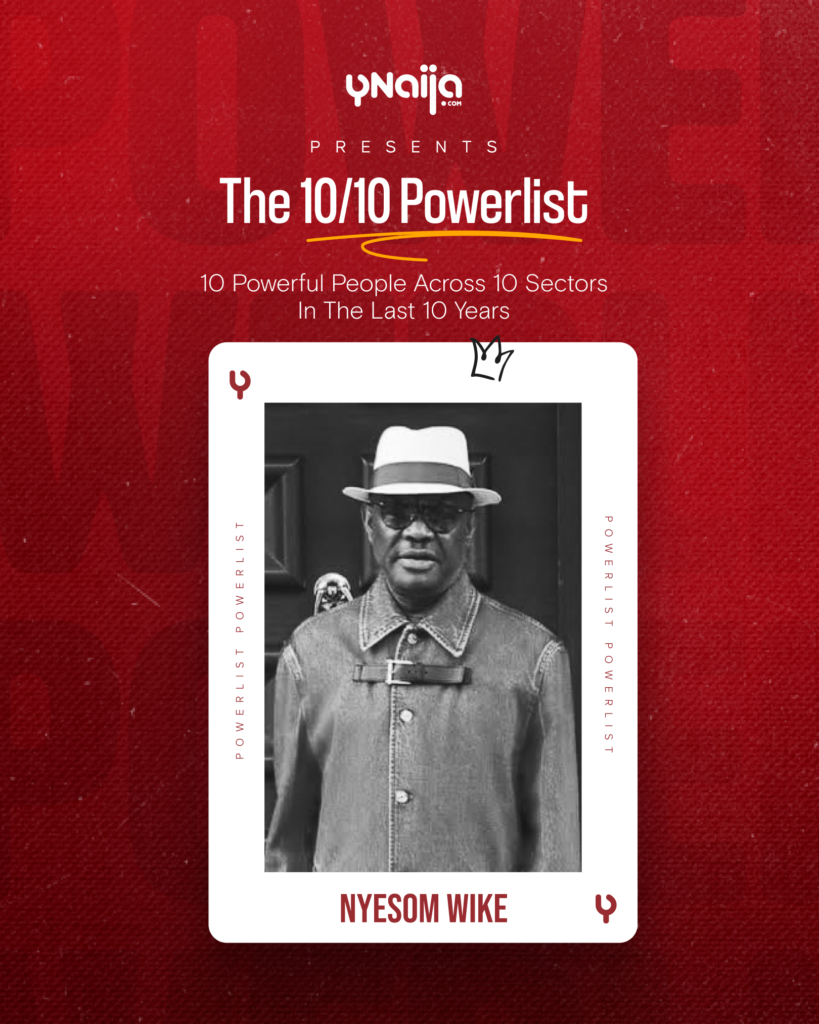
Nyesom Wike: Some governors chose to stay within the confines of their state, executing their duties during their term and moving on but not all governors are Nyesom Wike. Throughout his tenure as governor from 2015 to 2023, Wike always found ways to be a major player in national conversations. His signature brash style of speeches has made him a source of memorable sound bites and his infrastructure building in the state allows him to boast of being a good governor. He remains a member of the People’s Democratic Party, even contesting in the presidential primaries and coming second but his loyalties seemingly lie with the All Progressives Congress where he has found an appointment as the Minister of the FCT. This ability to straddle both parties to his advantage has kept him relevant over the years.
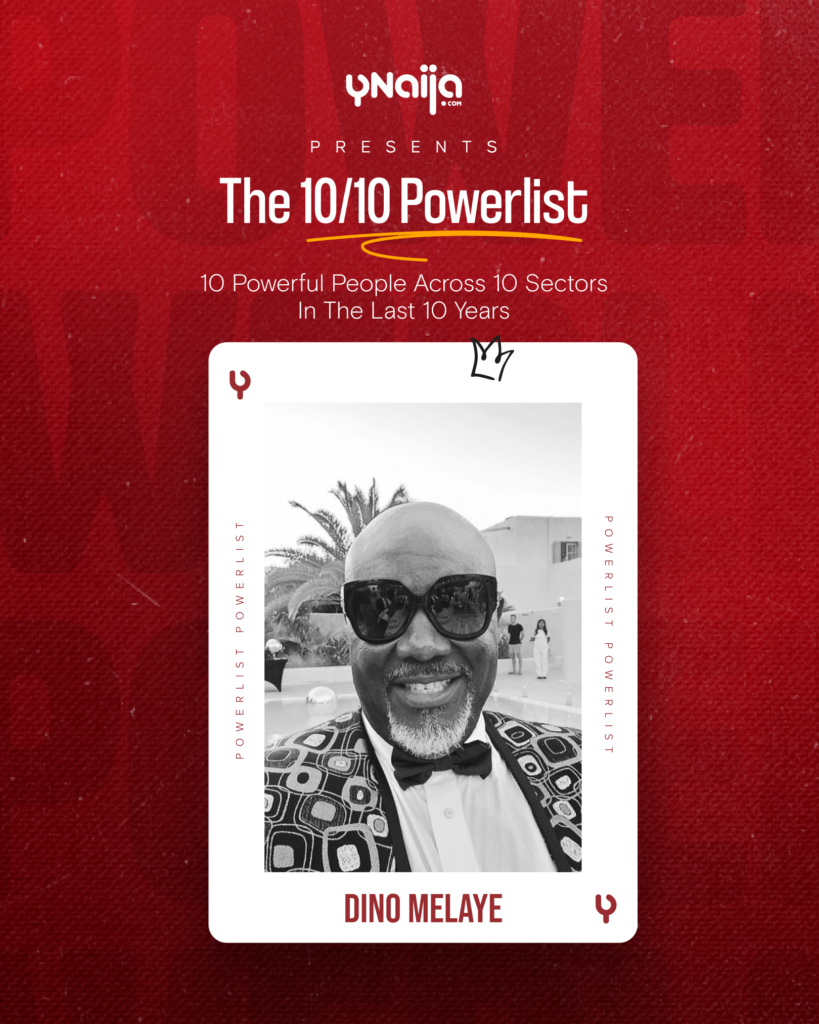
Dino Melaye: For a man that has not held political office since 2019, Dino has not been an absence in the political conversations of the past decade. A senator representing Kogi West senatorial district from 2015 to 2019, Dino constantly makes his presence known in dramatic fashion. Supporting Senator Bukola Saraki’s rise to senate presidency, sponsoring about twenty bills and courting controversy concerning his financial dealings, Dino keeps his name in the news cycle one way or another.

Atiku Abubakar: The path from vice presidency to the presidency is one long, complicated single step and there’s no better person to prove it than Atiku Abubakar. A six time unsuccessful presidential run has kept Atiku a political player every four years. Manoeuvring from one party to another to no avail, Atiku is no stranger to the political establishment in the country and maybe one day, he will ascend to the elusive presidential seat.
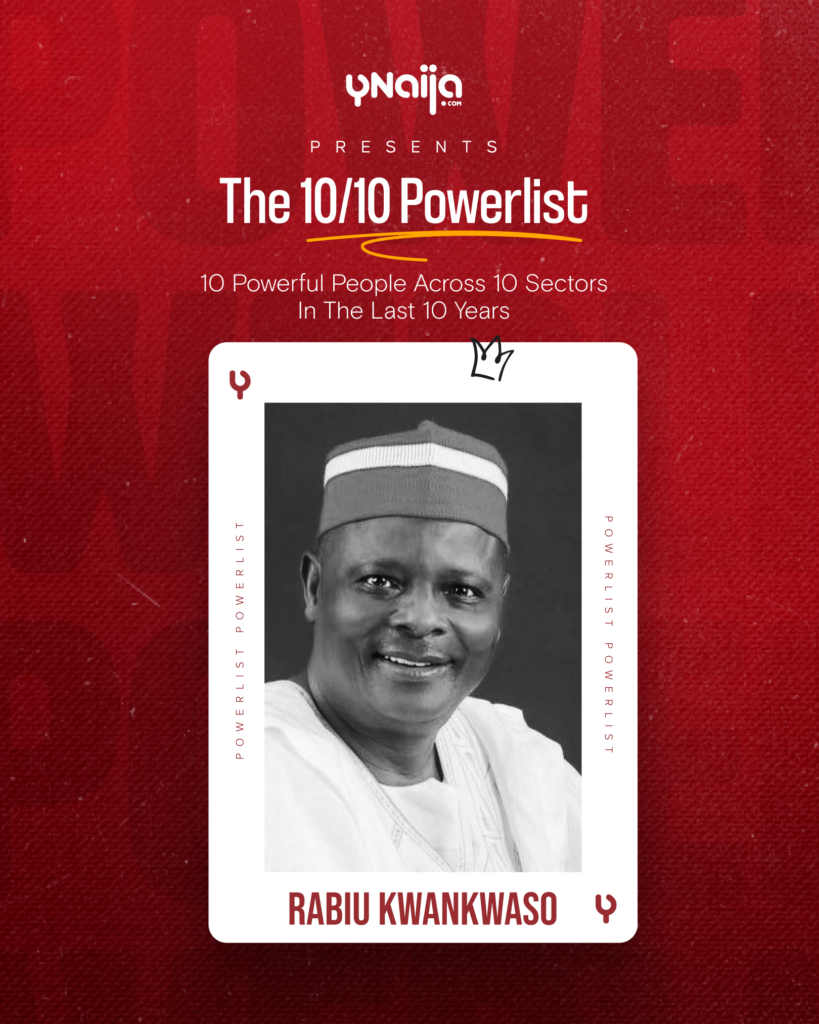
Rabi’u Kwankwaso: A two term governor of Kano State, Kwankwaso holds a fort in the north of Nigeria in such a way that prevents other presidential aspirants from capturing an important voting bloc. One time minister of defence and senator for Kano Central, Kwankwaso enjoys widespread popularity in his state and region and has contested in presidential primaries in PDP and APC before contesting for finally running for presidency under the New Nigeria People’s Party. With achievements in infrastructure and education, his career is not without its controversies but it remains that one cannot take the North from Kwankwaso.
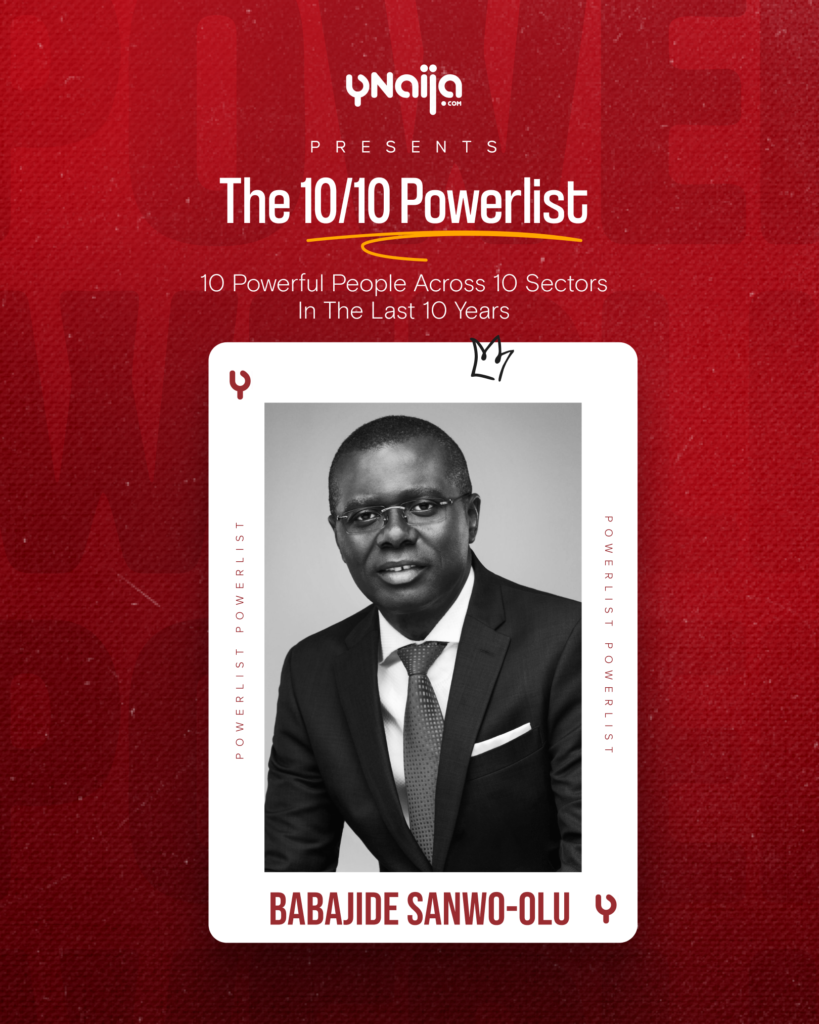
Babajide Sanwo-Olu: Coming into political favour is one thing but maintaining that favour over time is where Sanwo Olu has prevailed. He has worked in the Lagos government since 2003 as a special adviser and rose to governor in 2019. His handling of the state’s affairs has been met with great criticism but his ability to remain steady in power despite major challenges and a tense reelection has defined his political career. With focus on infrastructure improvements and renovation in Lagos state, Sanwo Olu has played a role in Tinubu’s rise to power while keeping his state.
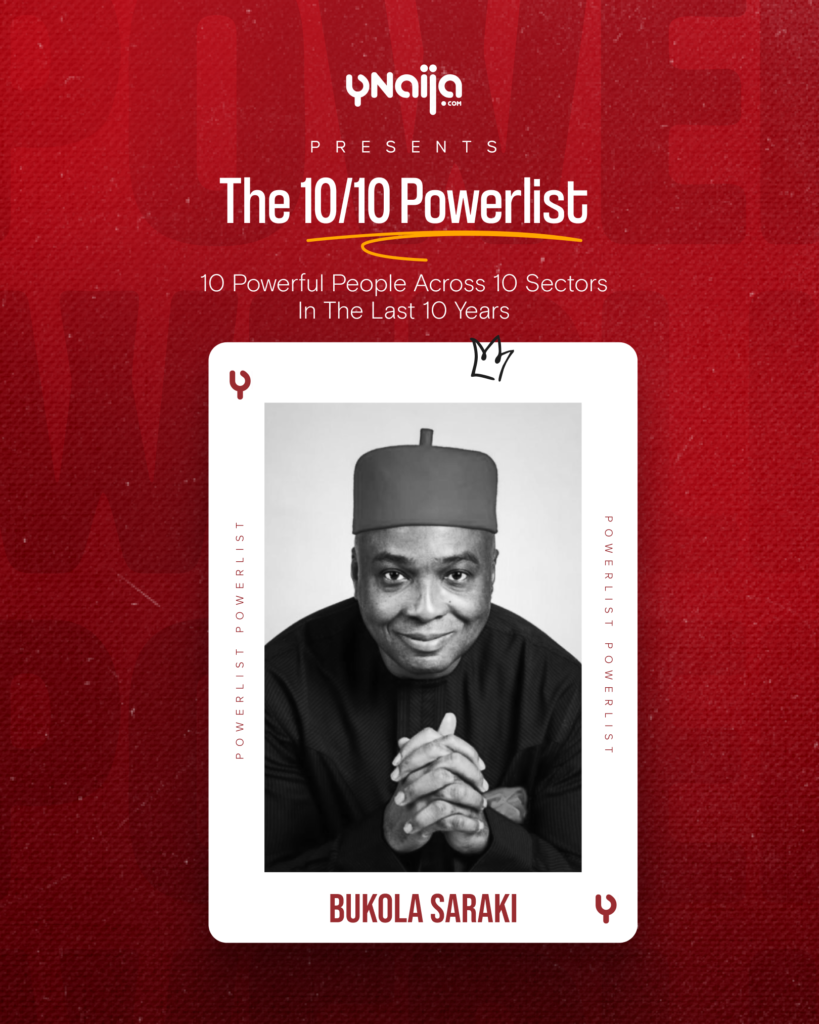
Bukola Saraki: A senator, a governor and a presidential candidate, Bukola Saraki has occupied public office and conversations with aspirations and controversies since his time as governor of Kwara state which ended in 2011. His national influence grew from his time as chairman of the Nigeria Governors Forum, moving him to the senate and then the presidency of said senate. Under his leadership, the senate’s bill passage surpassed all previous senate’s in the nation’s history. His unsuccessful presidential ambitions followed next but landed him in charge of Atiku Abubakar’s campaign. Always in a fight against claims of corruption, Saraki remains one of the important figures in Nigerian politics.
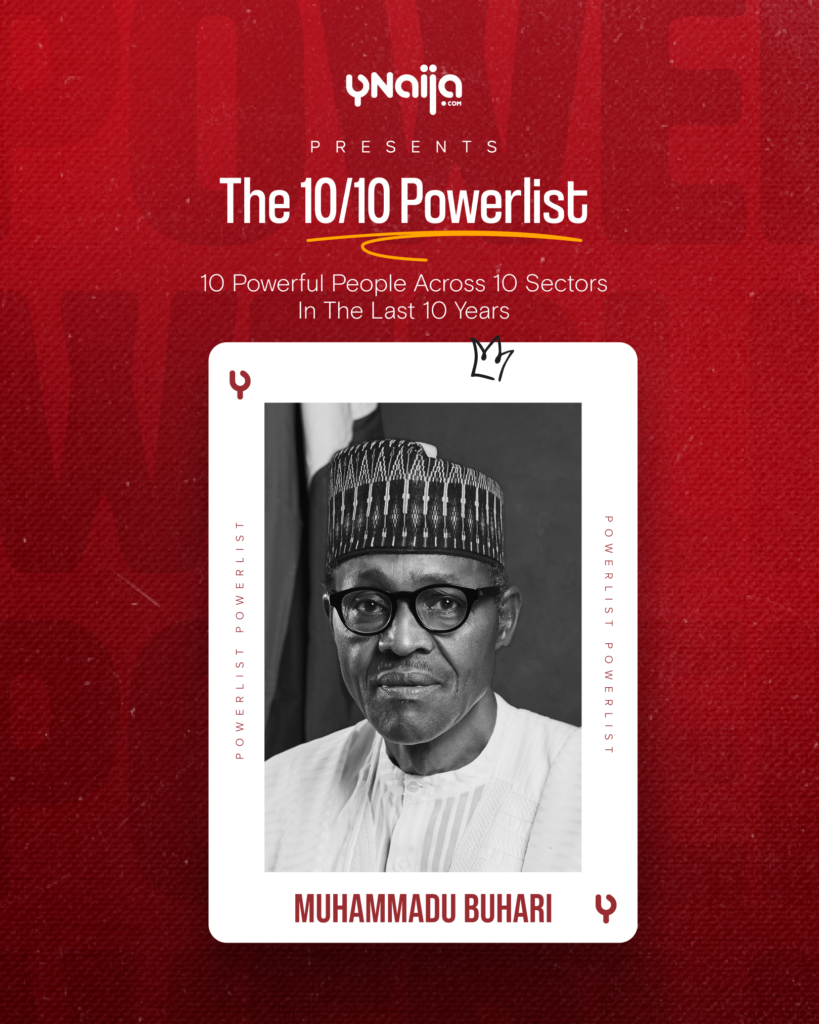
Muhammadu Buhari: A historical presidential campaign and a two term presidency marred by economic crisis, Muhammadu Buhari served as president of Nigeria from 2015 to 2023. A figure in both the military and democratic eras, he built an image as a staunch opponent of corruption which gave him widespread support. He led a government that pushed the limits of our young institutions with questionable decisions and policies and since the end of his administration, one cannot speak of the state of the country without his name coming up.
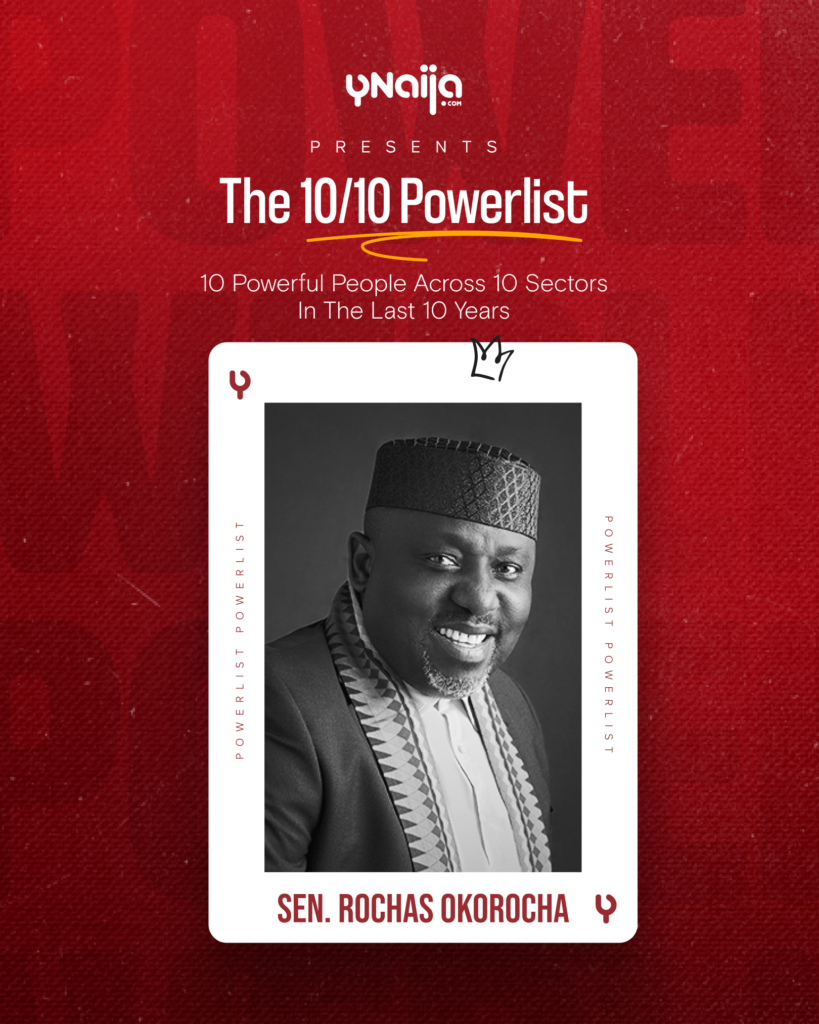
Rochas Okorocha: A figure in politics since the restoration of democracy in 1999, Okorocha has switched political parties countless times staying true to the Nigerian politician tradition. Ascending to governor of Imo State in 2011 under the banner of the All Progressives Grand Alliance, he then decamped to the All Progressive Congress in 2013. His career moved away from the government house to the senate when he was elected senator representing Imo west senatorial district in 2019 in an election marred by controversy. A recognizable voice, an influential figure in the east, Rochas seems poised to take another shot at the top job in the nation.
Media (TV stations, blogs, radio)
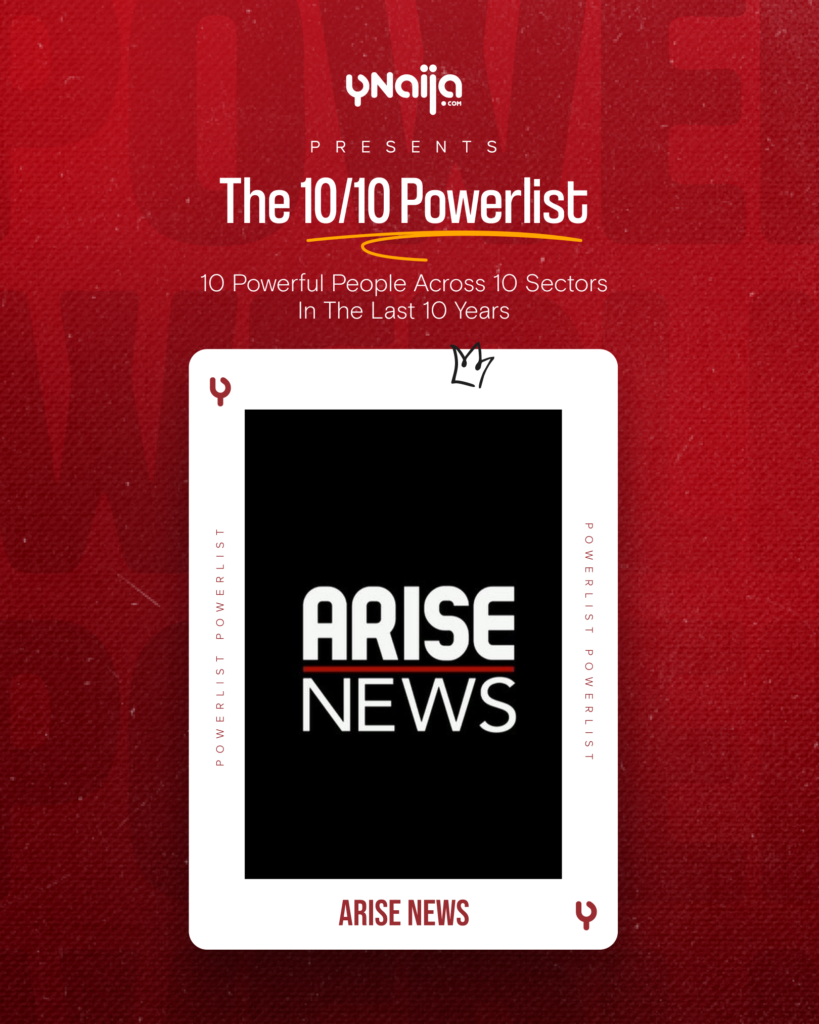
Arise News: Founded in 2013 by Nduka Obaigbena, Arise news has consistently positioned itself as an international news channel with a focus on Africa. With studios in London, New York City, Johannesburg, Abuja and Lagos. With a strong sense of independence and refusal to shy away from the messy political landscape of the country, Arise News has risen to the forefront of news coverage. This was most noticed during the 2020 End SARS protests when the correspondents and reporters covered the events with a refreshing honesty and no evident political tilt. Now they occupy a position at the top of independent TV journalism that other outlets envy.

Linda Ikeji Blog: When you talk or write about blogging in Nigeria, the Linda Ikeji Blog is always at the forefront. With beginnings in 2006, the blog did not shy away from any story, immersing itself in controversy and lawsuits but that only fuelled its popularity. With expansion into online radio broadcasting and even live TV, the blog’s grasp of online content these past years was unparalleled.
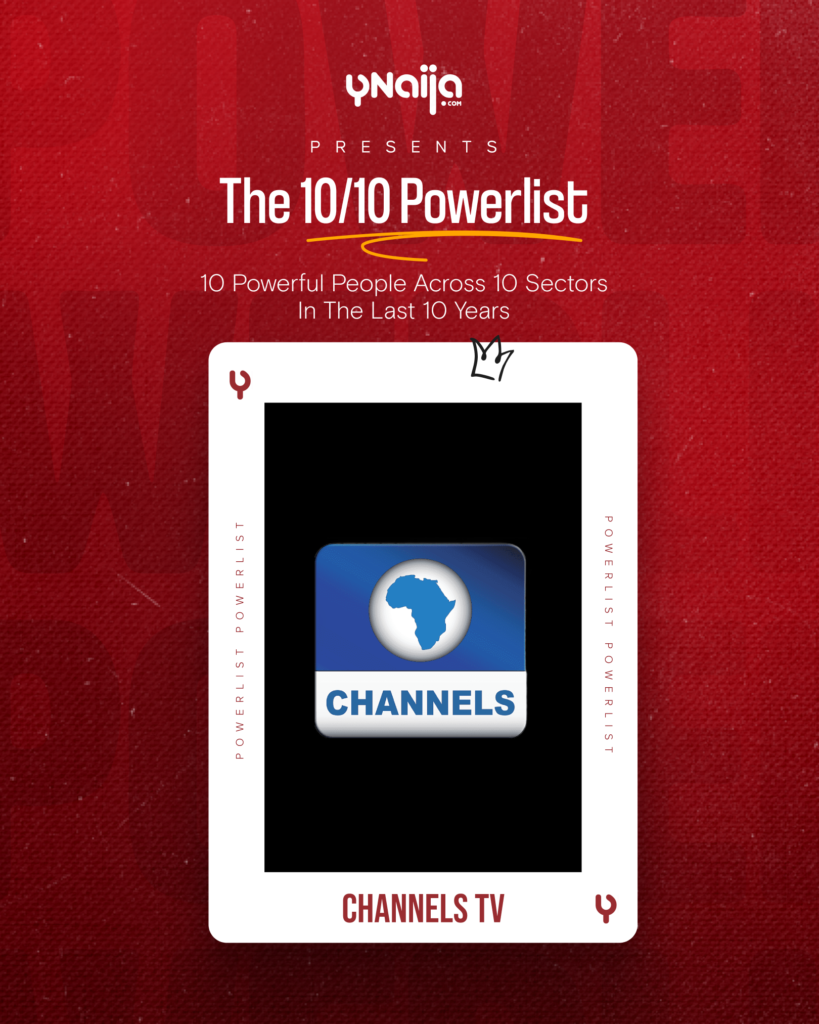
Channels TV: Few outlets have evolved through Nigeria’s independence like Channels. Rarely will you find a household where Channels TV doesn’t play at some point in the day and this reputation is as a result of their stance as a watchdog on government activities. Founded in 1996 by John Momoh and Sola Momoh, Channels has dominated the airways with diverse programming and elaborate news coverage. Sometimes at loggerheads with the government—the 2008 shutdown comes to mind—Channels remains dedicated to its core values and has defined news broadcasting these past ten years.

Bella Naija: Establishing an internet blogpost in Nigeria in 2006 is a move made purely of guts and that’s all Uche Eze seemed to have when she founded BellaNaija. They have become the place for everything entertainment in Nigeria, cementing themselves as leaders in the cultural foundation of the internet era of the country. Their biggest offshoot, Bella Naija weddings was a huge influence on the way Nigerians now document their weddings on the internet with many of them gunning for a feature on the website. Featuring early work of some of the best journalists currently working, BellaNaija has proven itself a home for young writers and aspiring journalists.
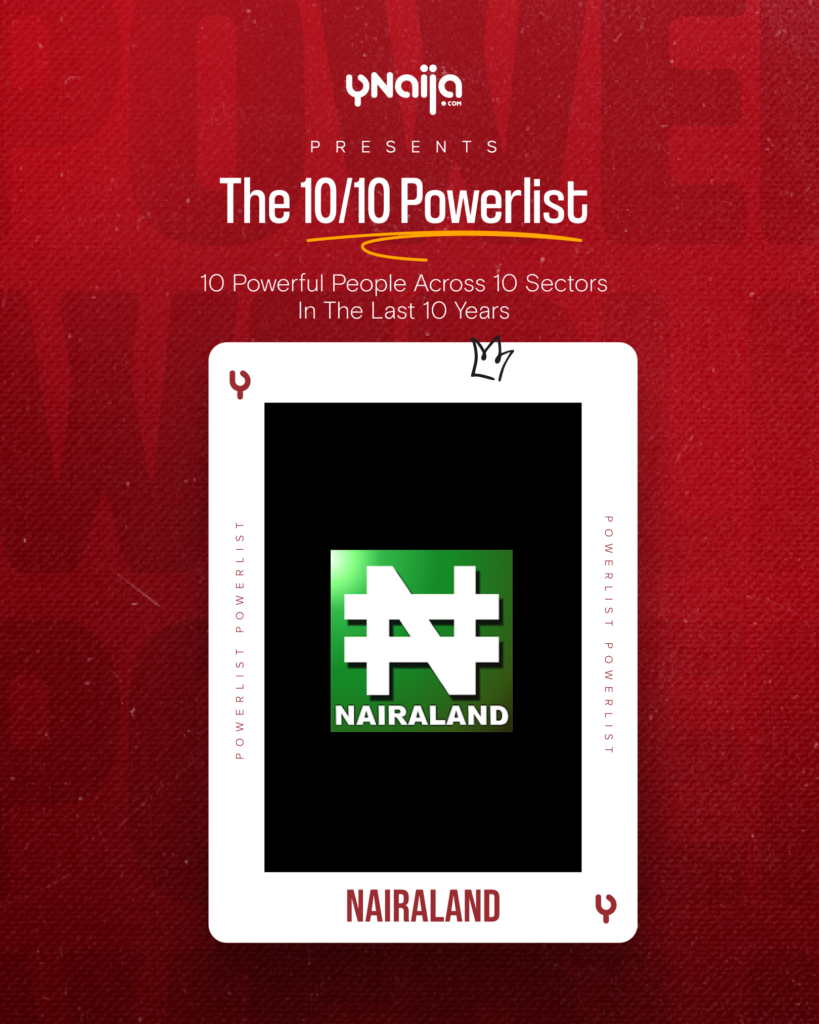
Nairaland: If you need some insight into the mind of the average internet user in Nigeria, Nairaland is the place to be. Founded by Seun Osewa in 2005, the Internet forum at one point in time had over three million registered users discussing a wide range of topics unique to the Nigerian experience. Not a site that is far from controversy, Nairaland serves as a resource for many Nigerians to find answers to questions, argue politics and even find solutions to something as interesting as figuring out your prepaid metre.
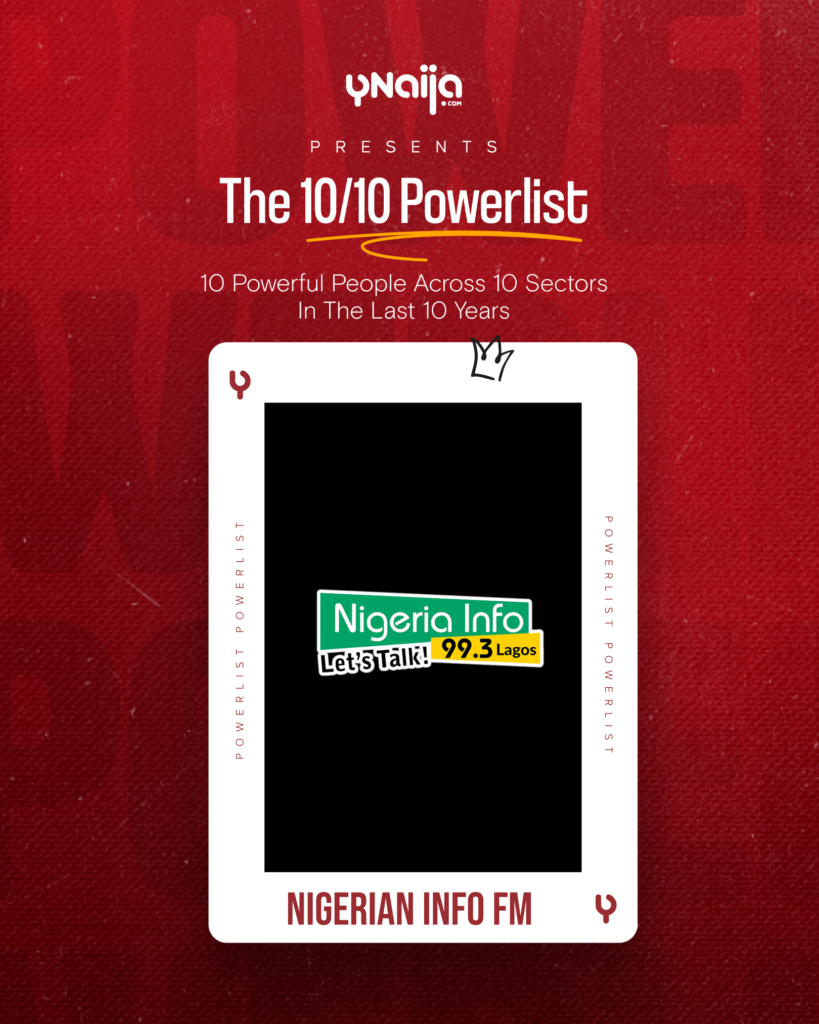
Nigerian Info FM: A network of talk radio stations, Nigerian Info came into the scene with a mission to shake up things. Starting in Lagos in 2011 and in Abuja the year after, it focused on addressing the current affairs and political situations of the country. It has gone on to expand to Port Harcourt and define political radio, receiving a 5 million Naira fine from the National Broadcasting Commission for perceived hate speech and also winning the respect of the journalism community by receiving a Press Freedom Award from the Nigerian Union of Journalists.
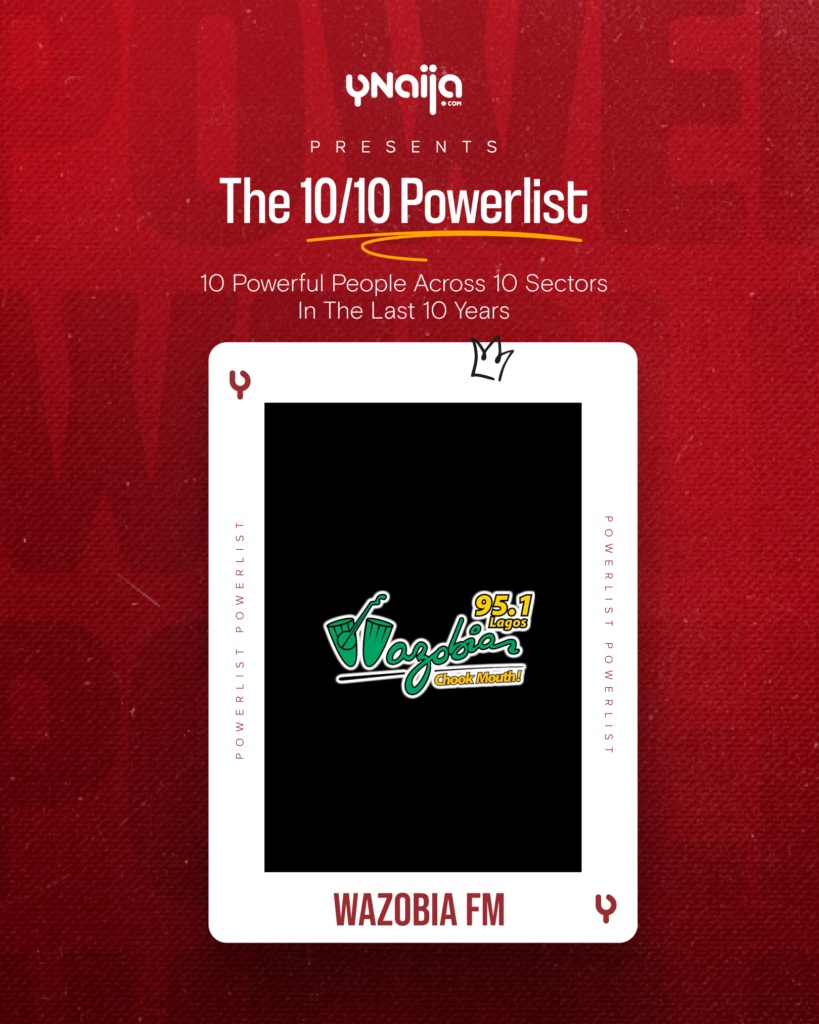
Wazobia FM: Starting in 2007, the minute Wazobia FM began its broadcast in pidgin English, it was bound to be a success. First in Lagos, then Port Harcourt, followed by Abuja, then a branch Kano and finally in Onitsha, Wazobia FM. Taking the indigenous languages of a people and using it to speak to them has fostered a great sense of trust between the audience and the station.

Cool FM: With frequencies across four of six geopolitical zones of Nigeria, Cool FM has positioned itself as the coolest radio station with programming focused on pop culture, news and entertainment. It also has an online presence allowing for the station to cultivate a younger audience. In 2019, when Cardi B visited Nigeria, the station hosted a coveted interview with her proving its status as truly the coolest.

Olorisupergal: Founded in 2010 by Tosin “Olorisupergal” Ajibade, the blog has garnered a massive following as one of the places to go for celebrity gossip, fashion and lifestyle. Positioning itself away from the other blogs by inputting a personal angle, it quickly became the place to go for fast paced news. Expanding to socials and YouTube has kept its relevancy over the years and its position as a new media leader is only waxing stronger.

Instablog: Breaking into the scene in 2015, Instablog has radically documented and dictated online culture on Nigeria’s internet space. Now a part of our cultural lexicon, Instablog has been at the centre of many online conversations, breaking celebrity news and curating content with the speed necessary to survive on the internet. Often castigated and derided, Instablog’s reach and influence remains unwavering.




